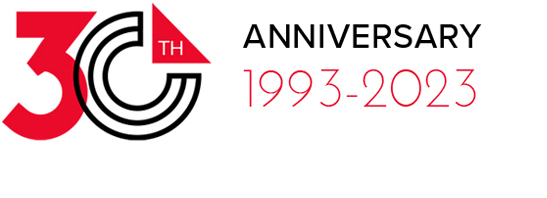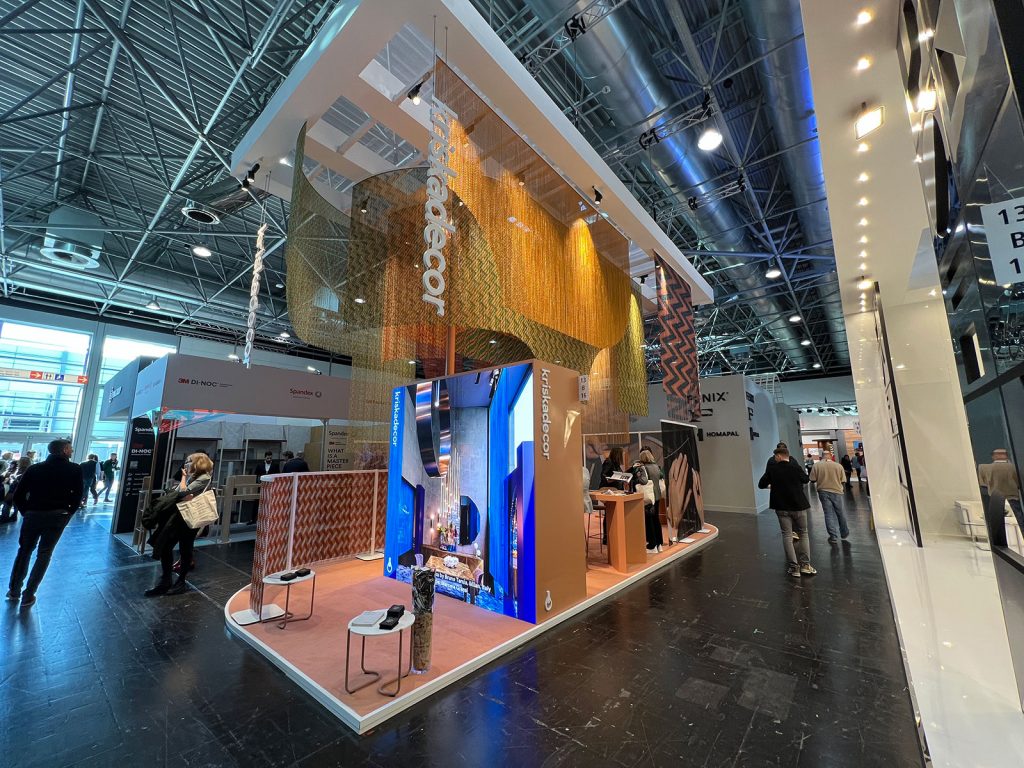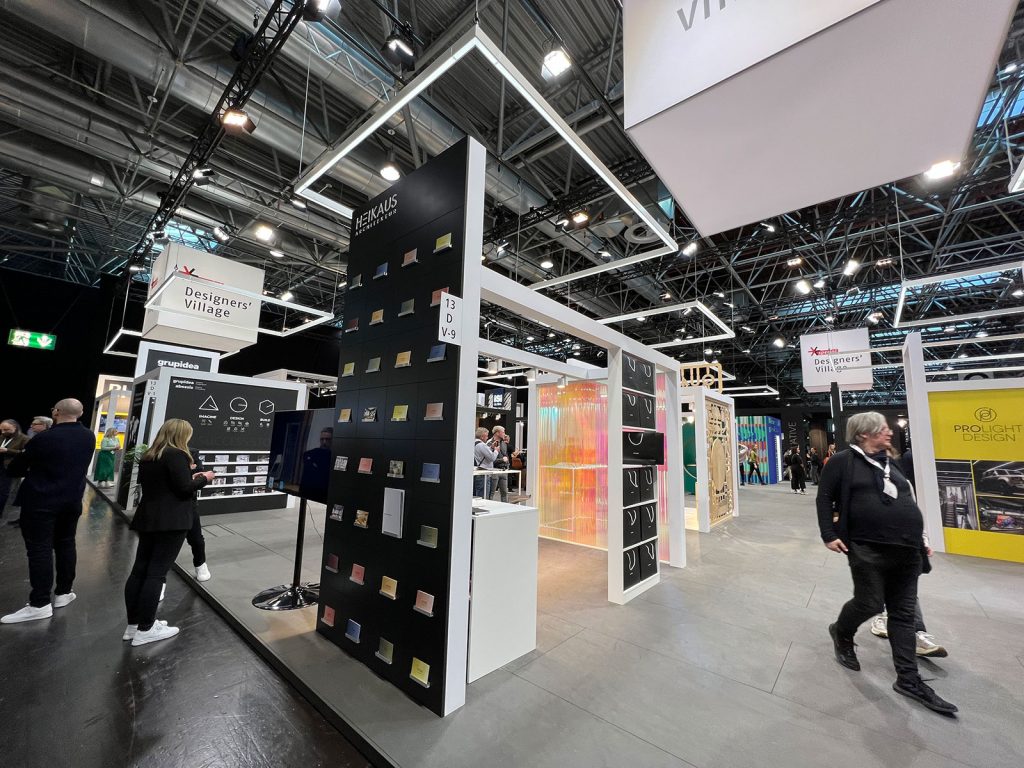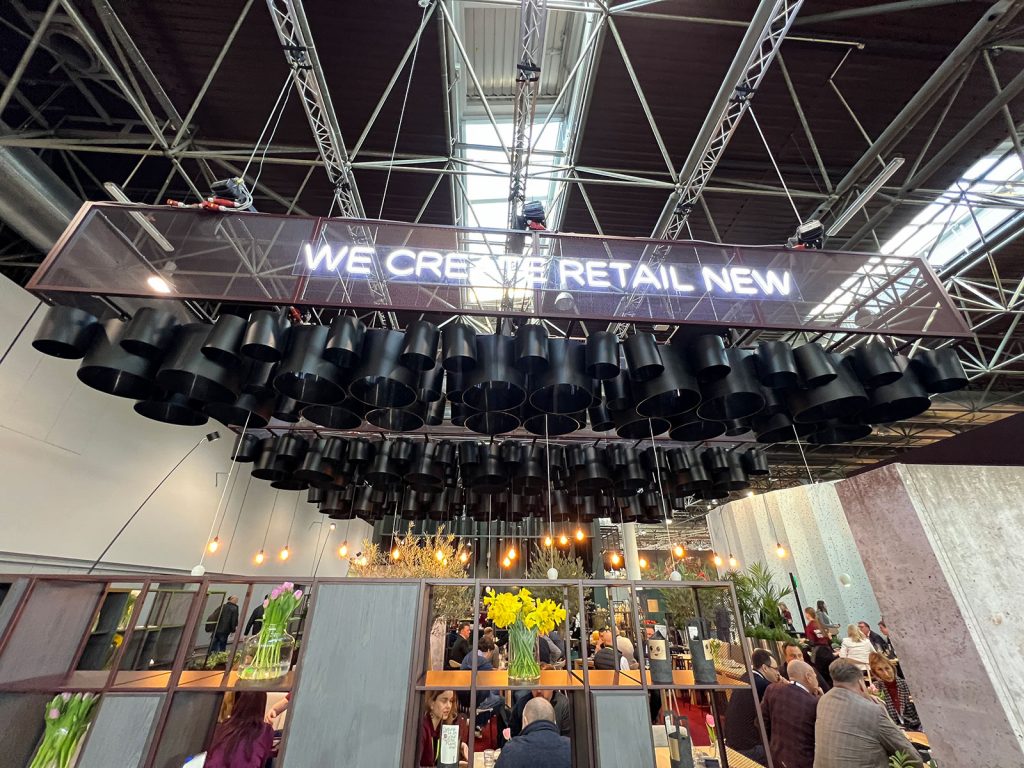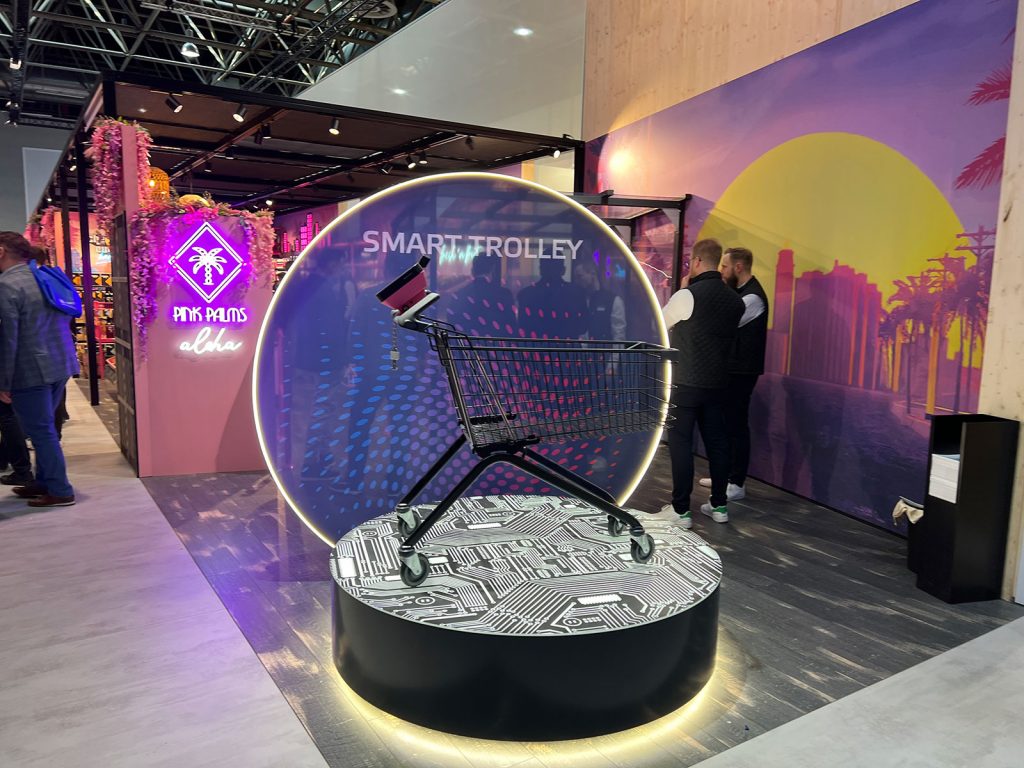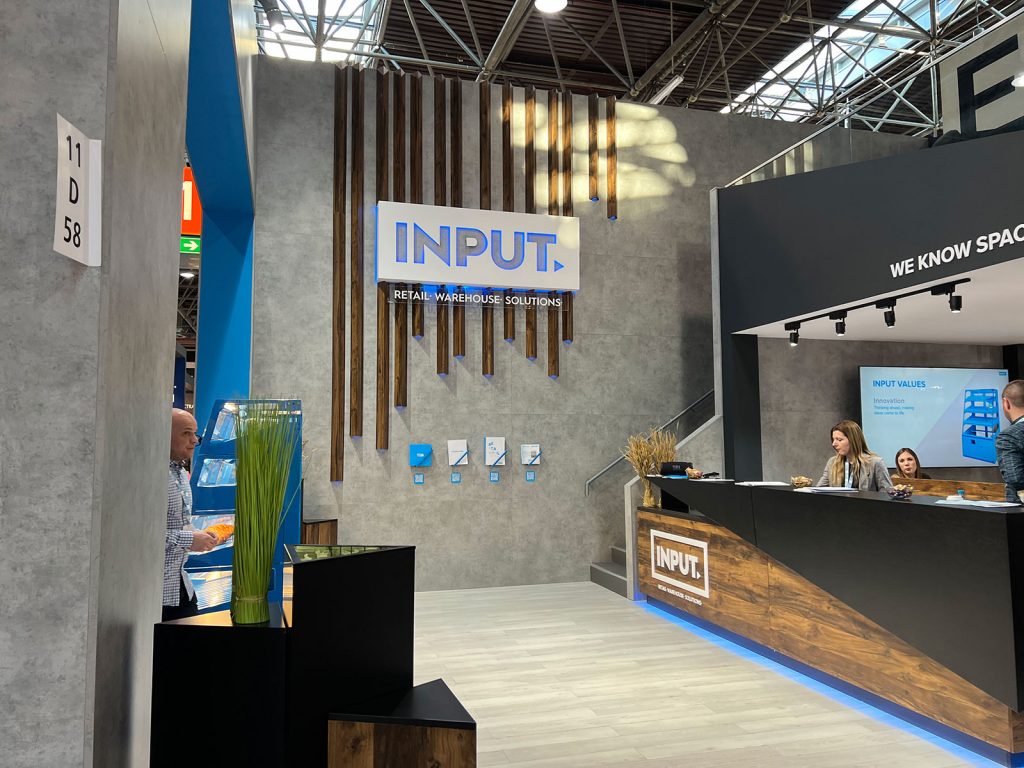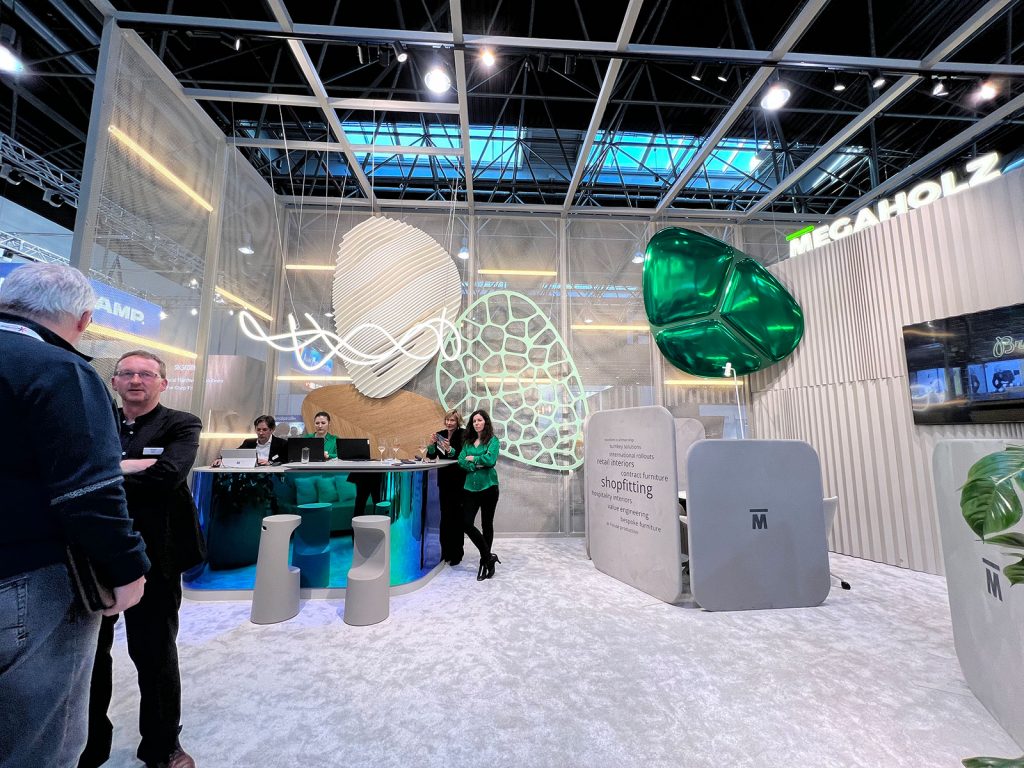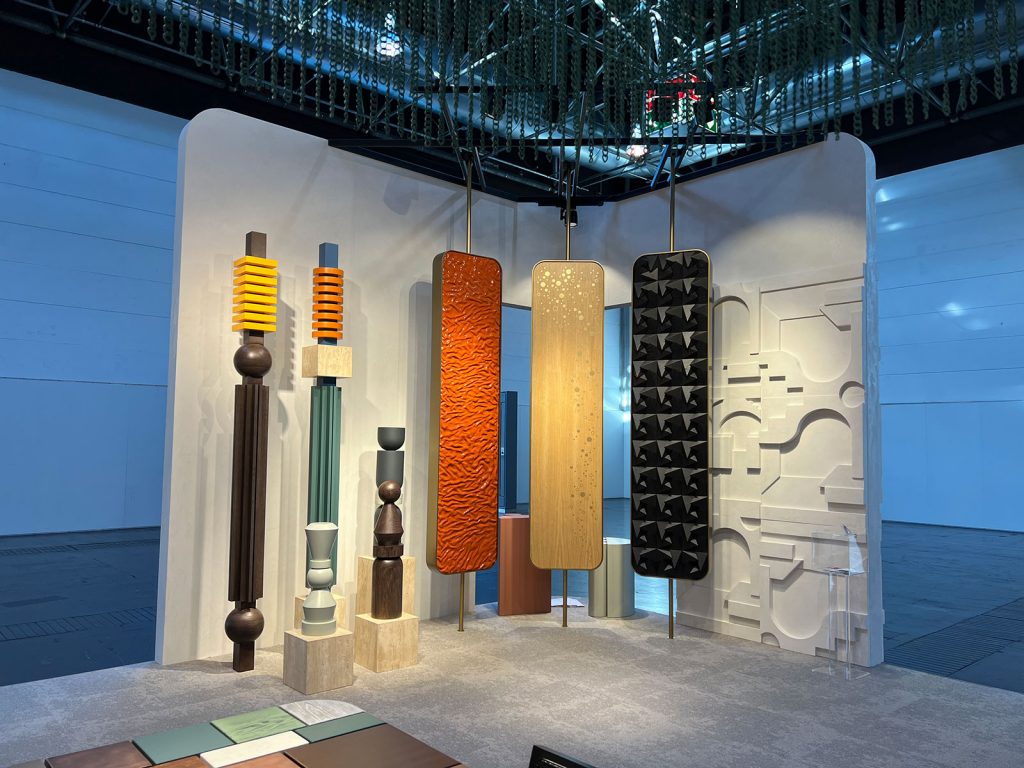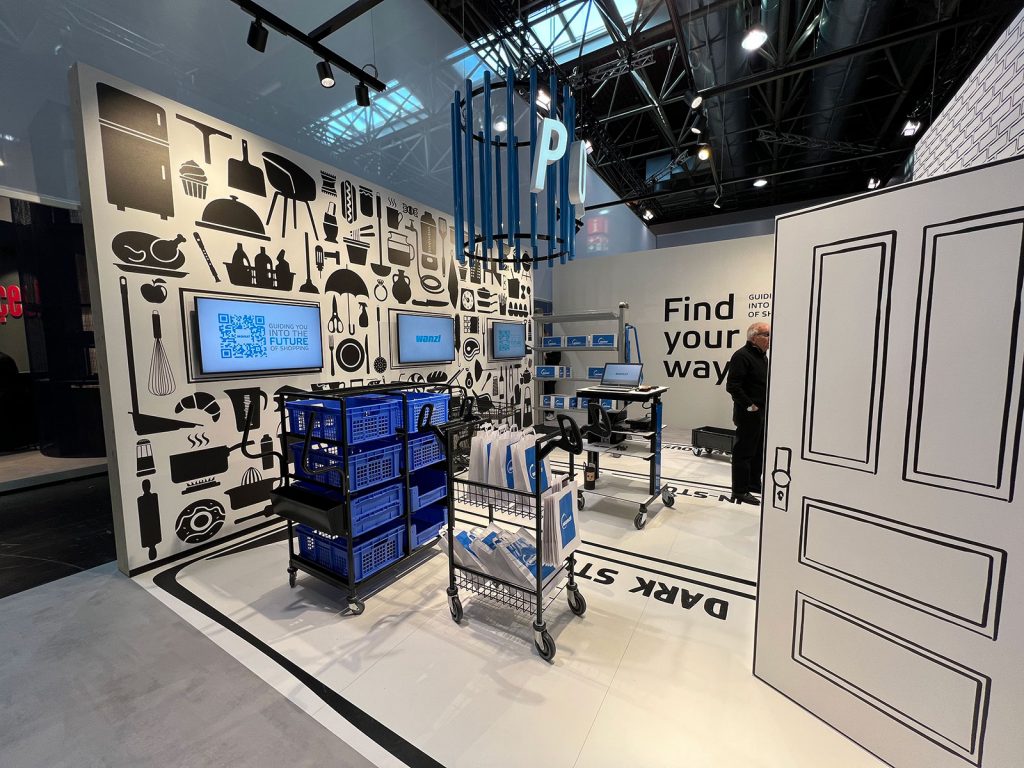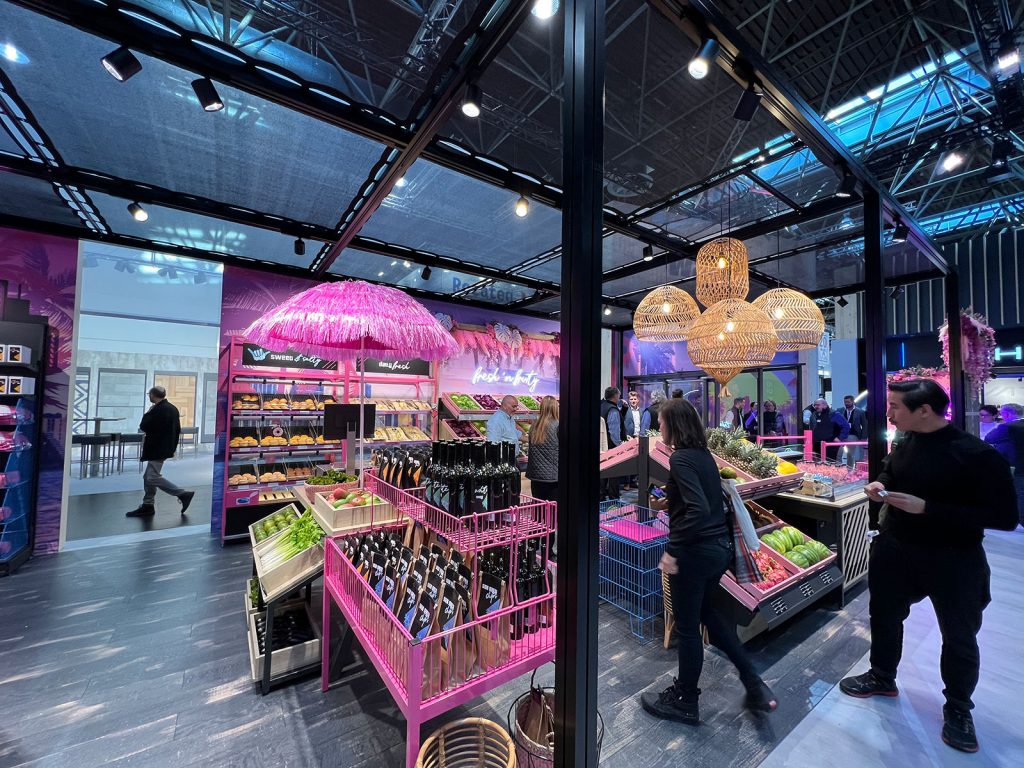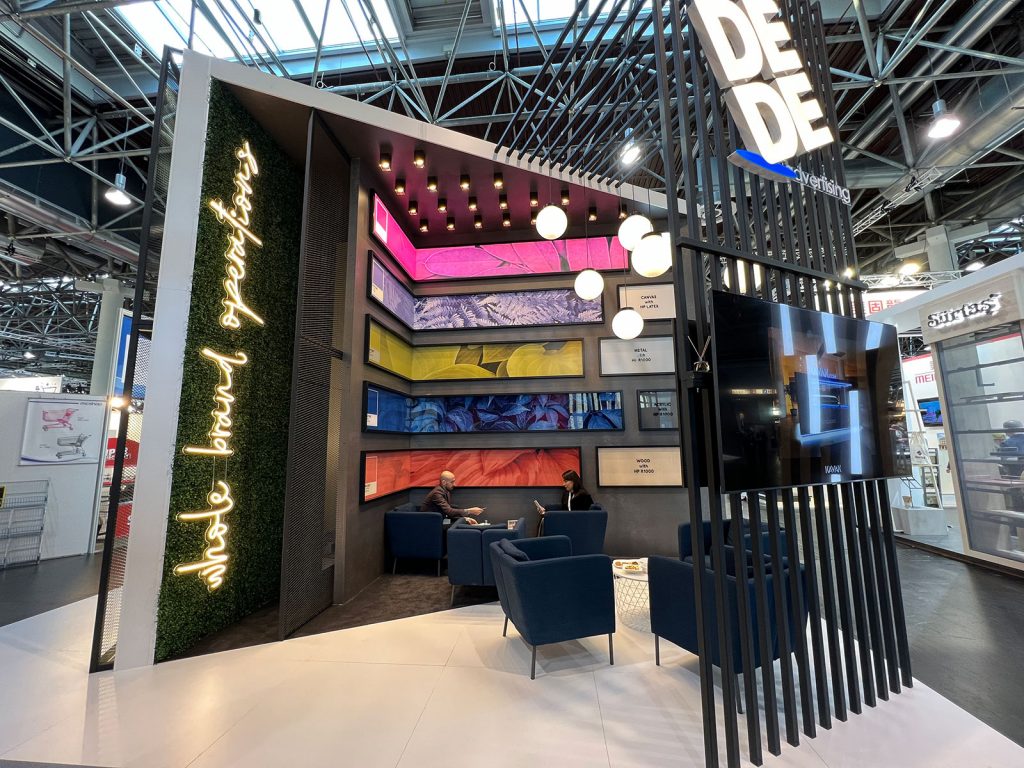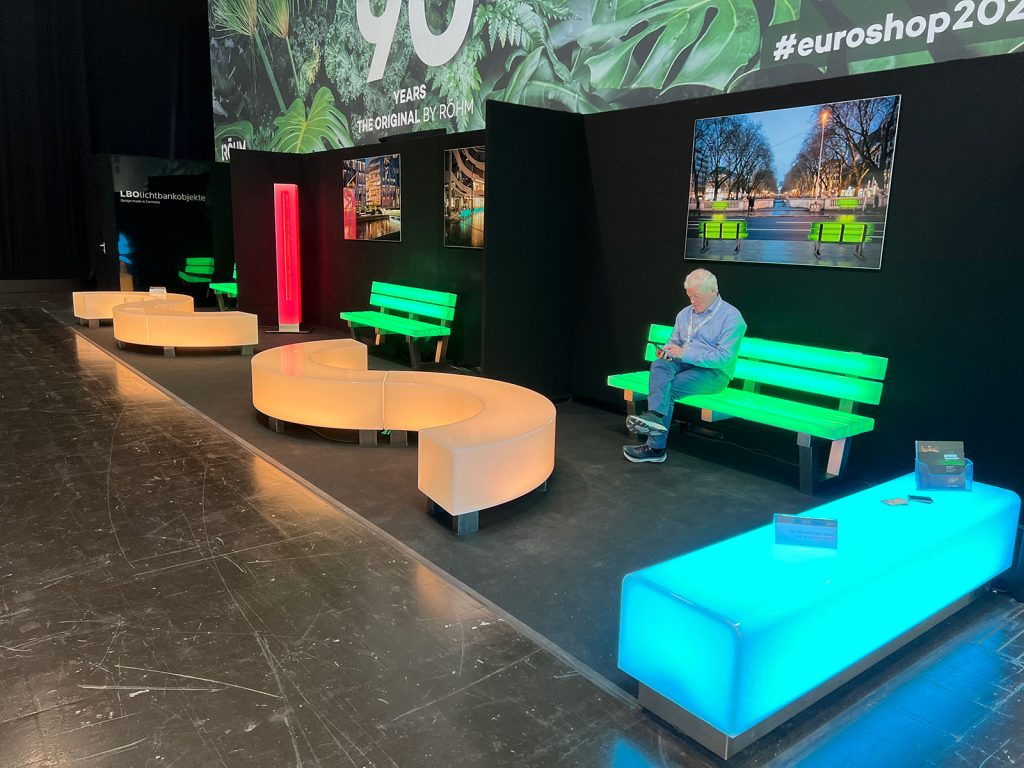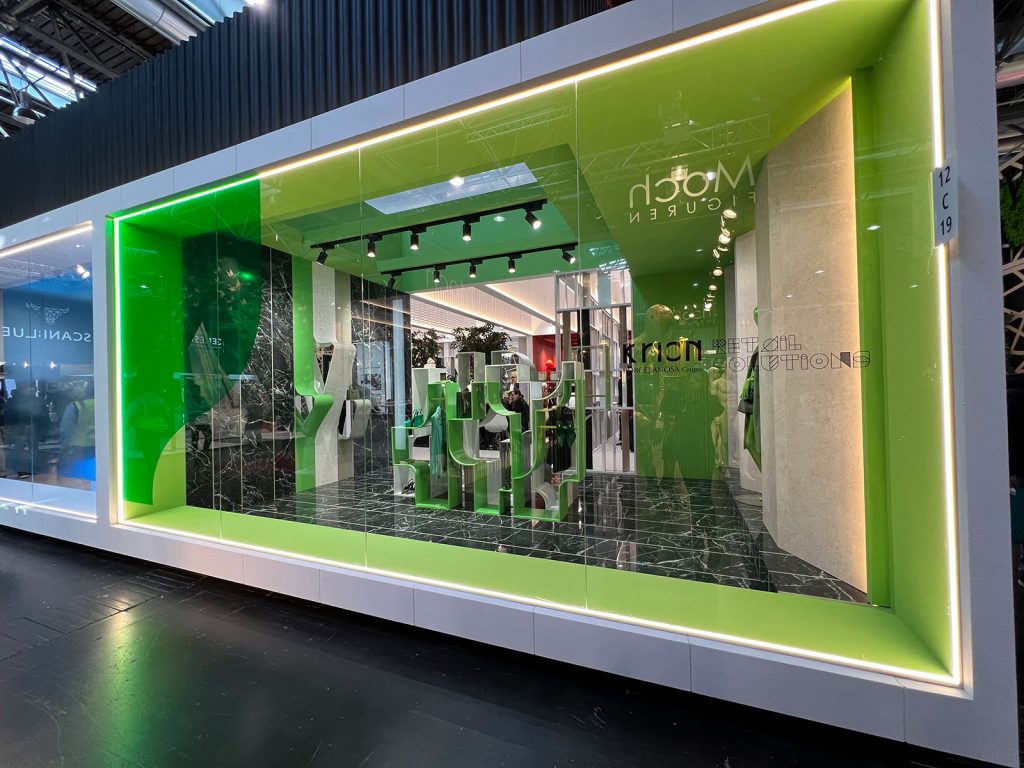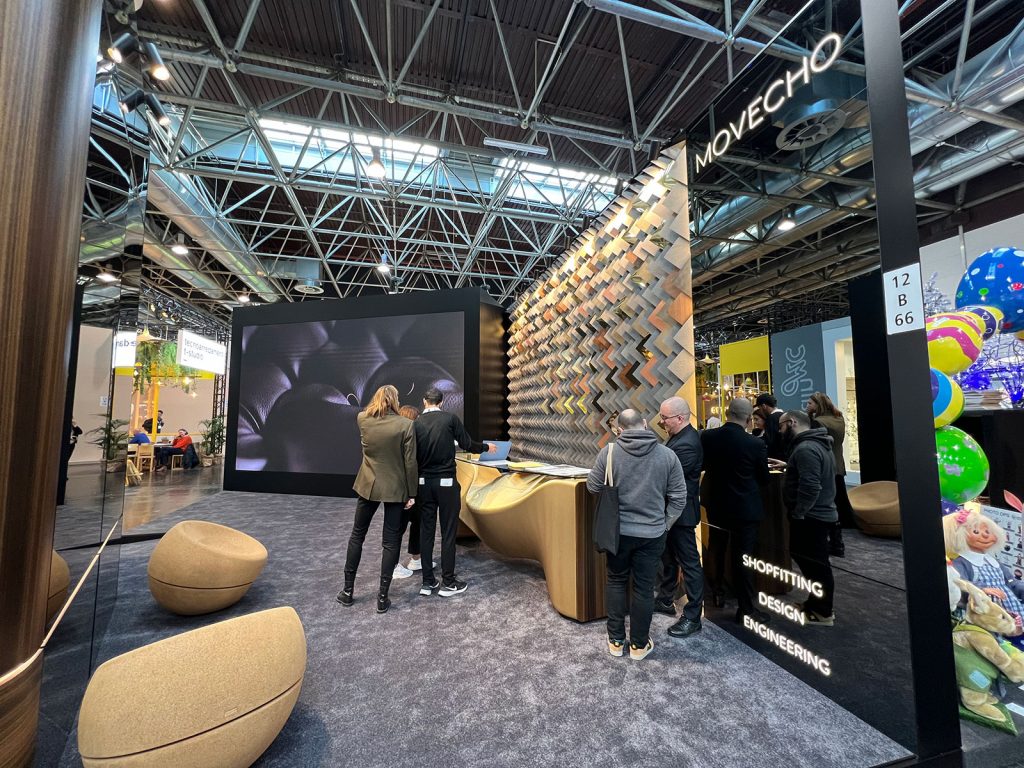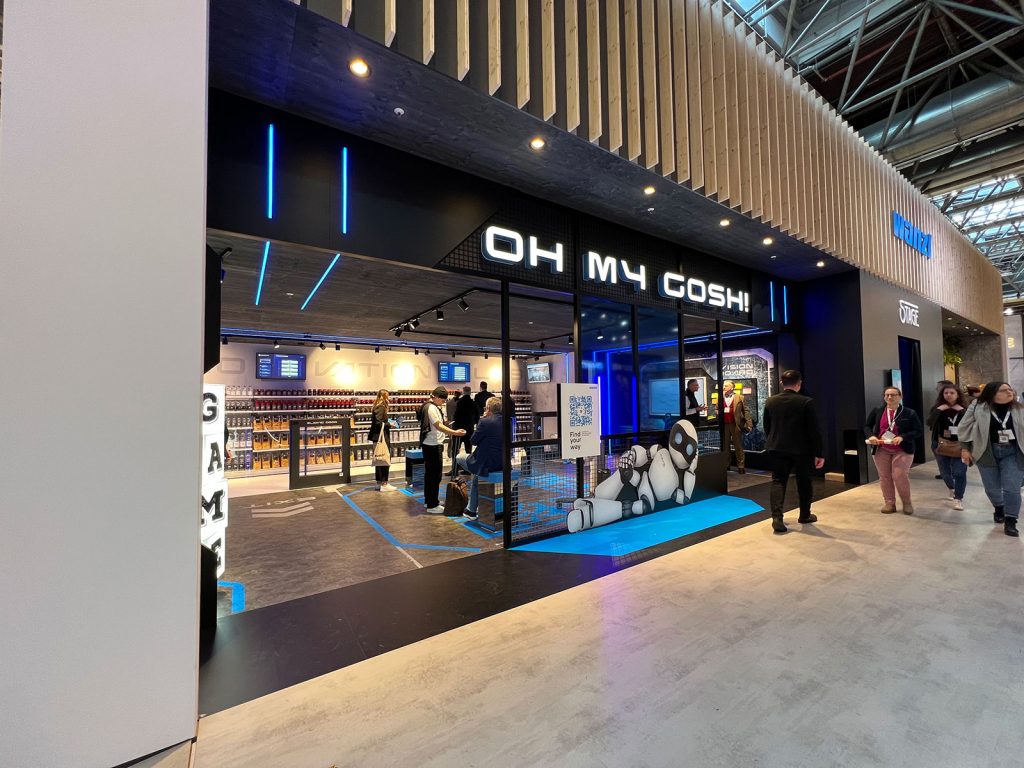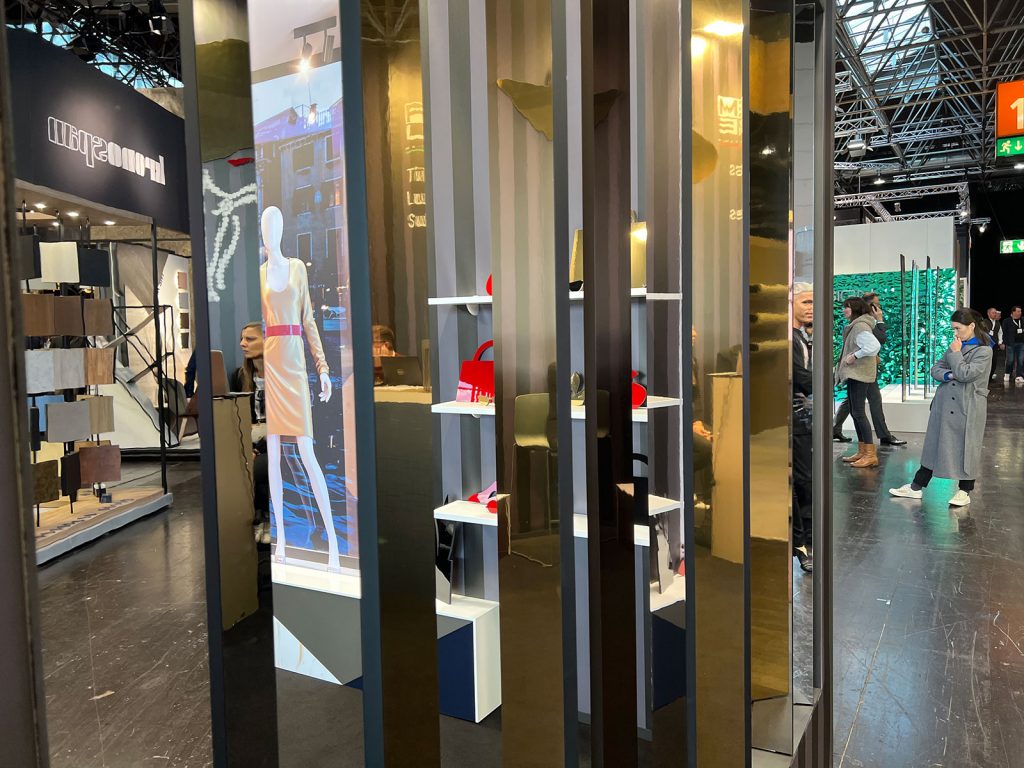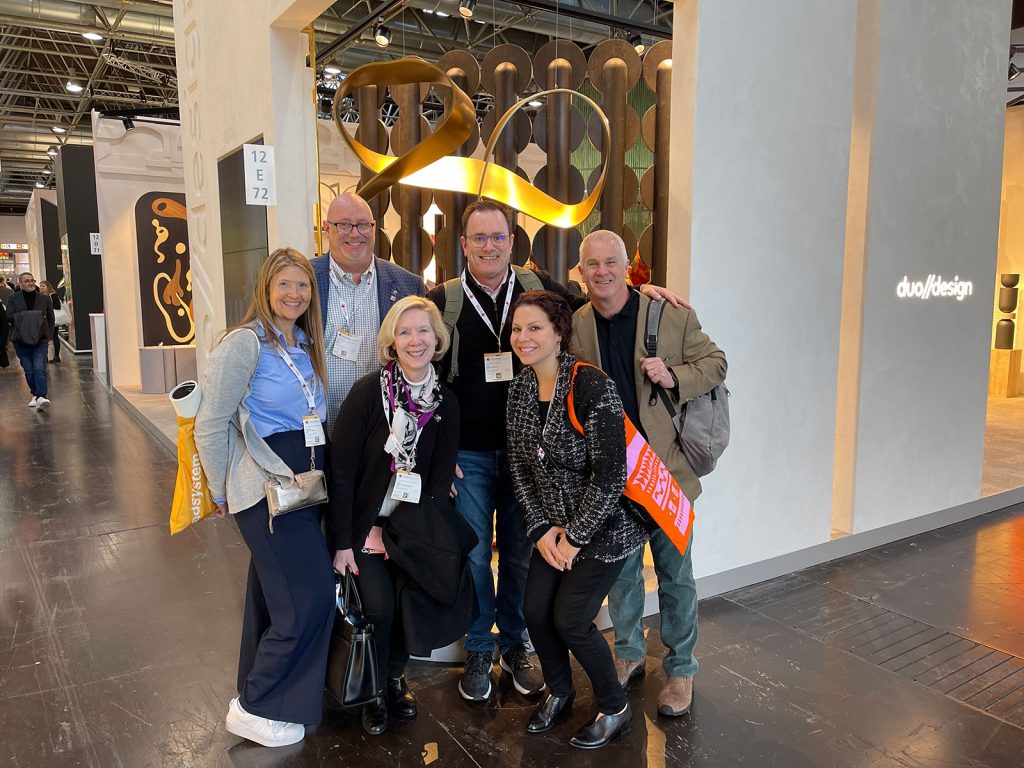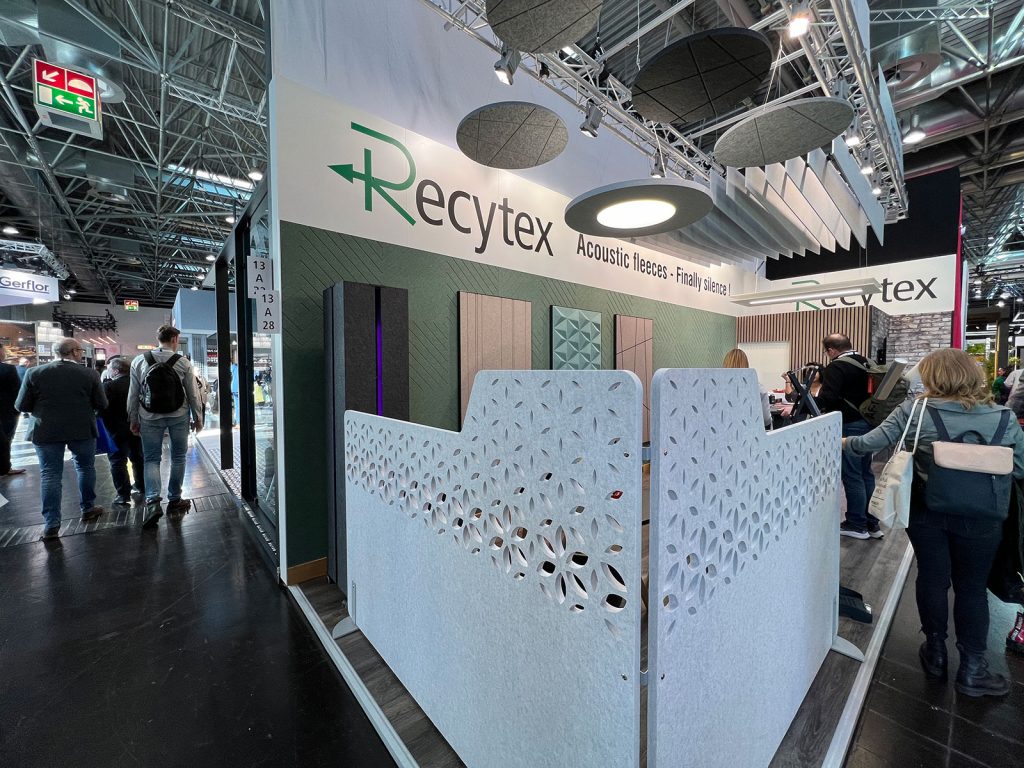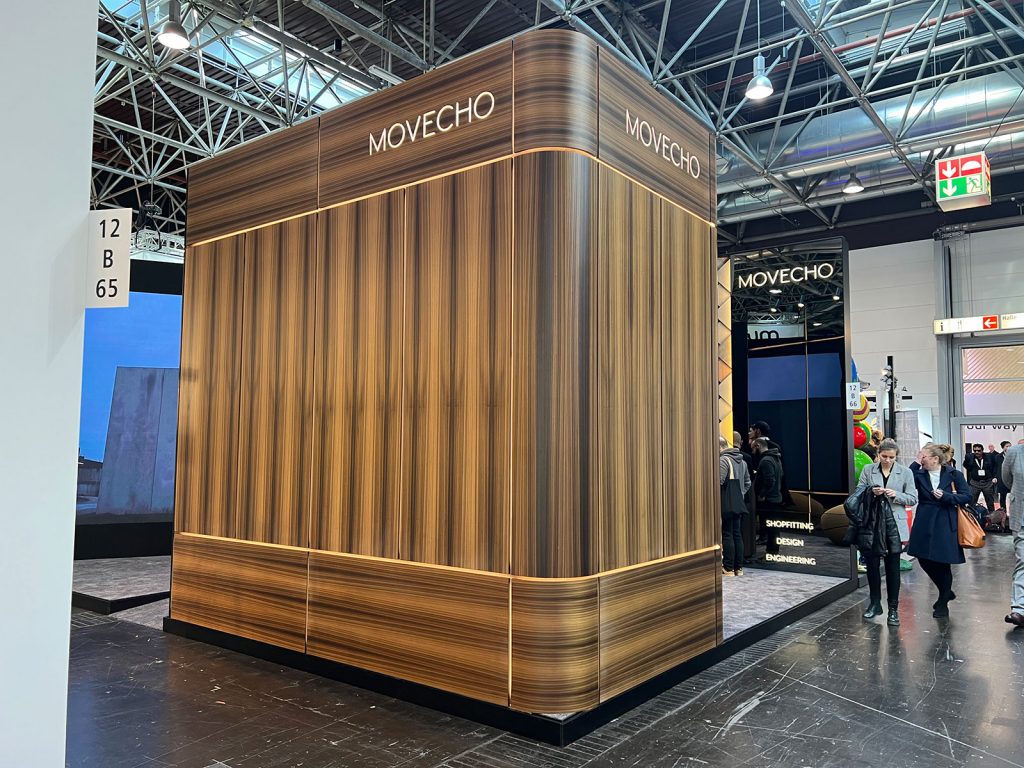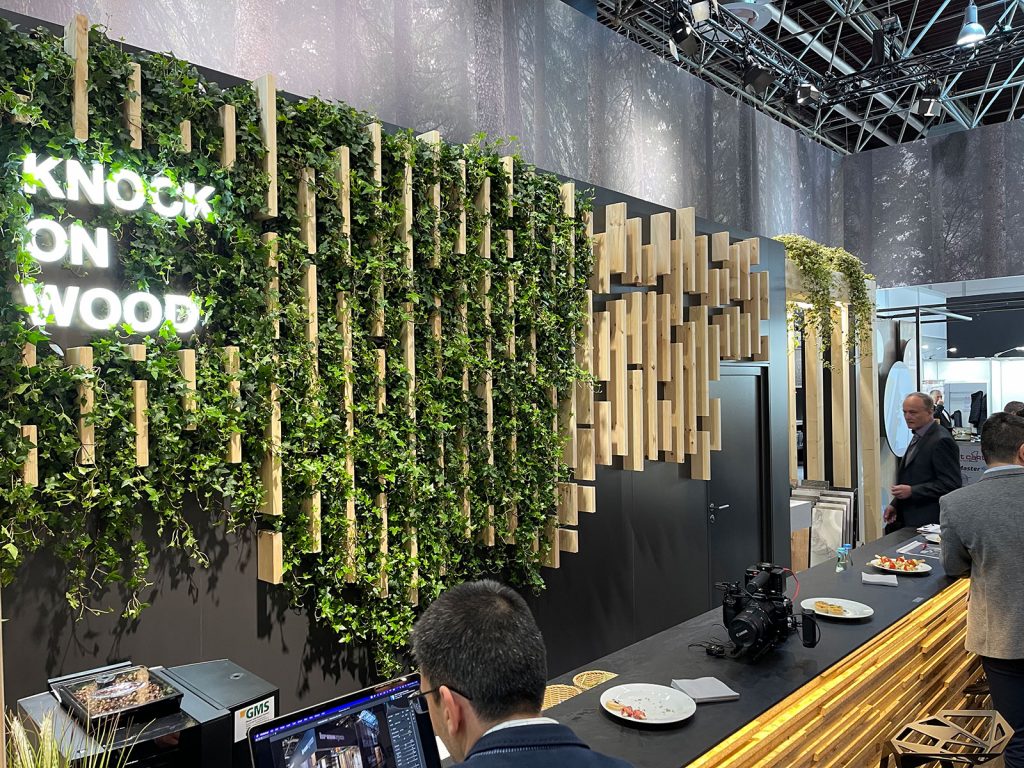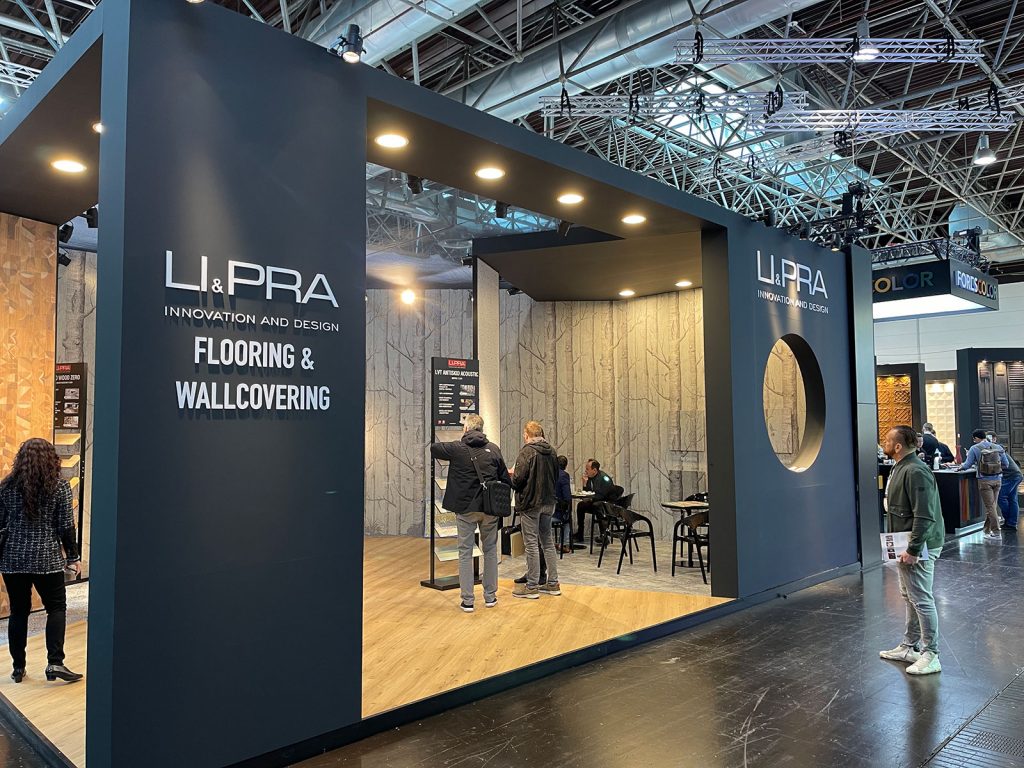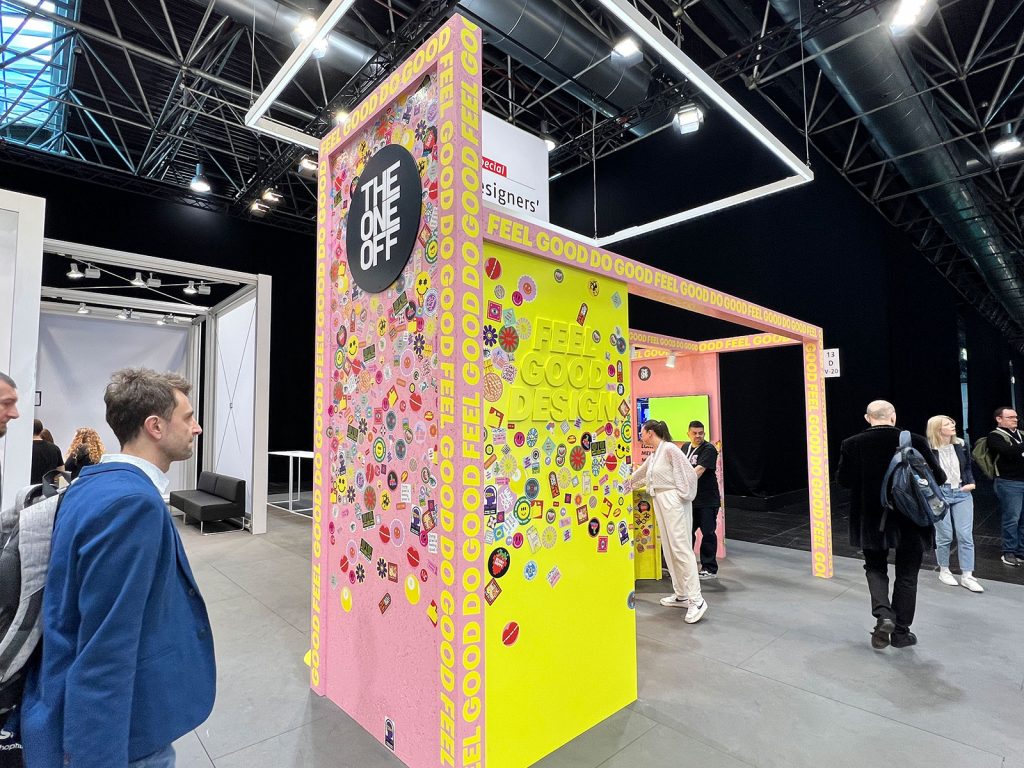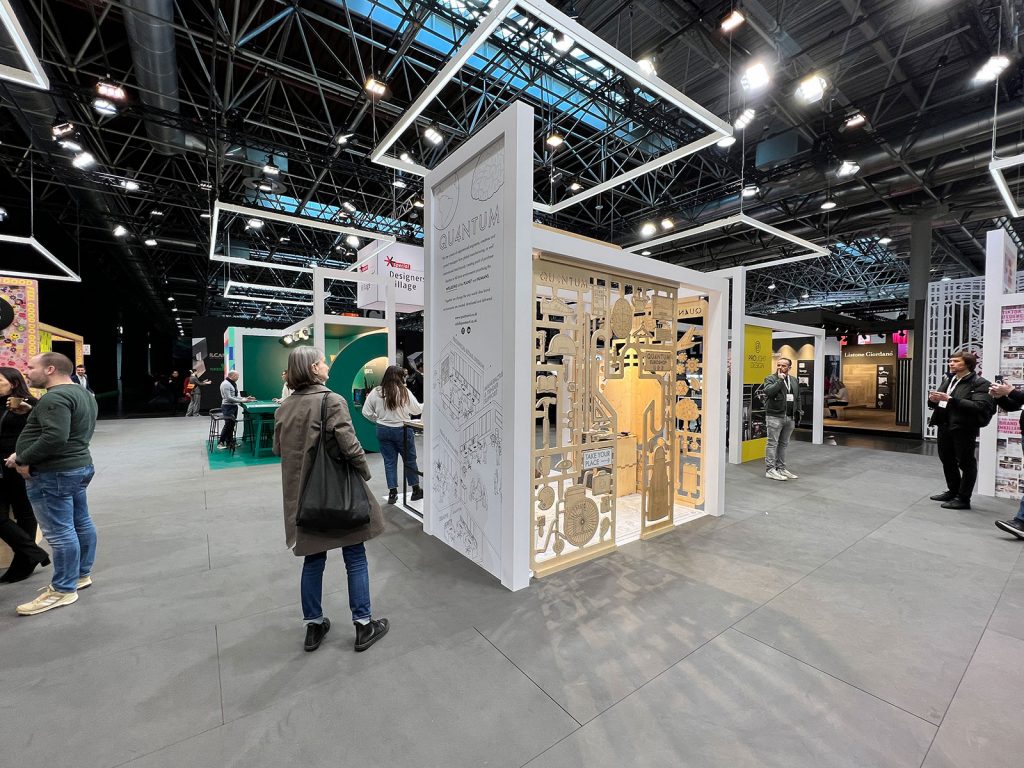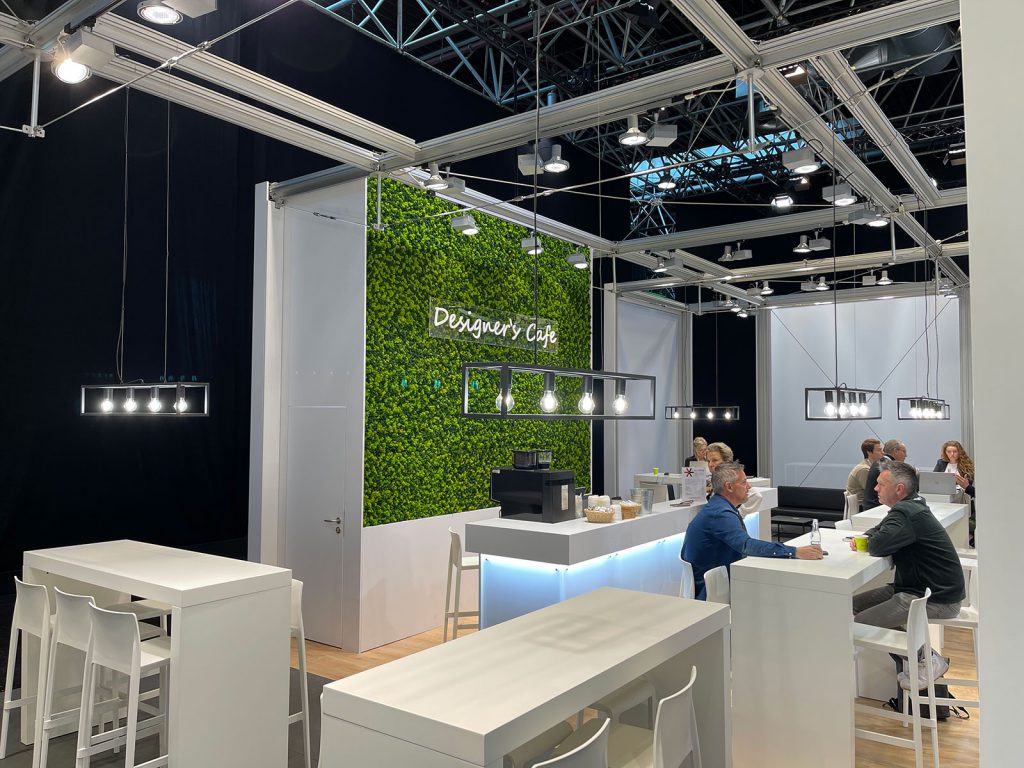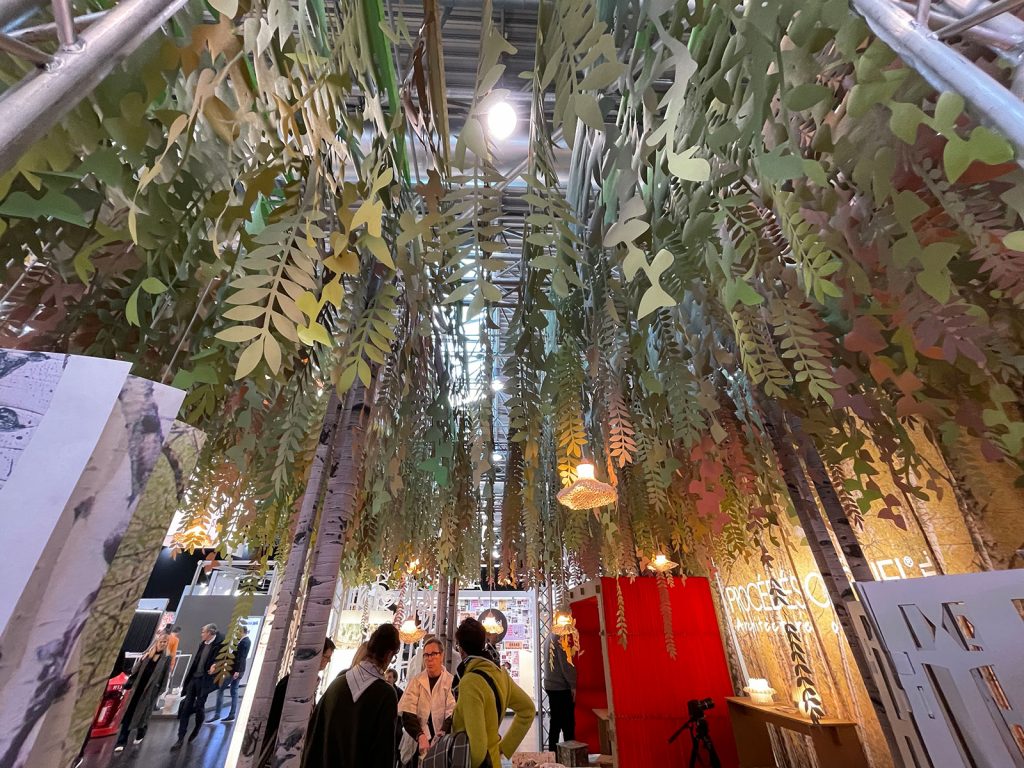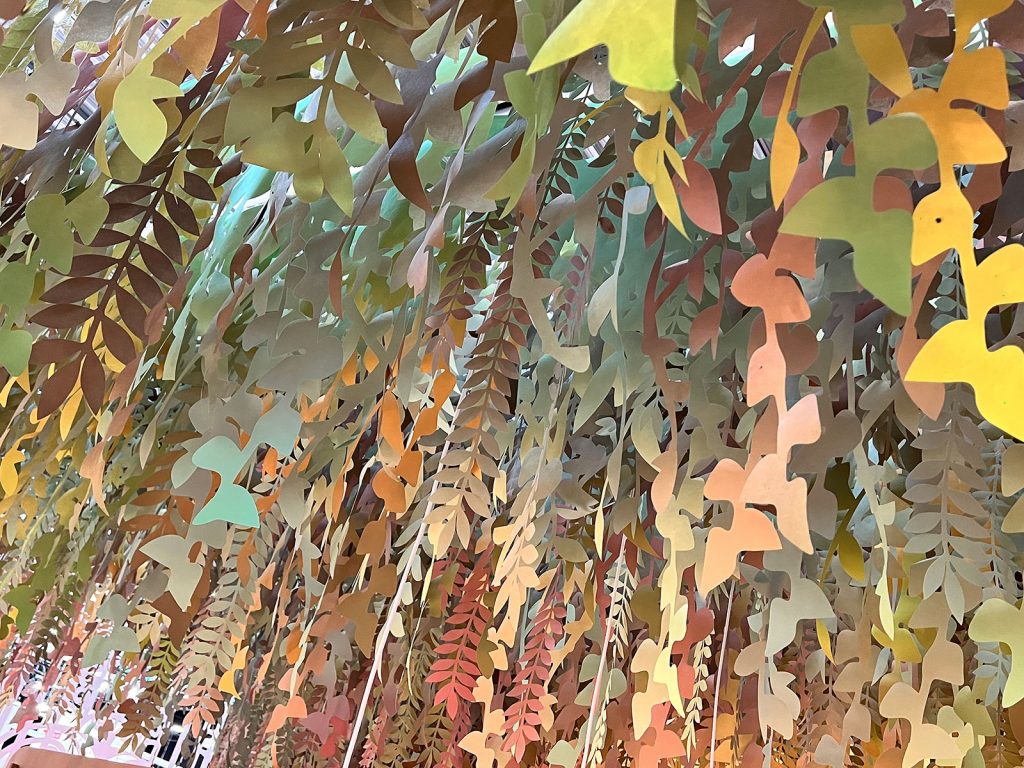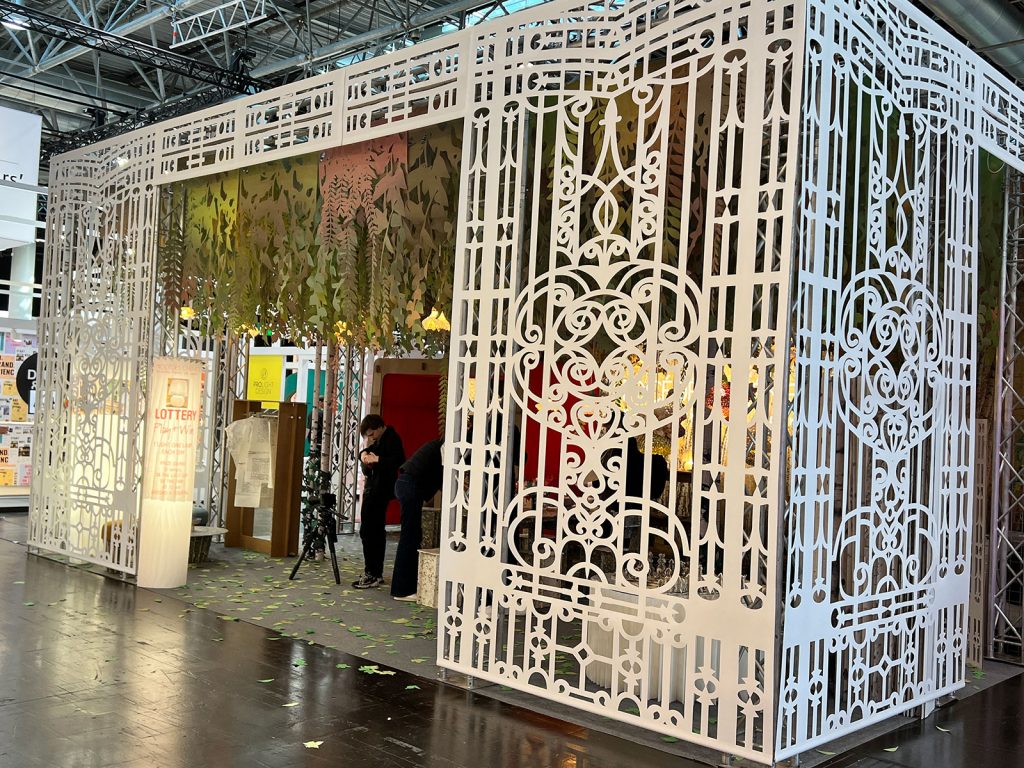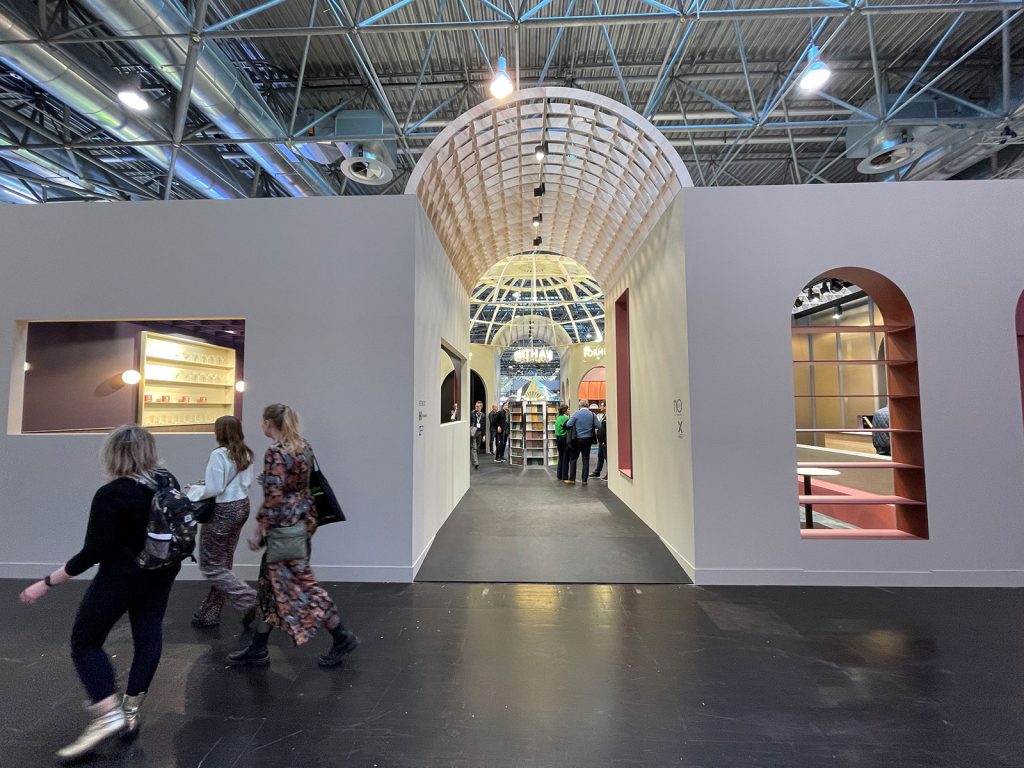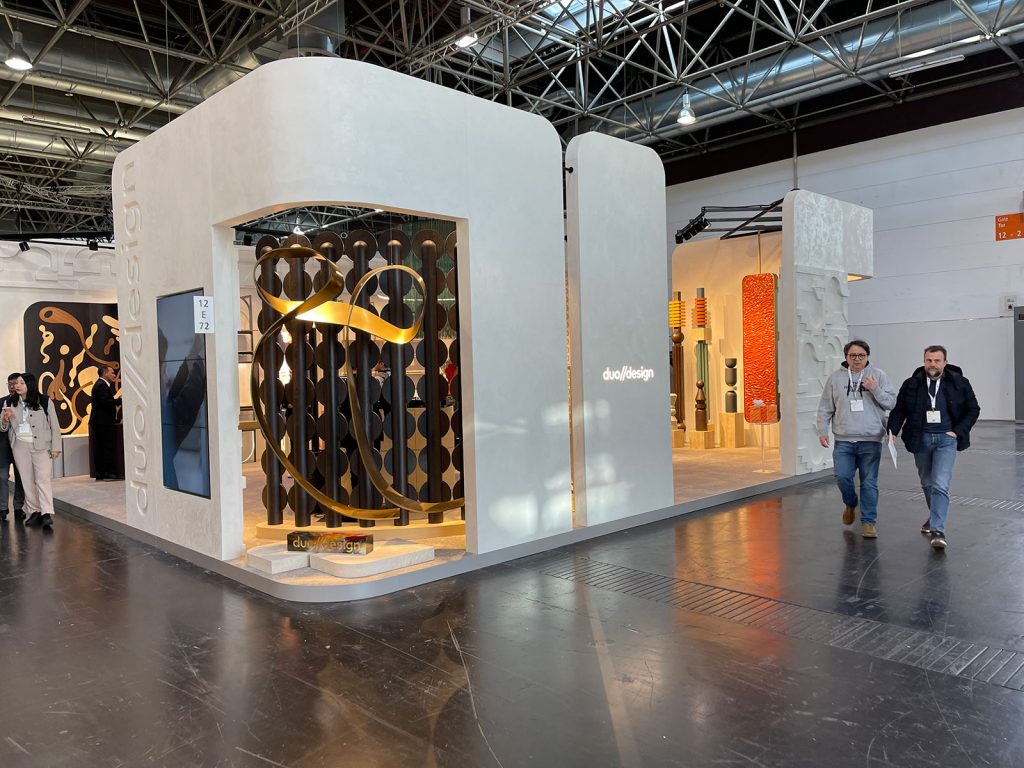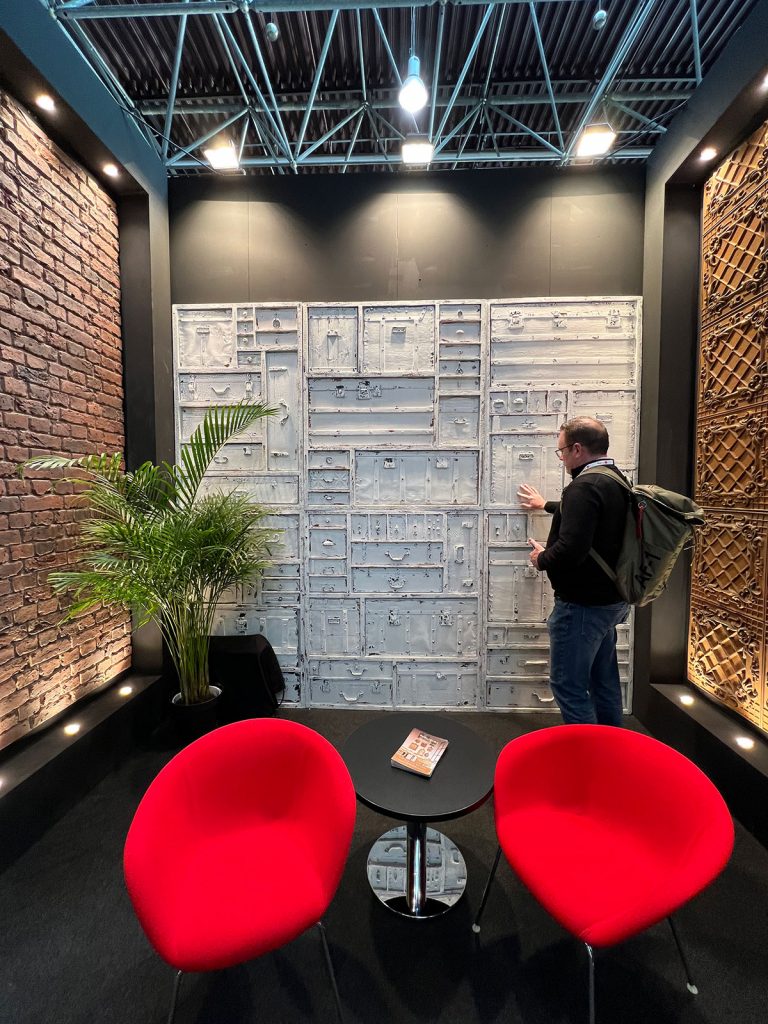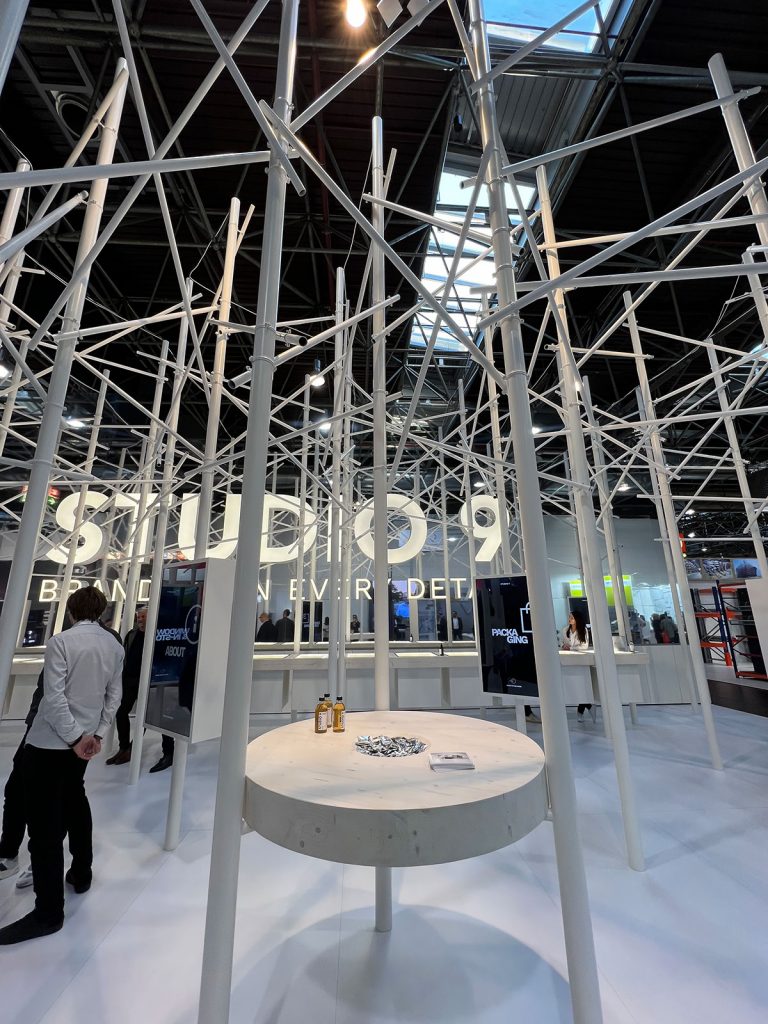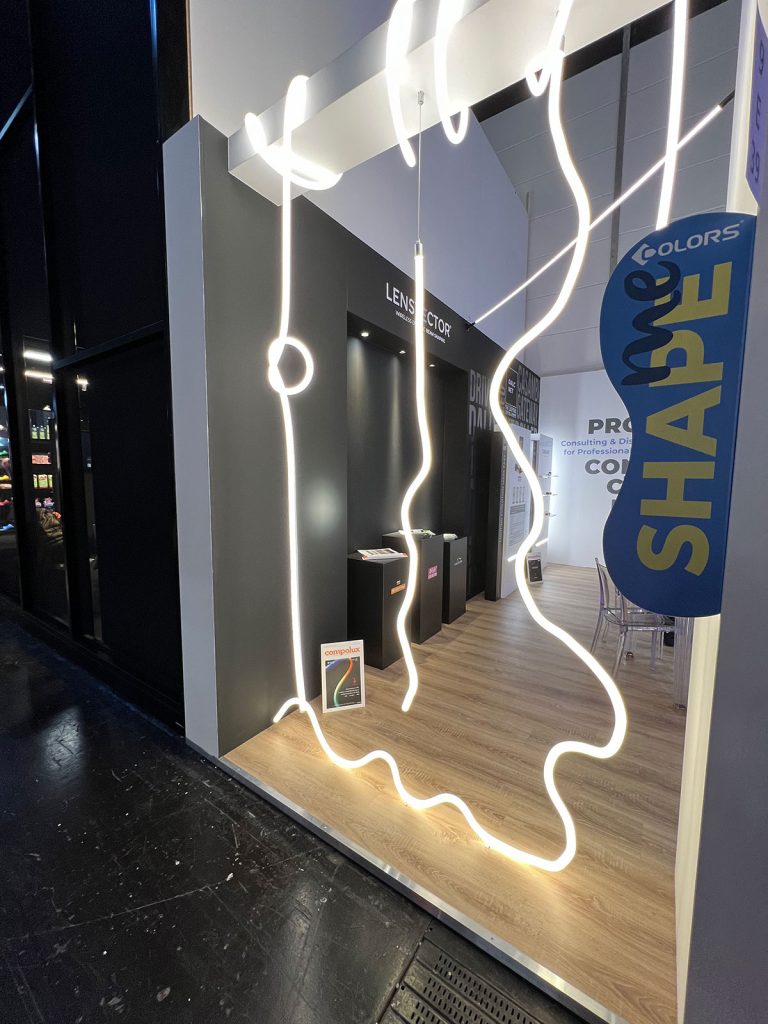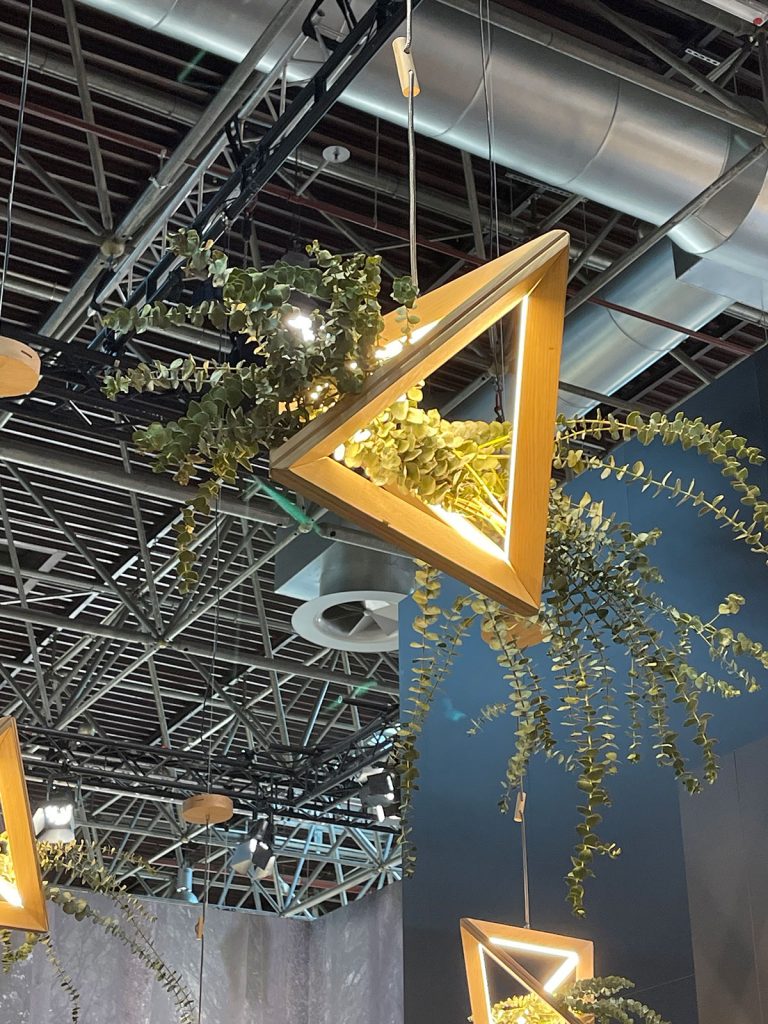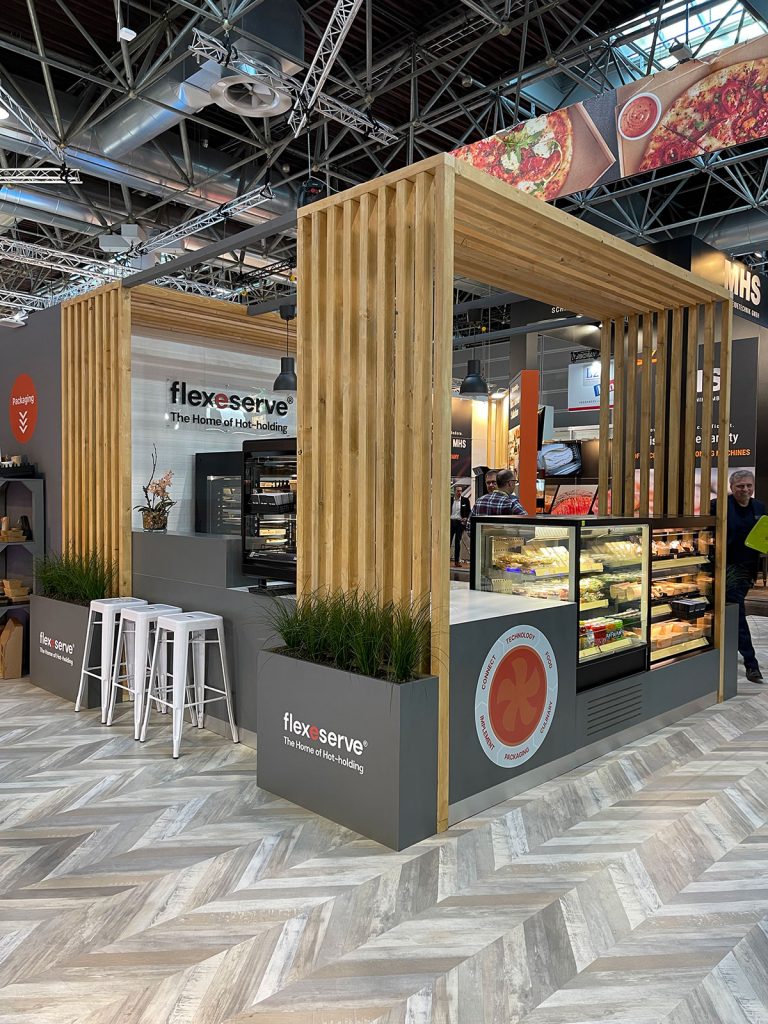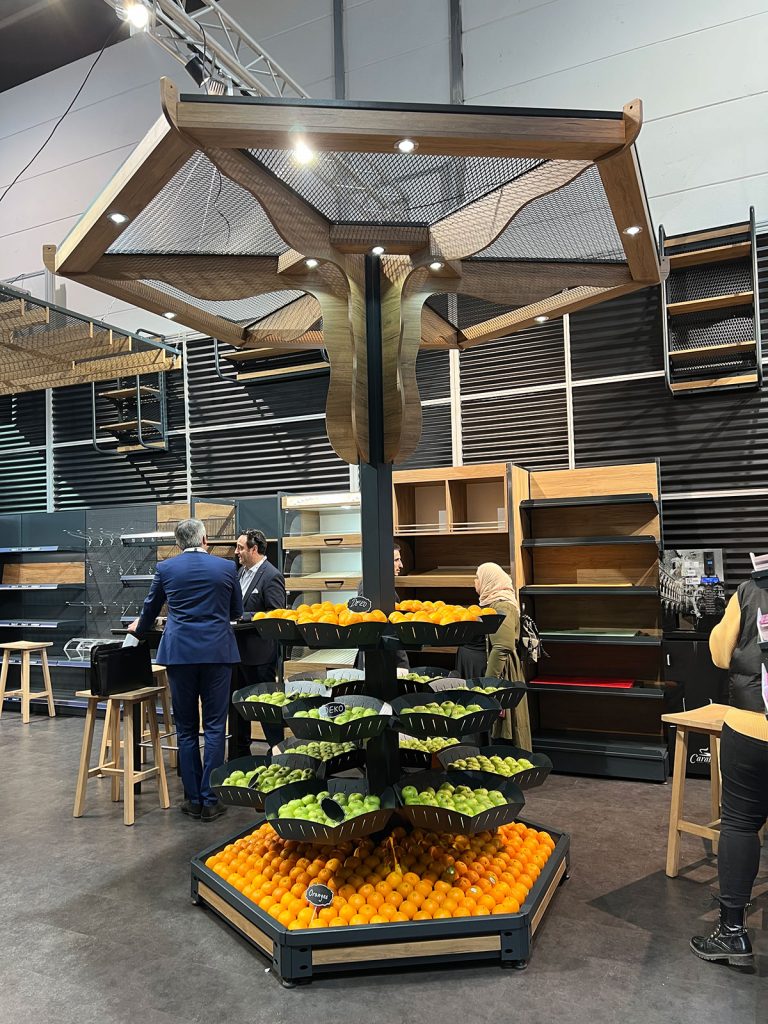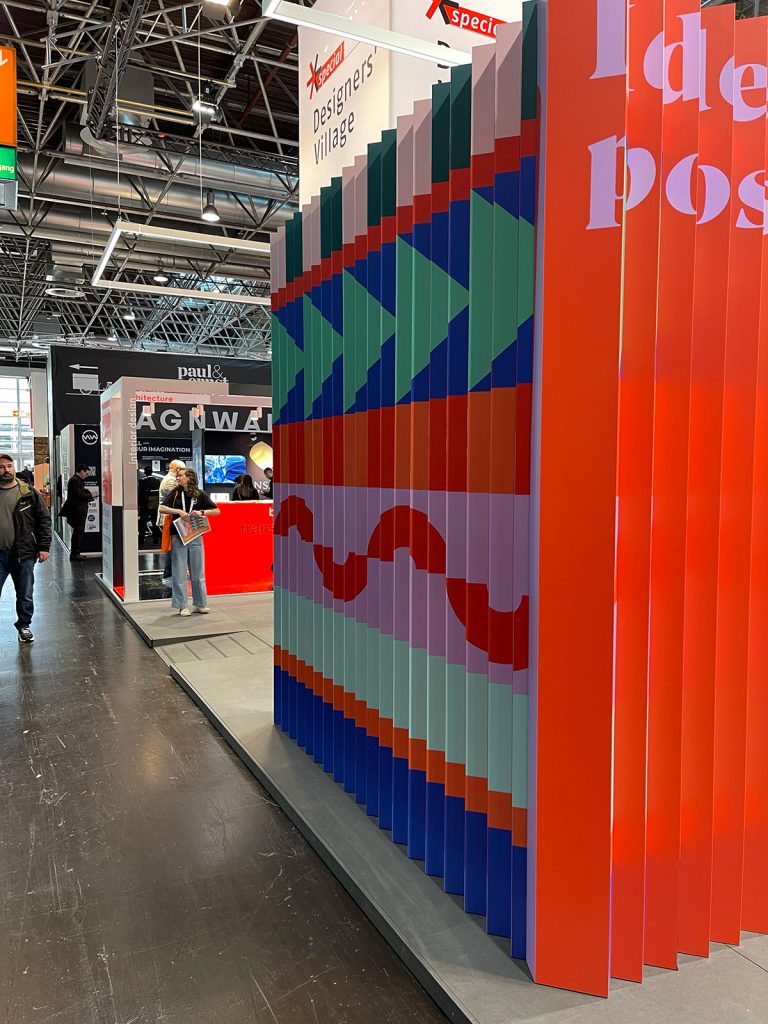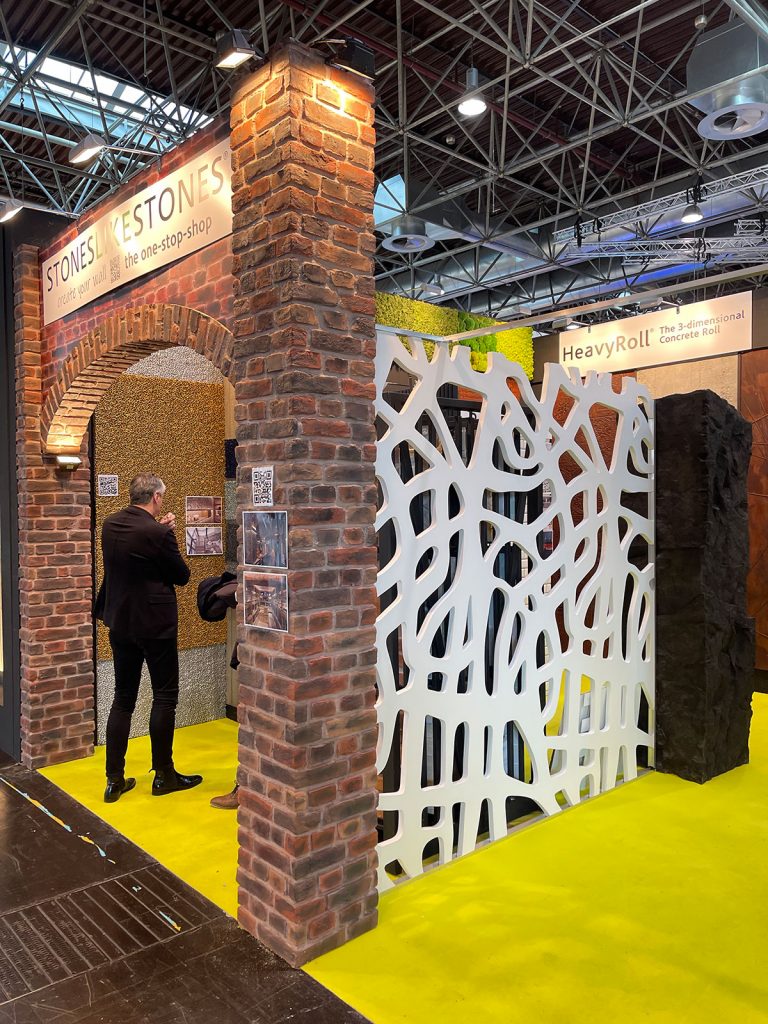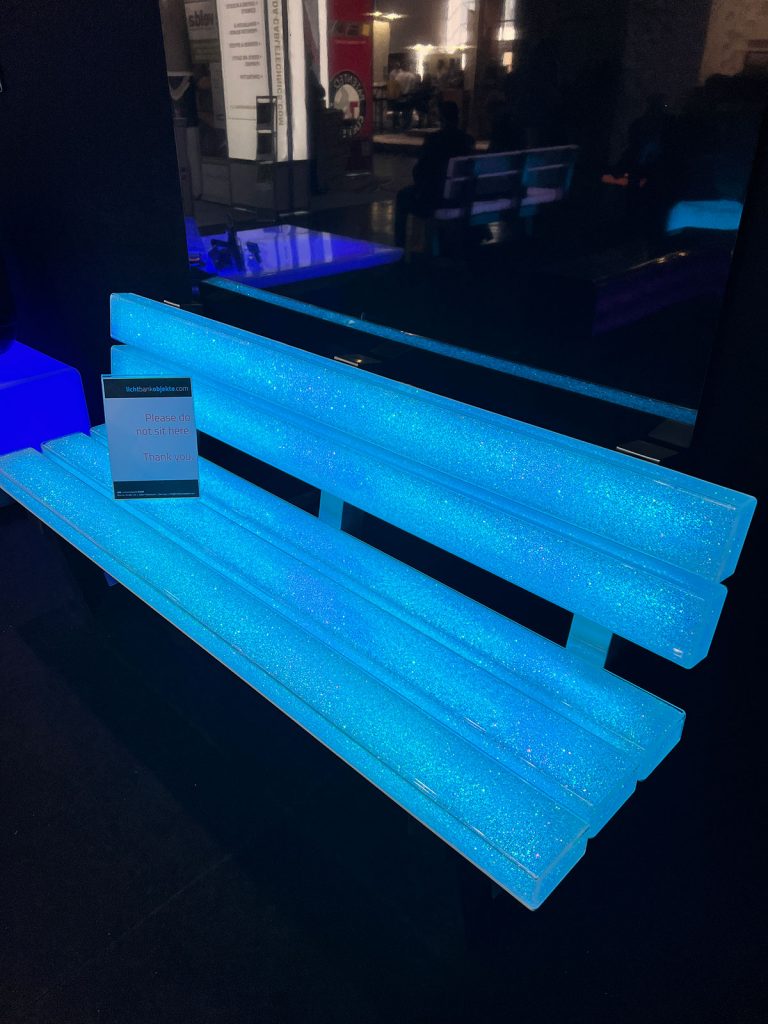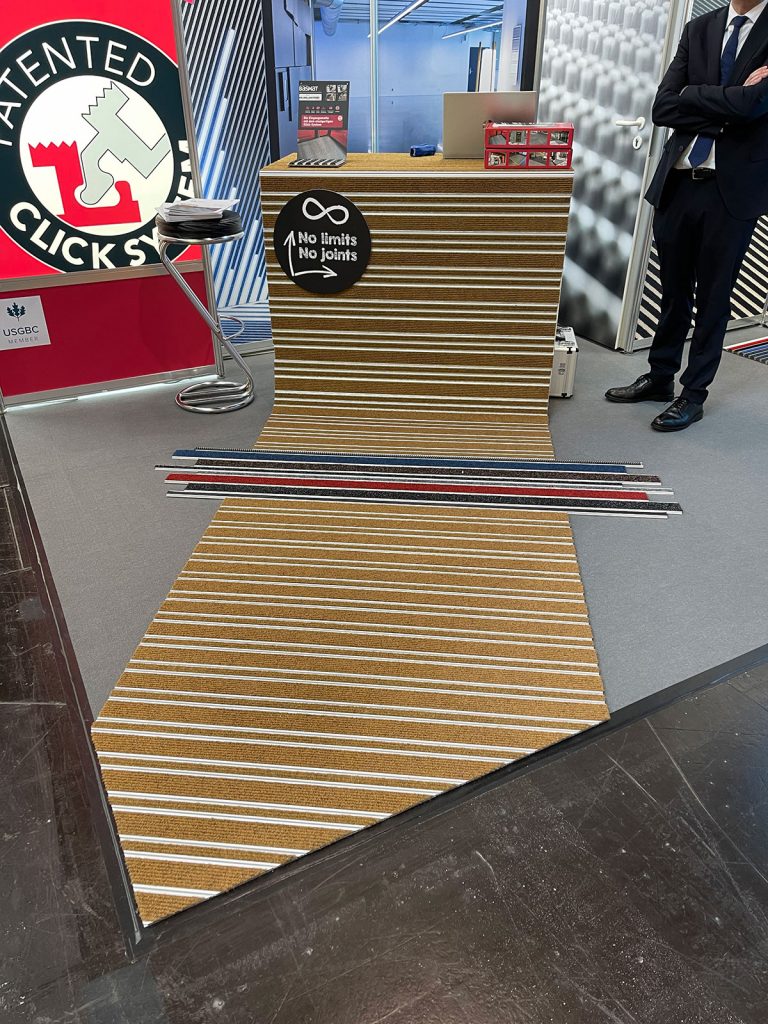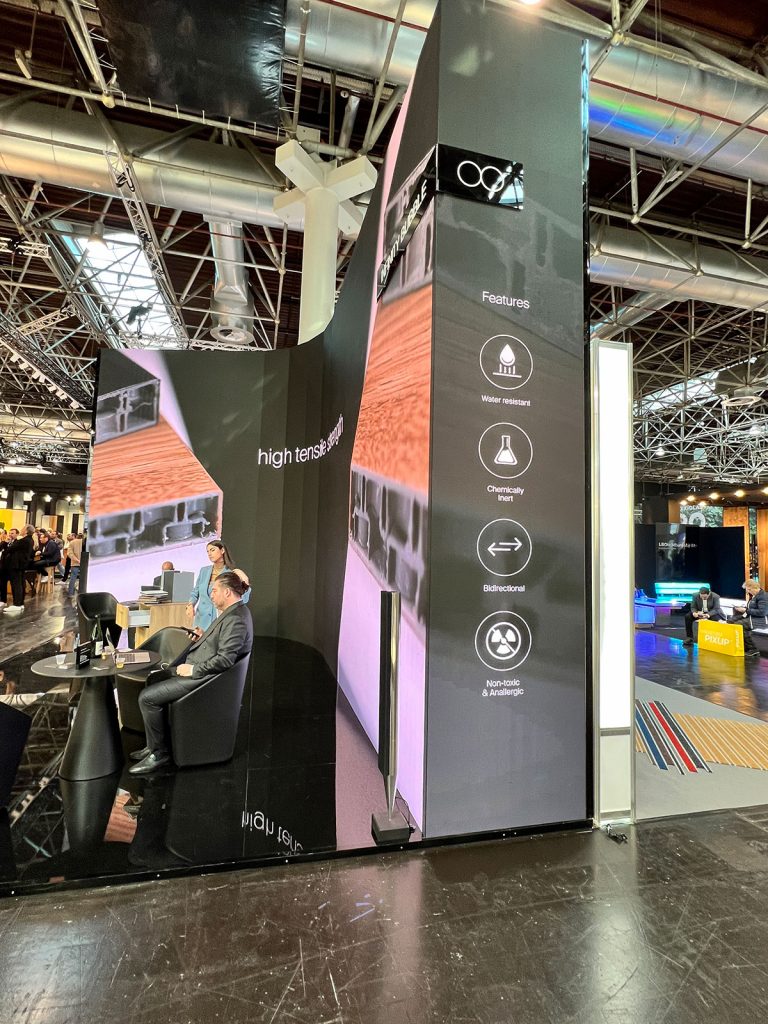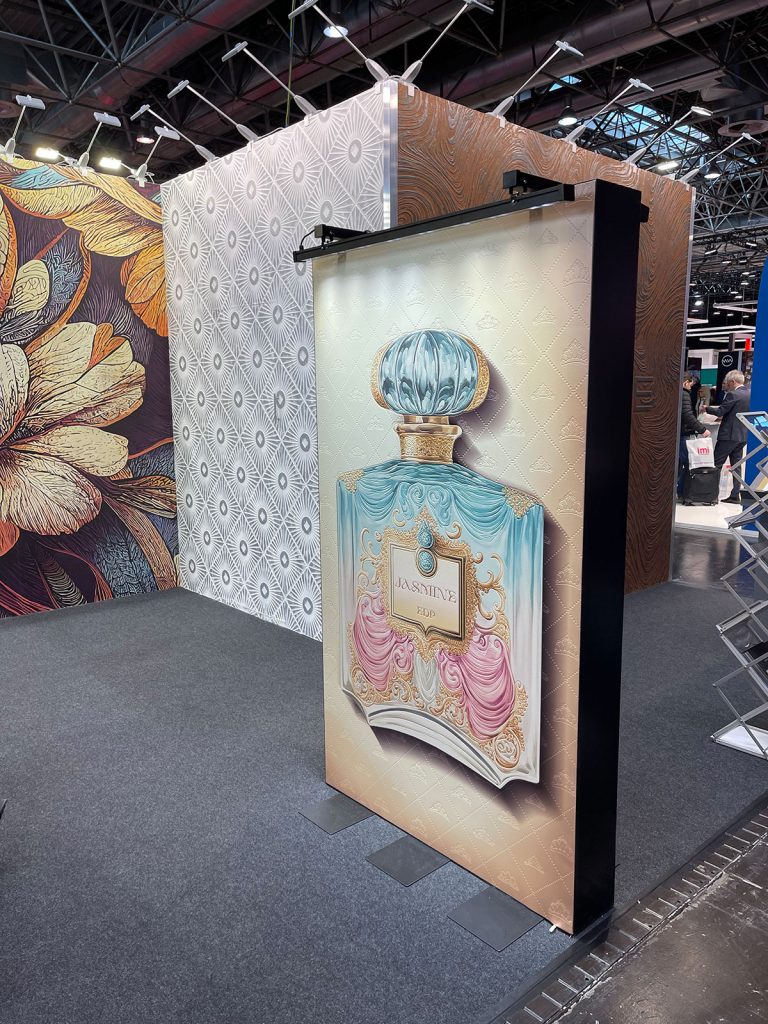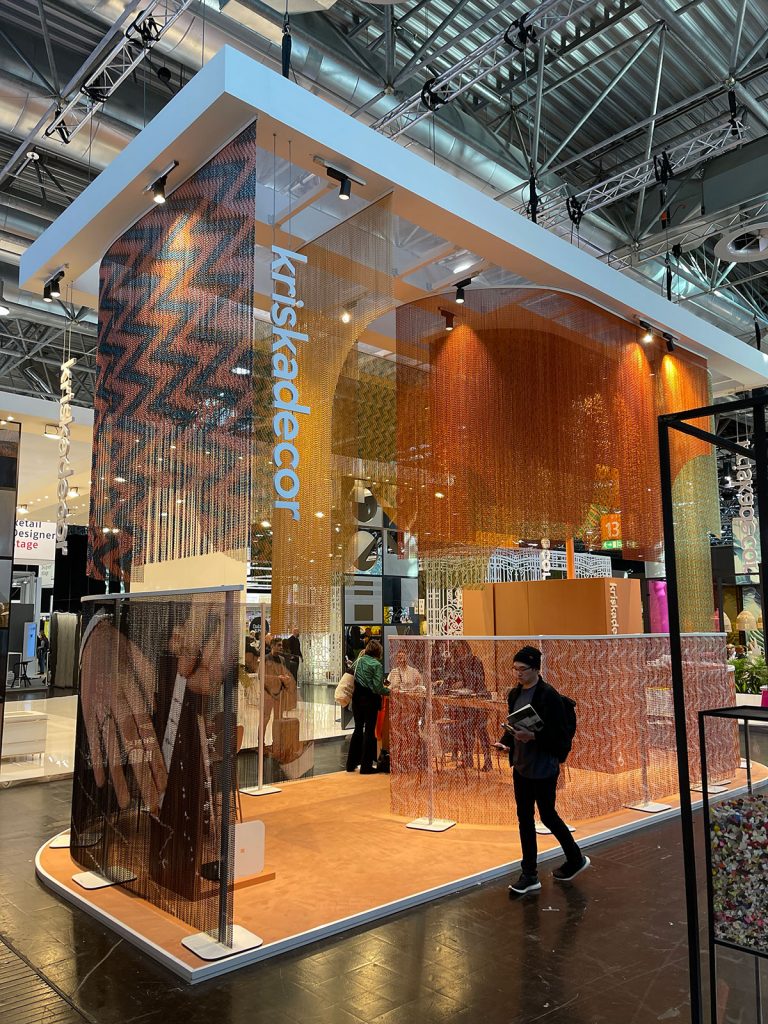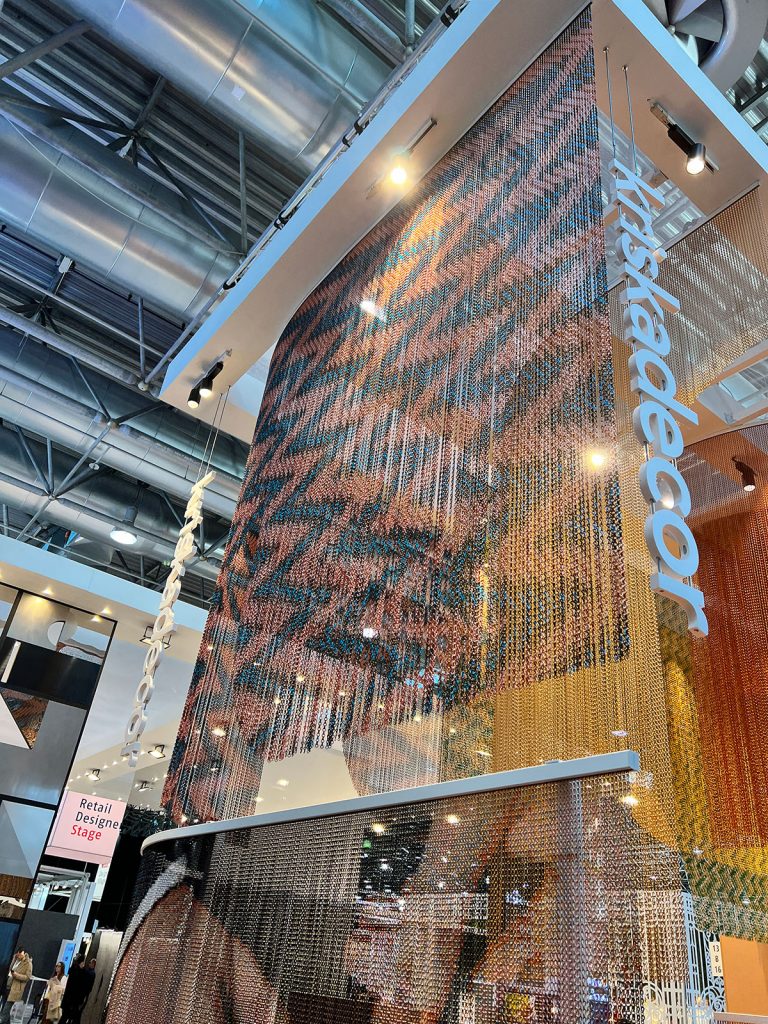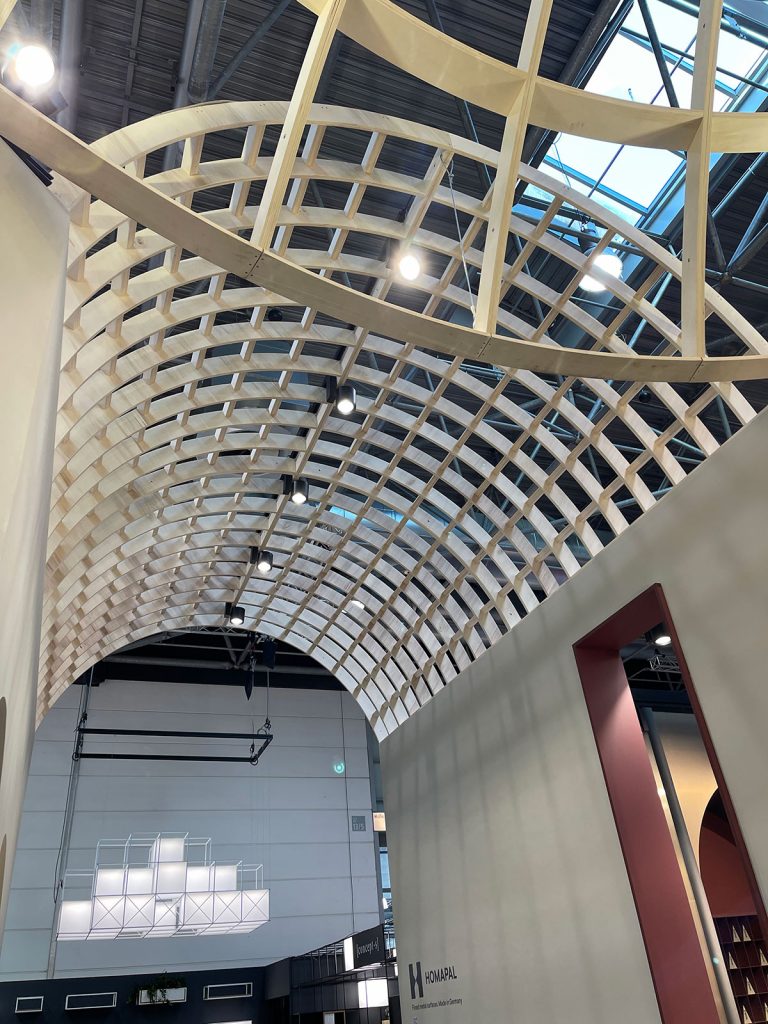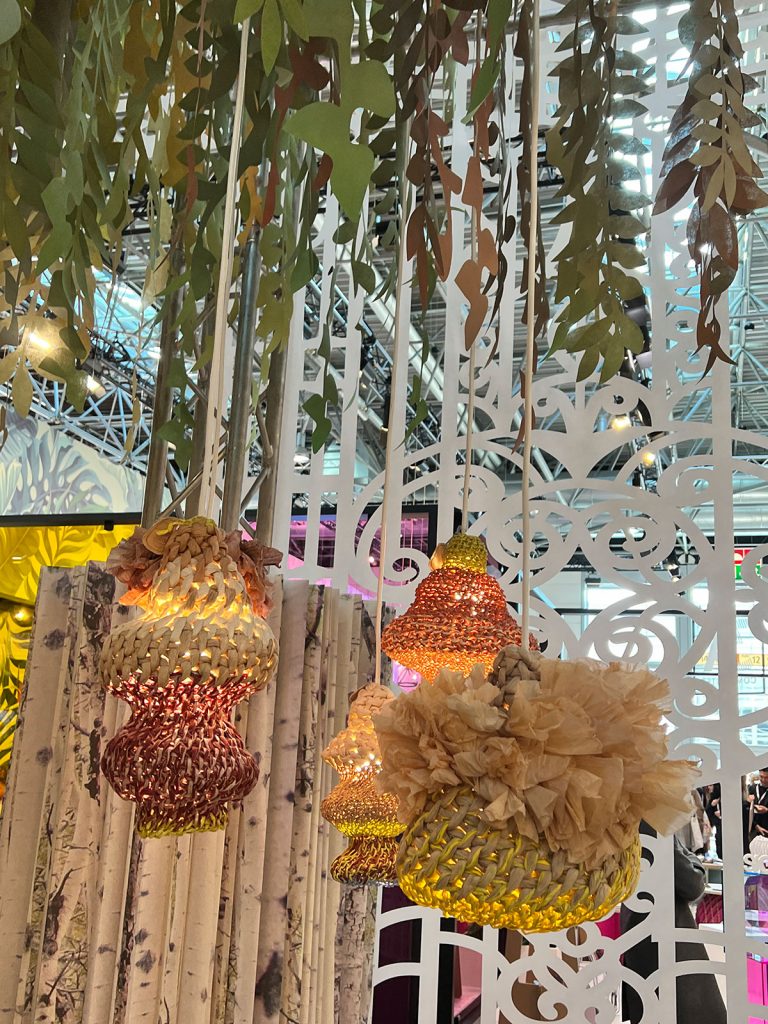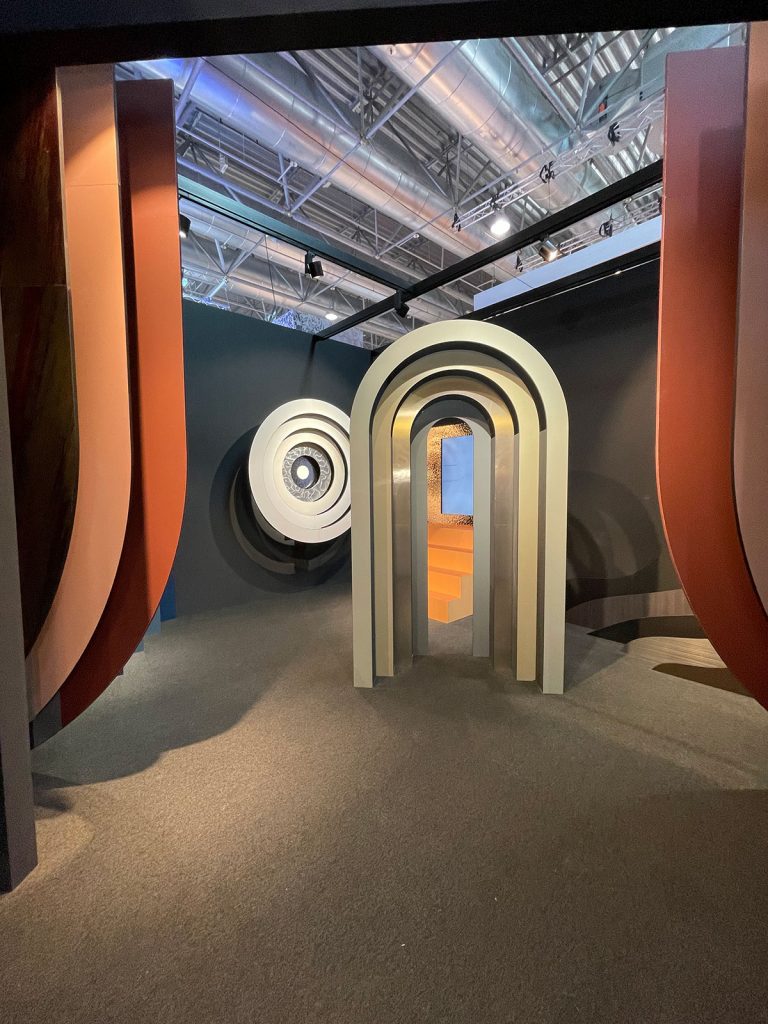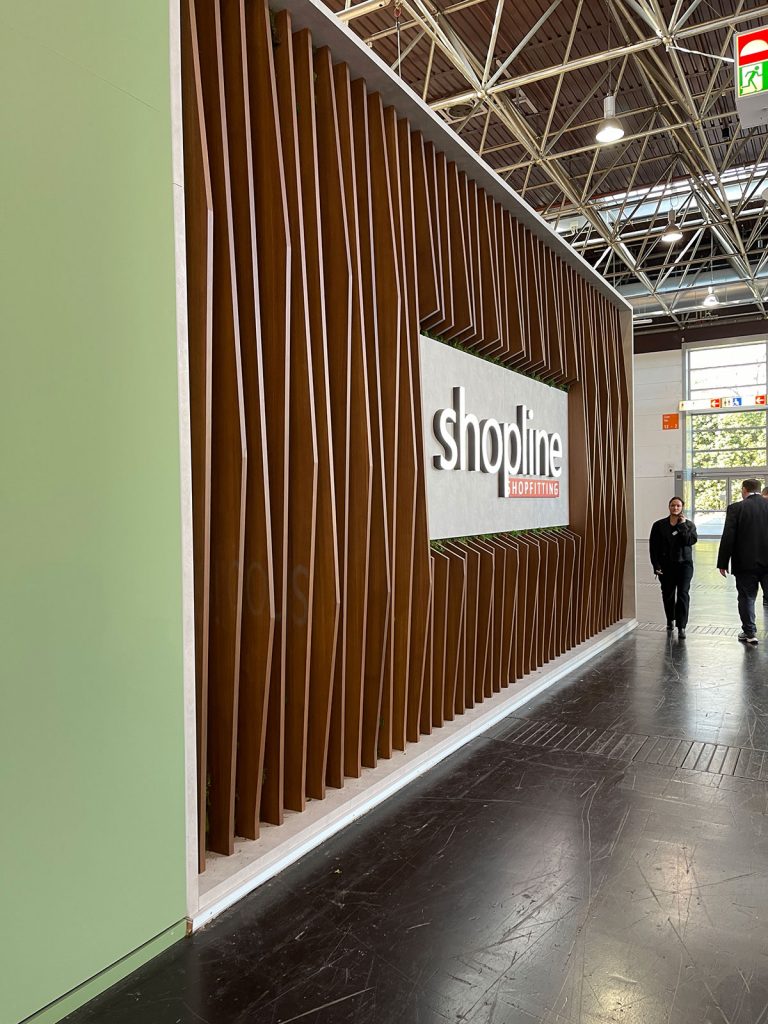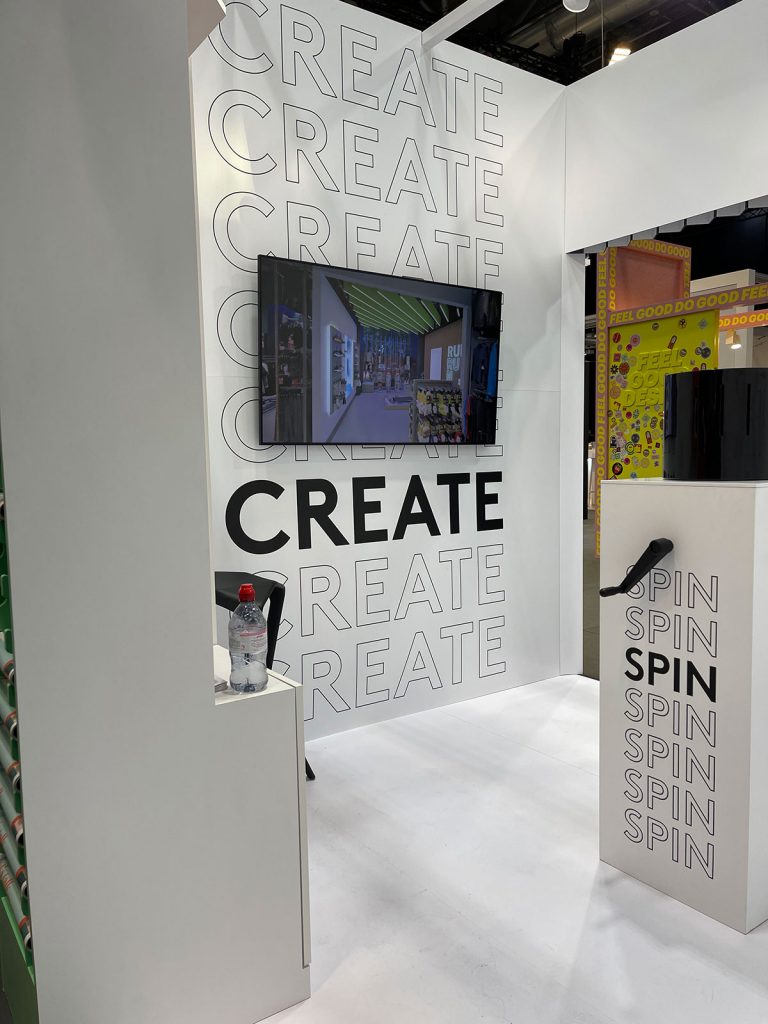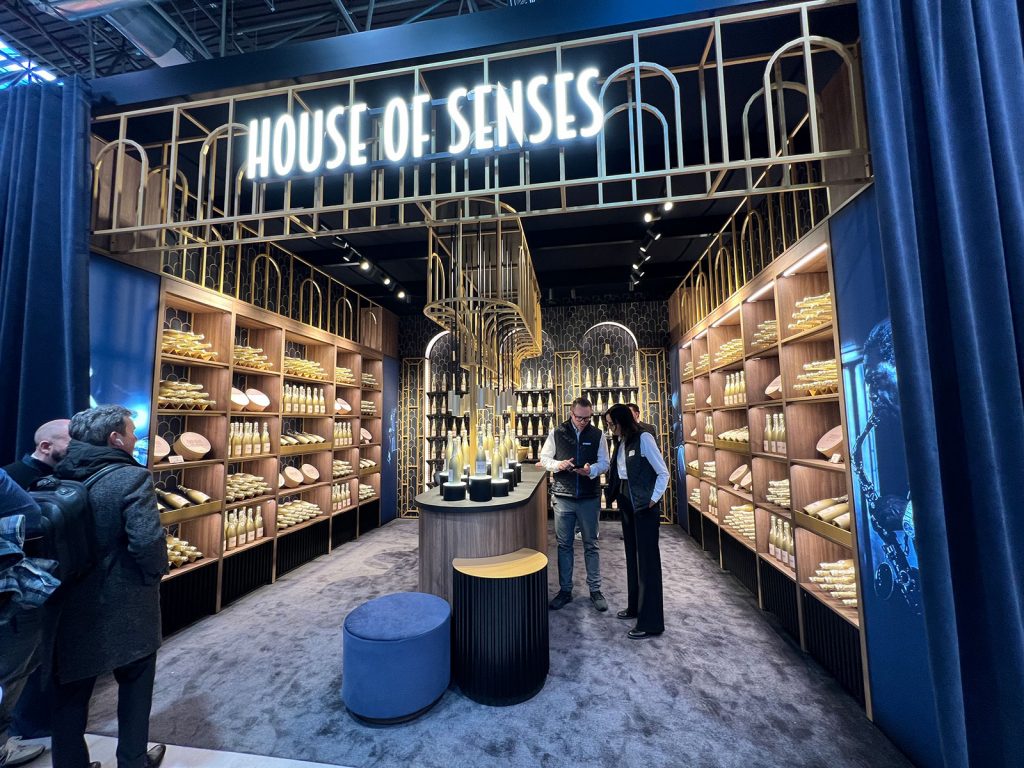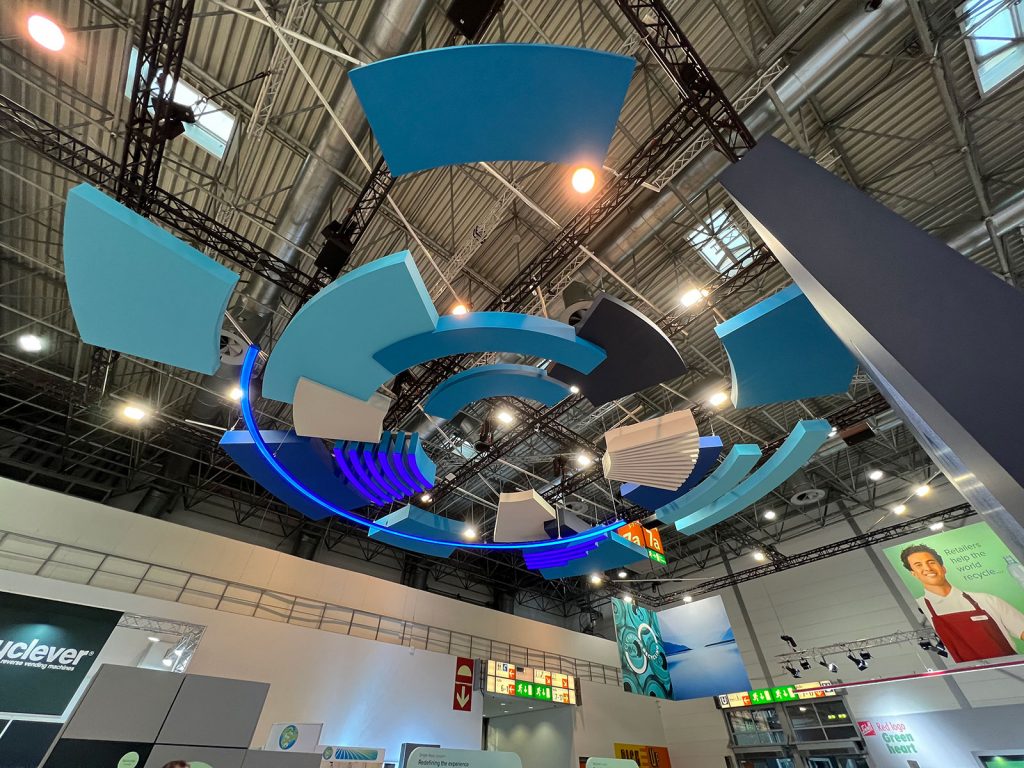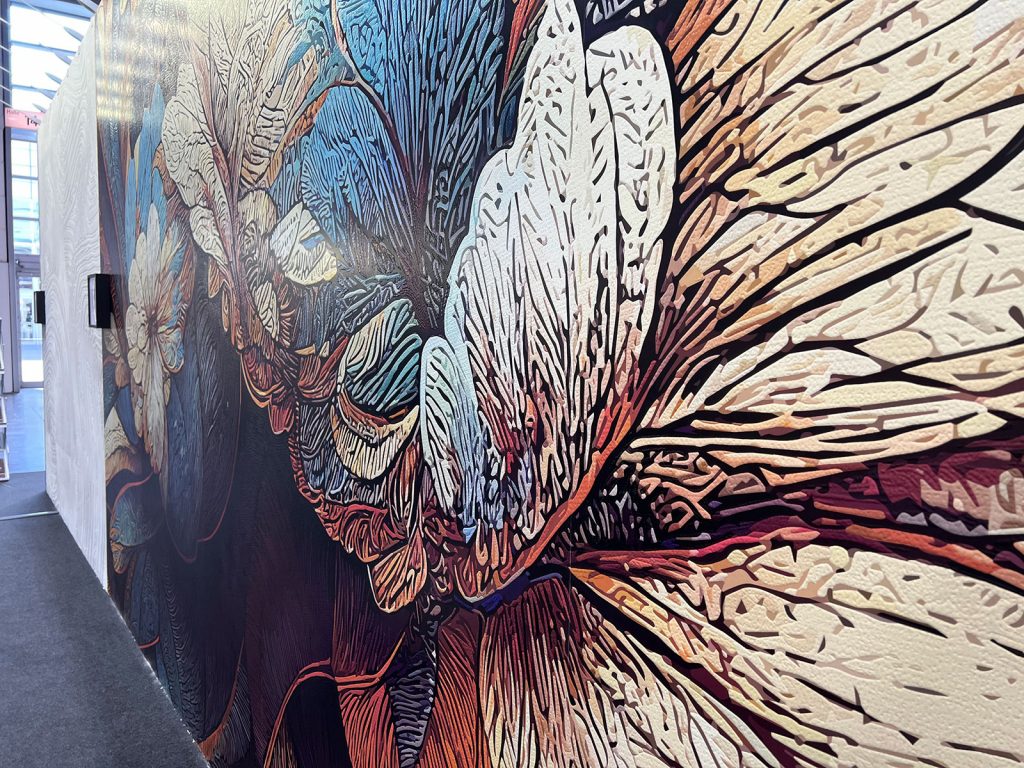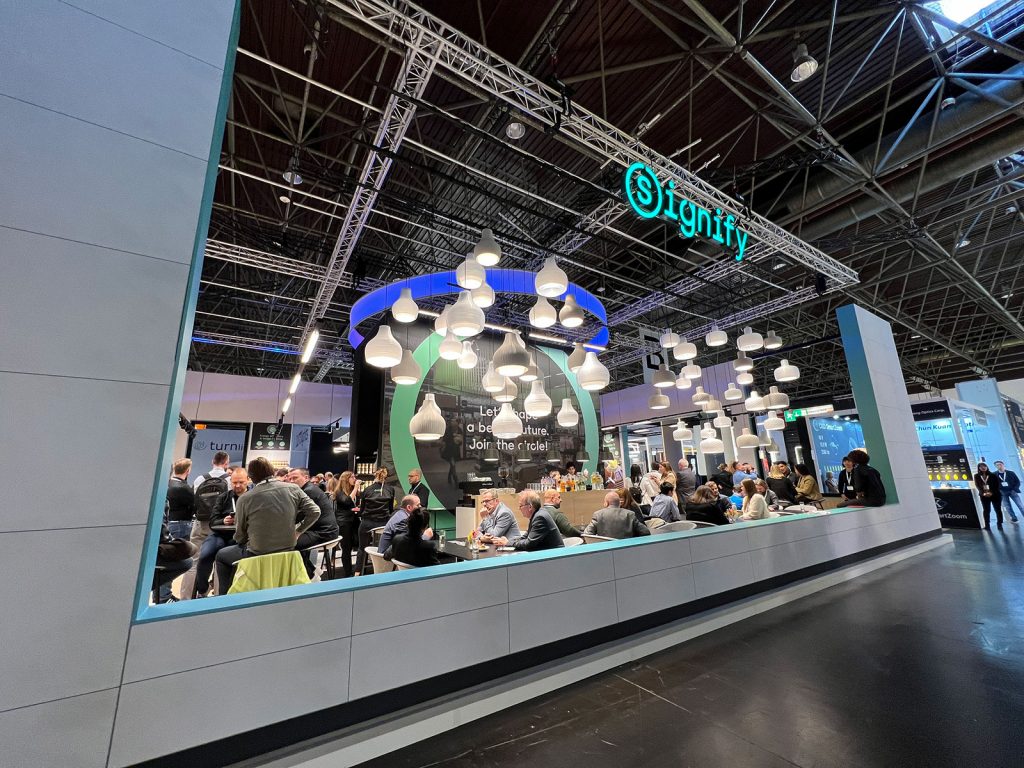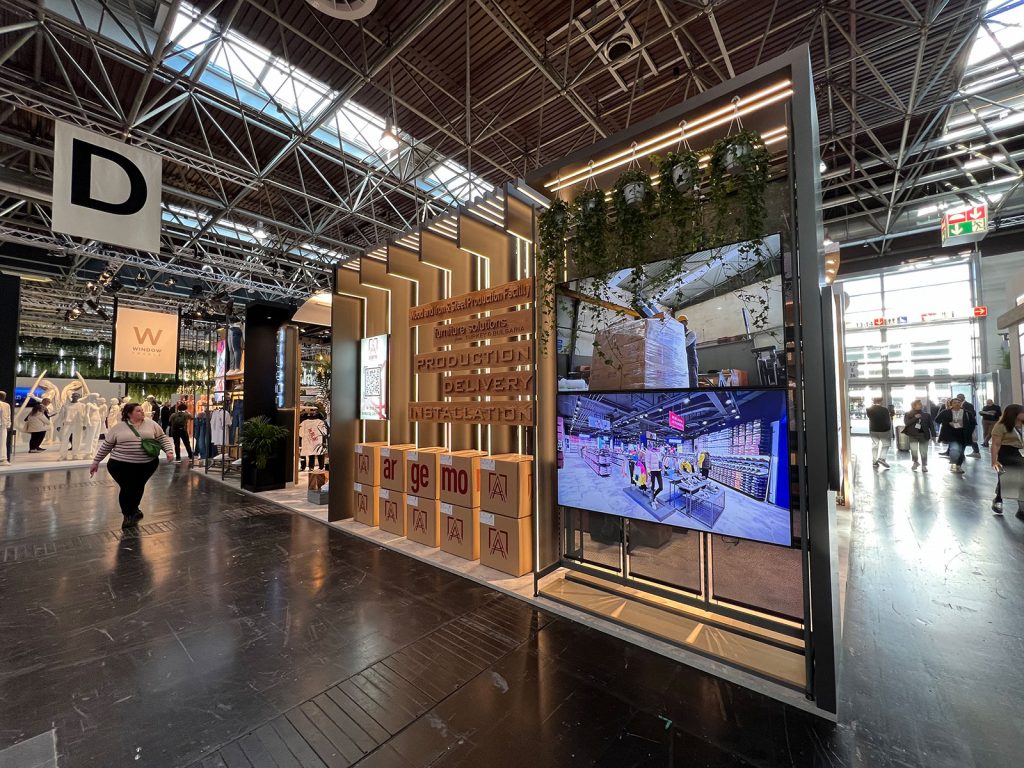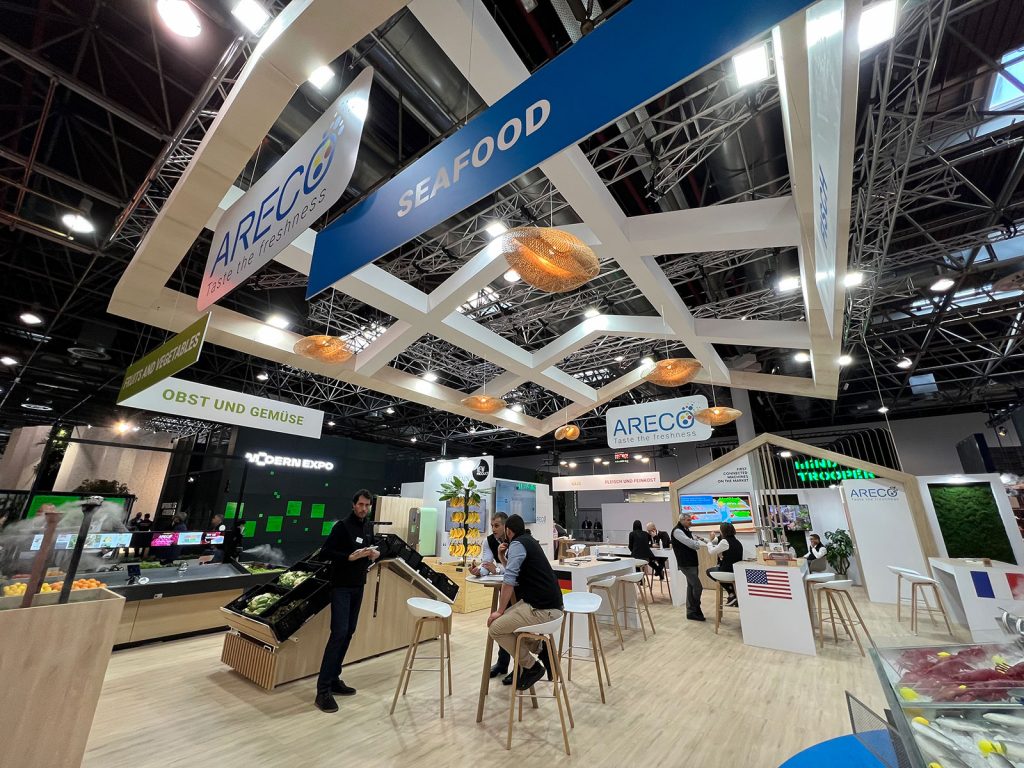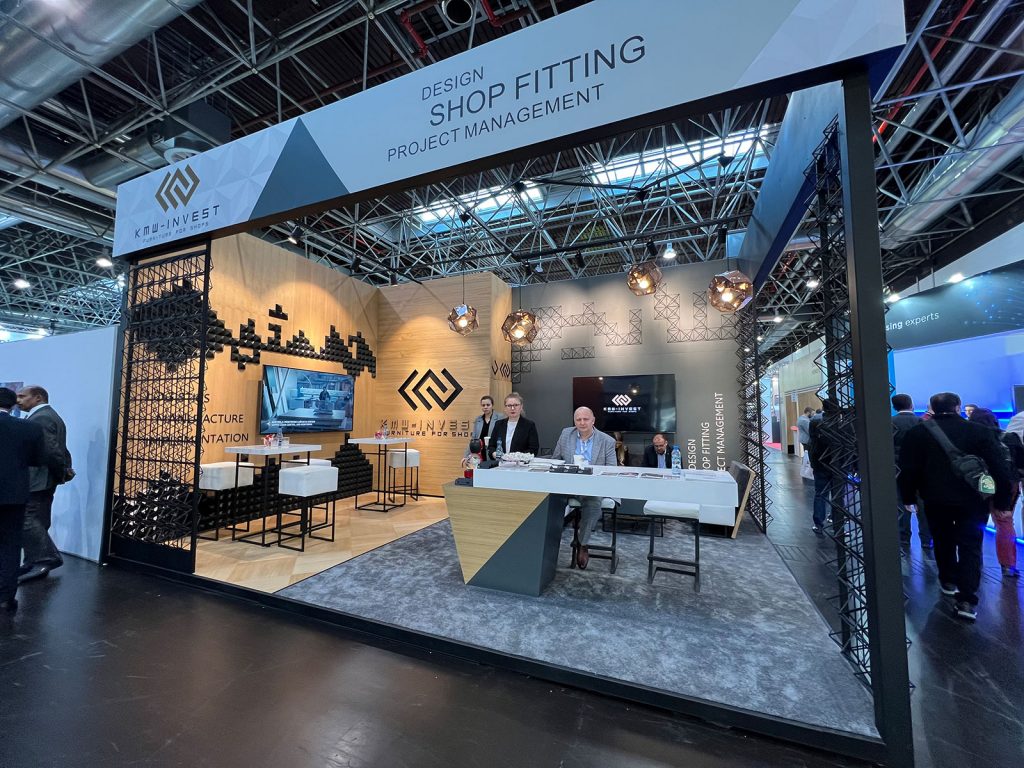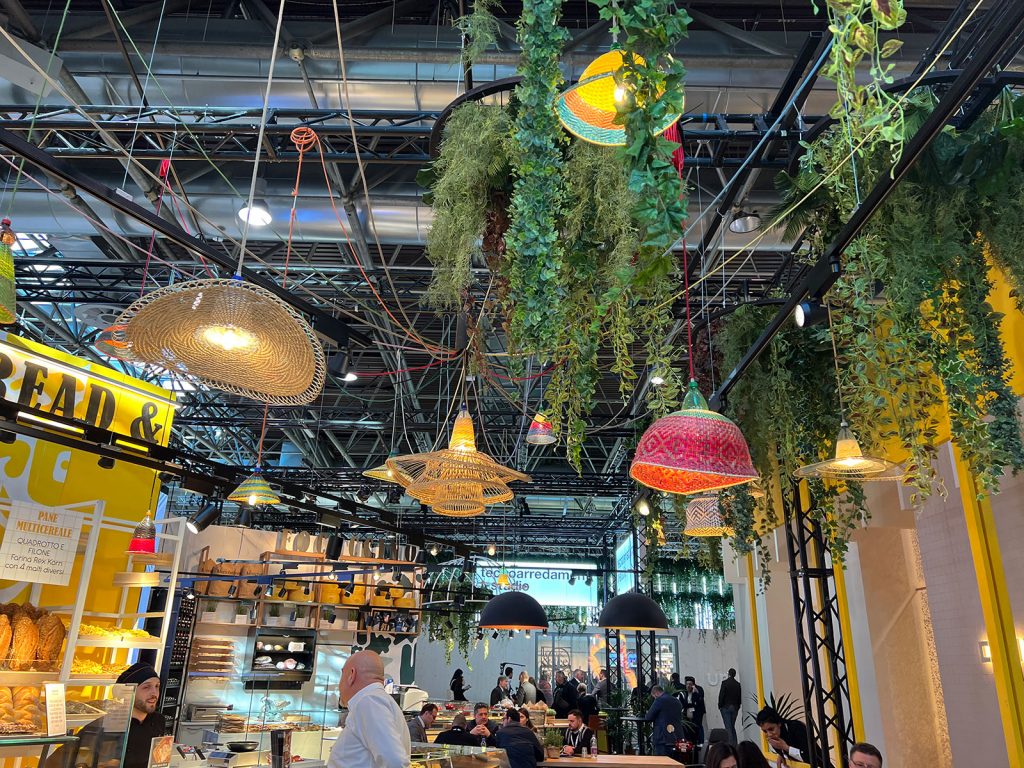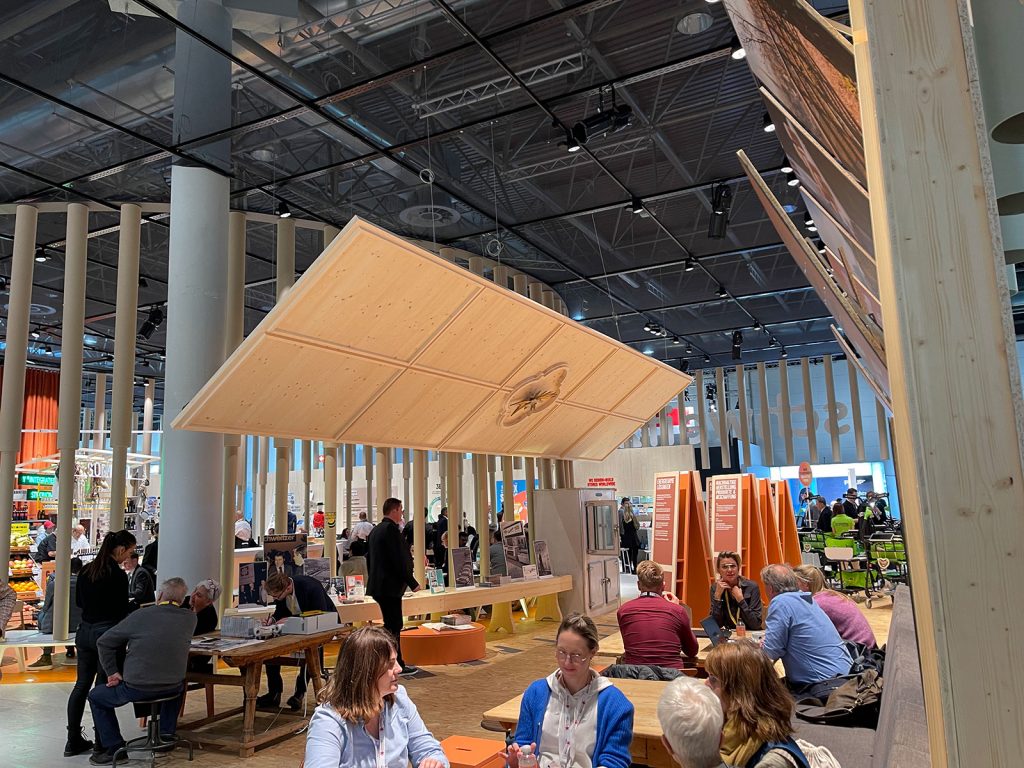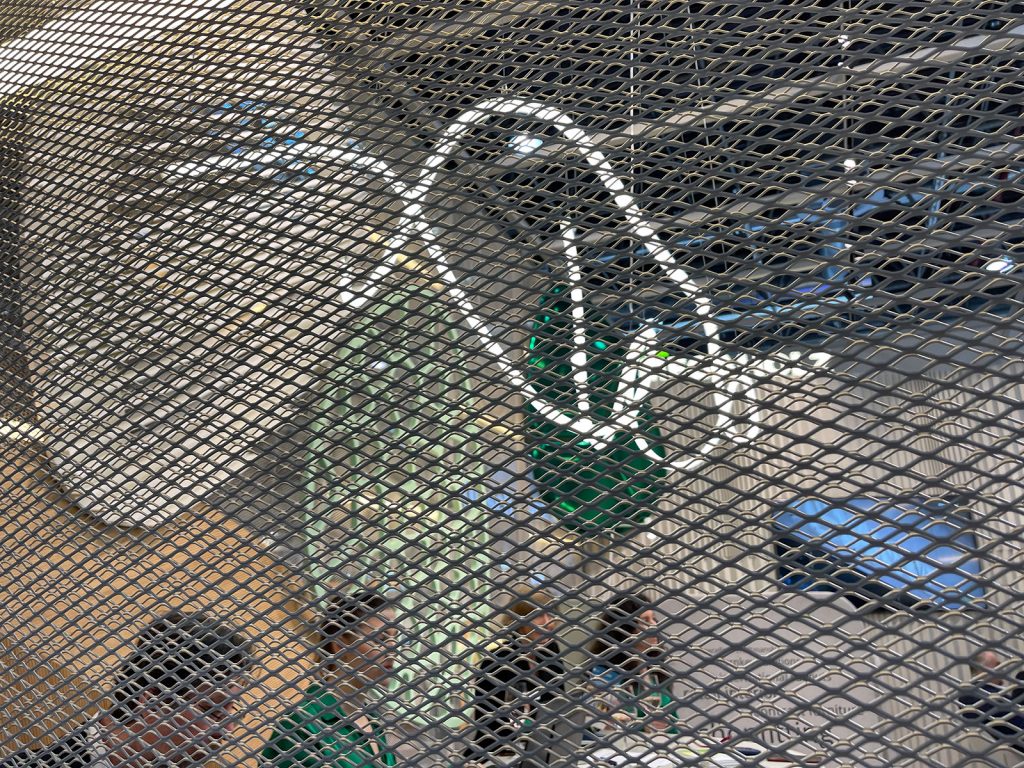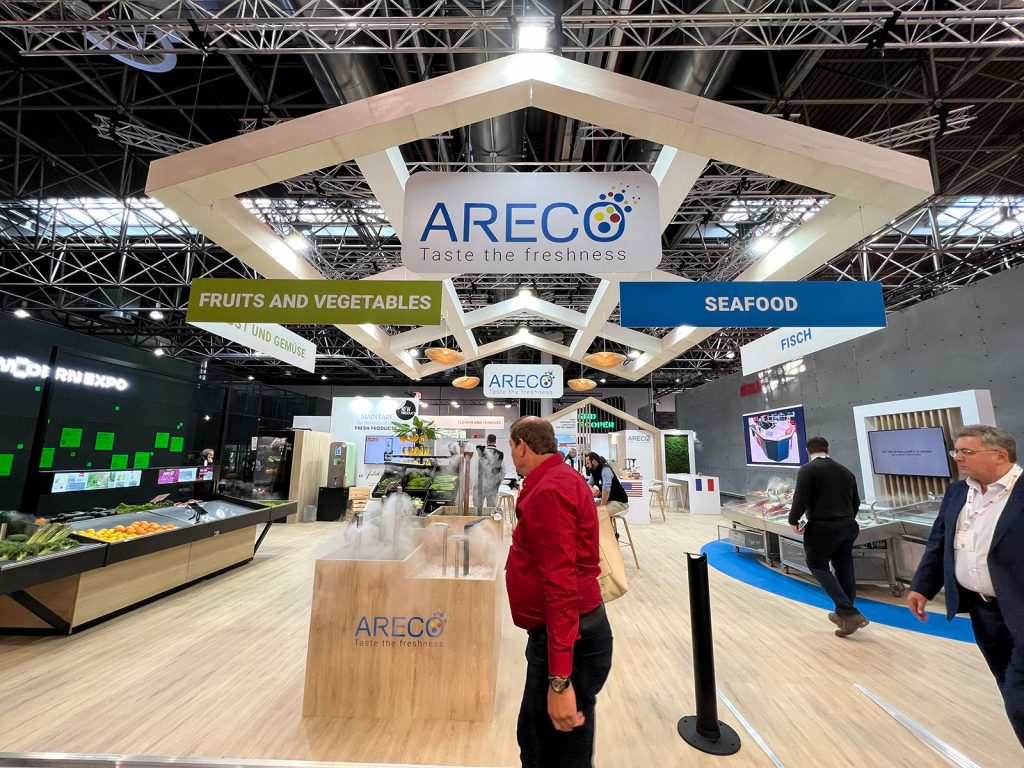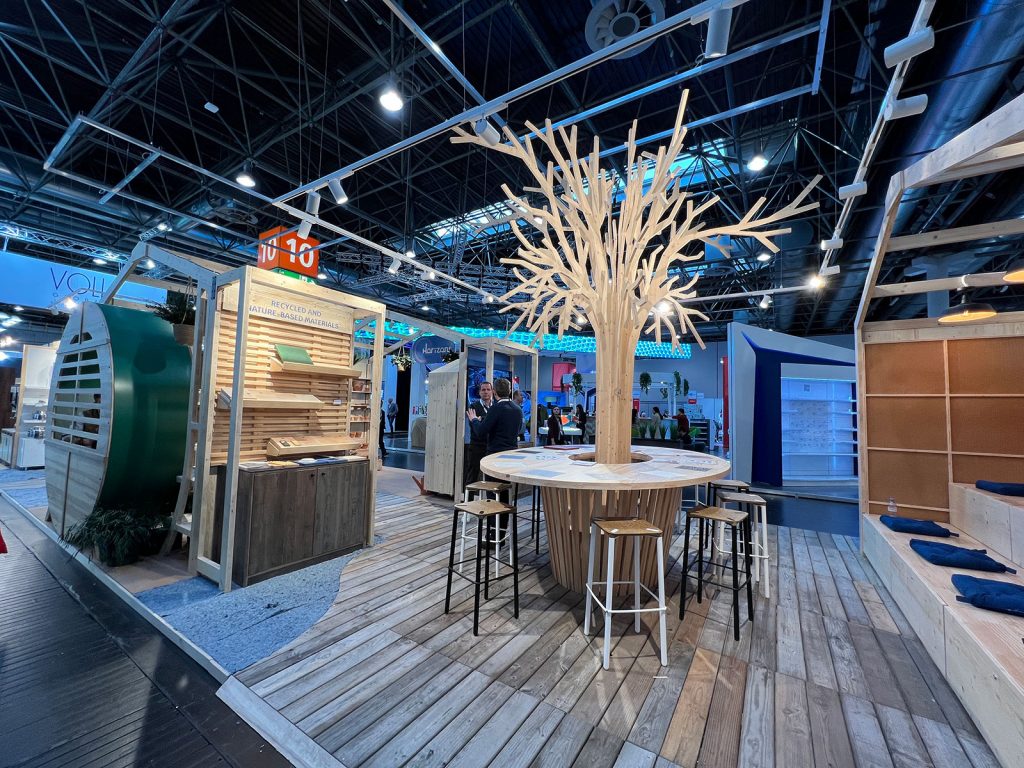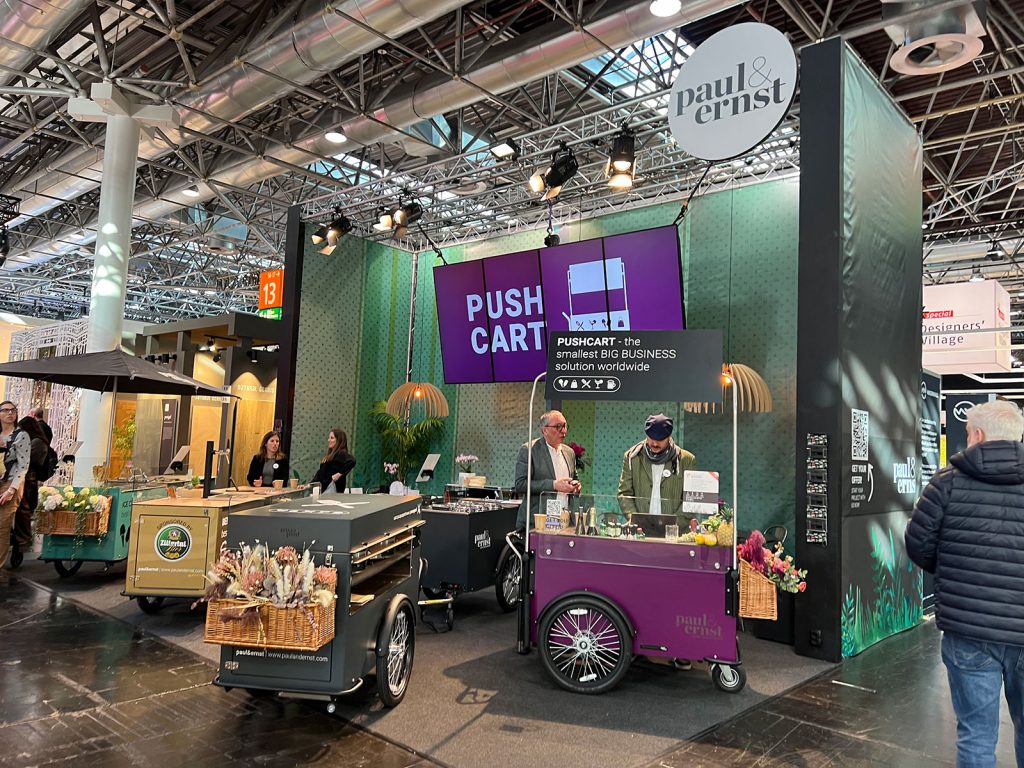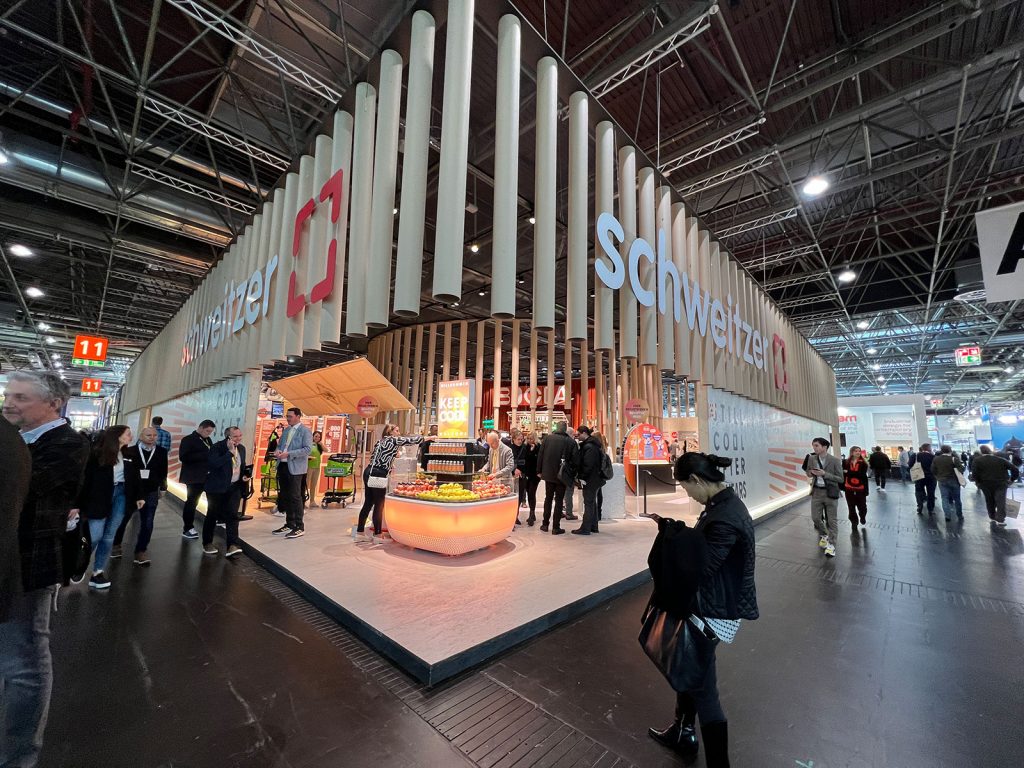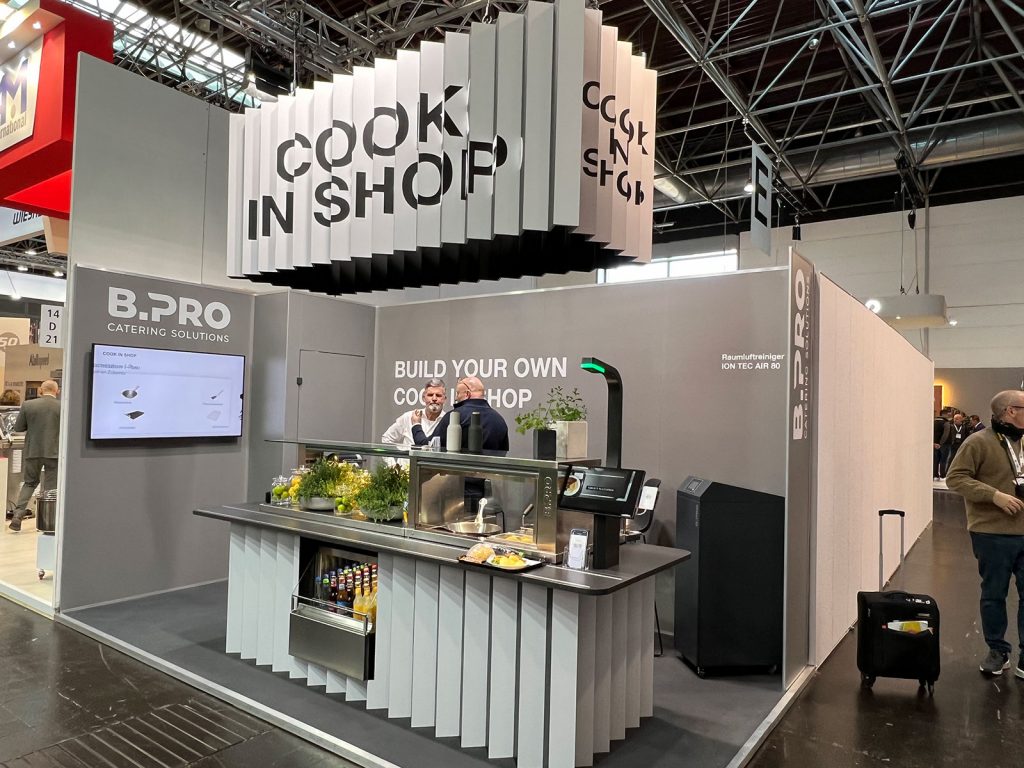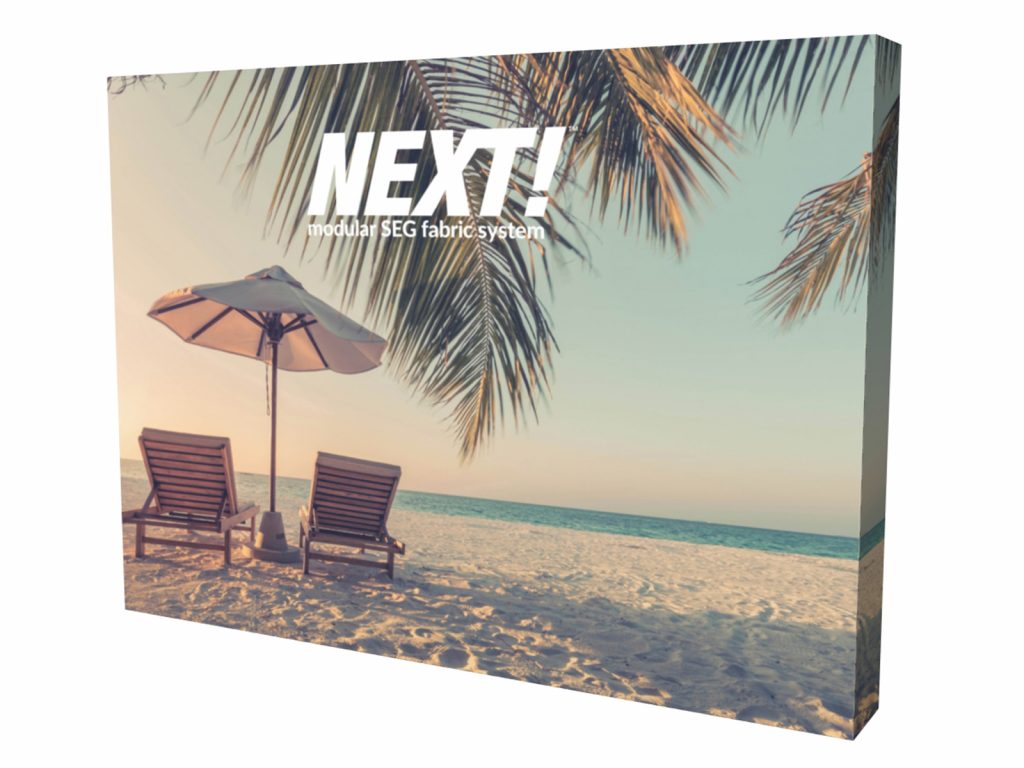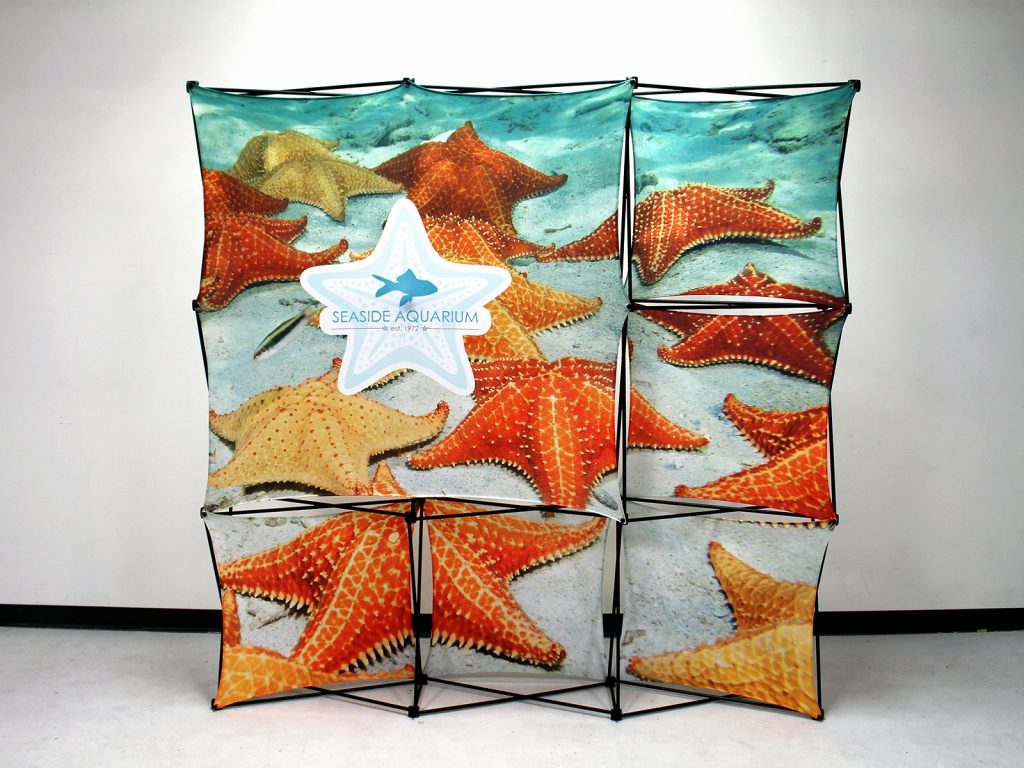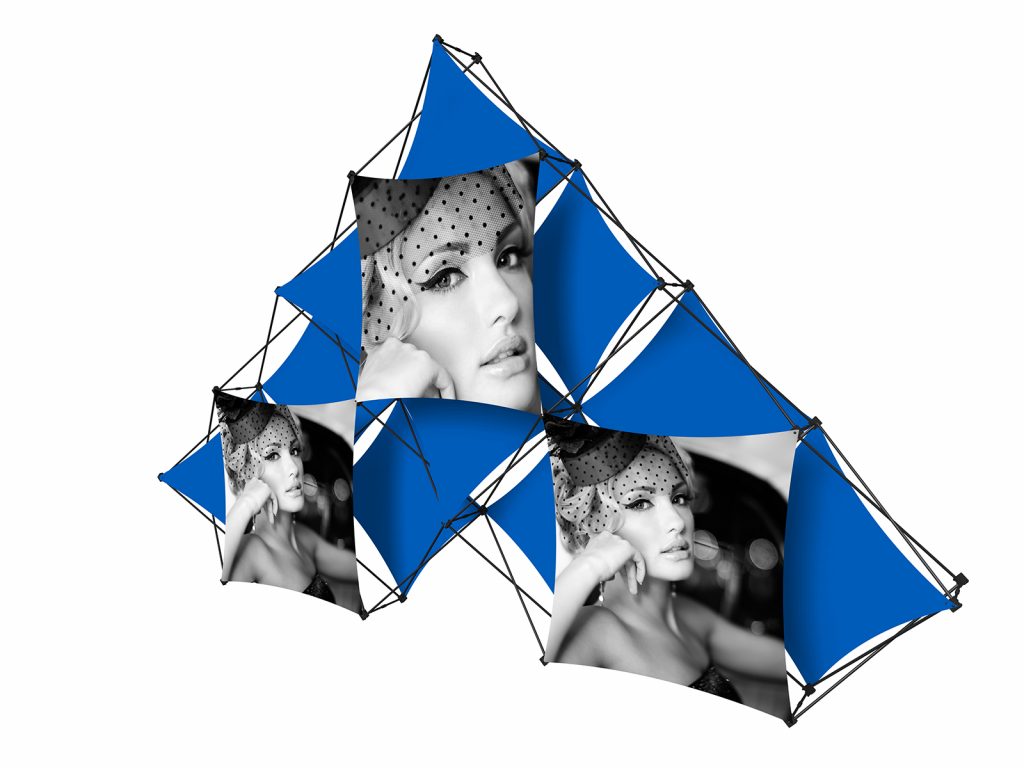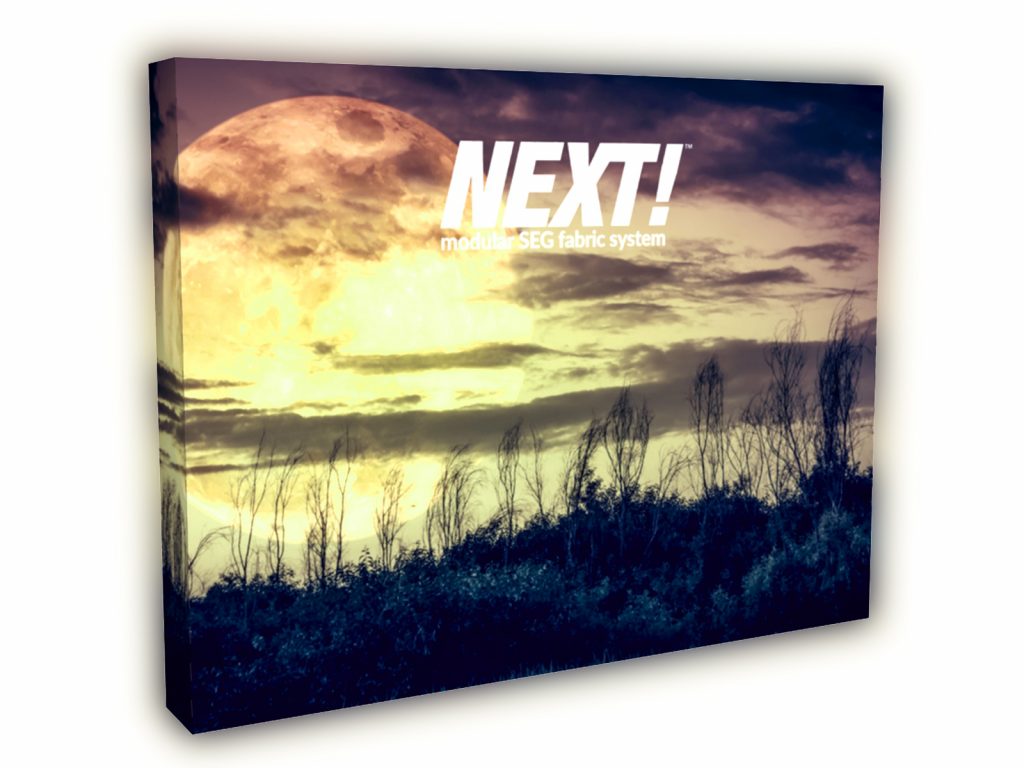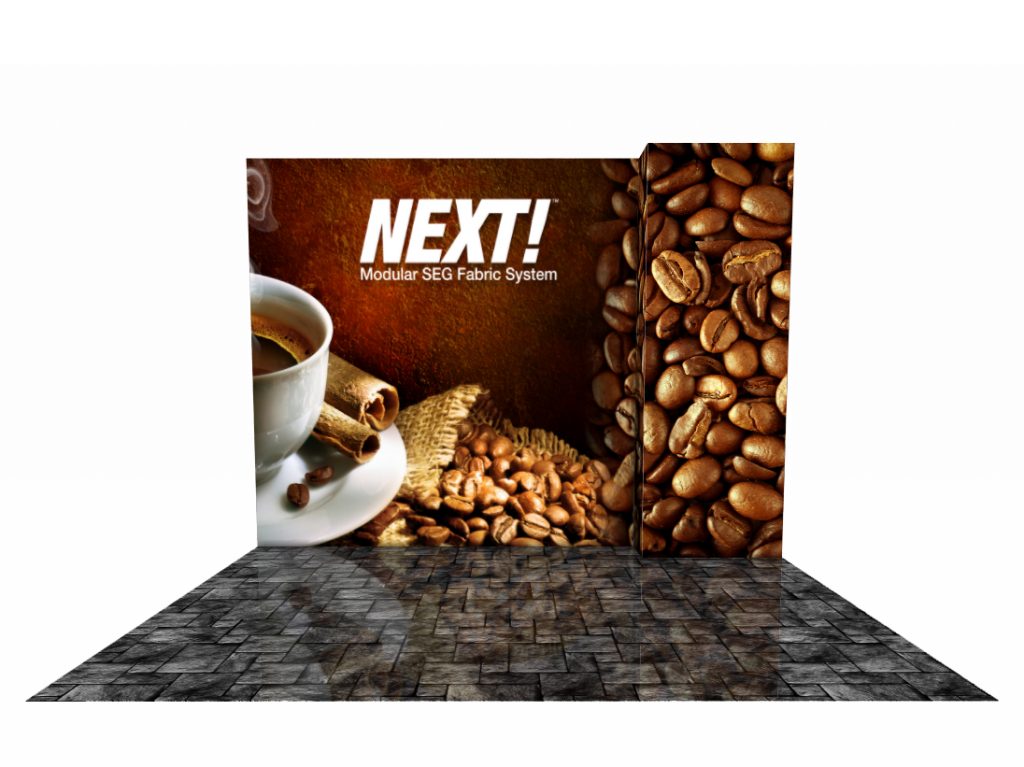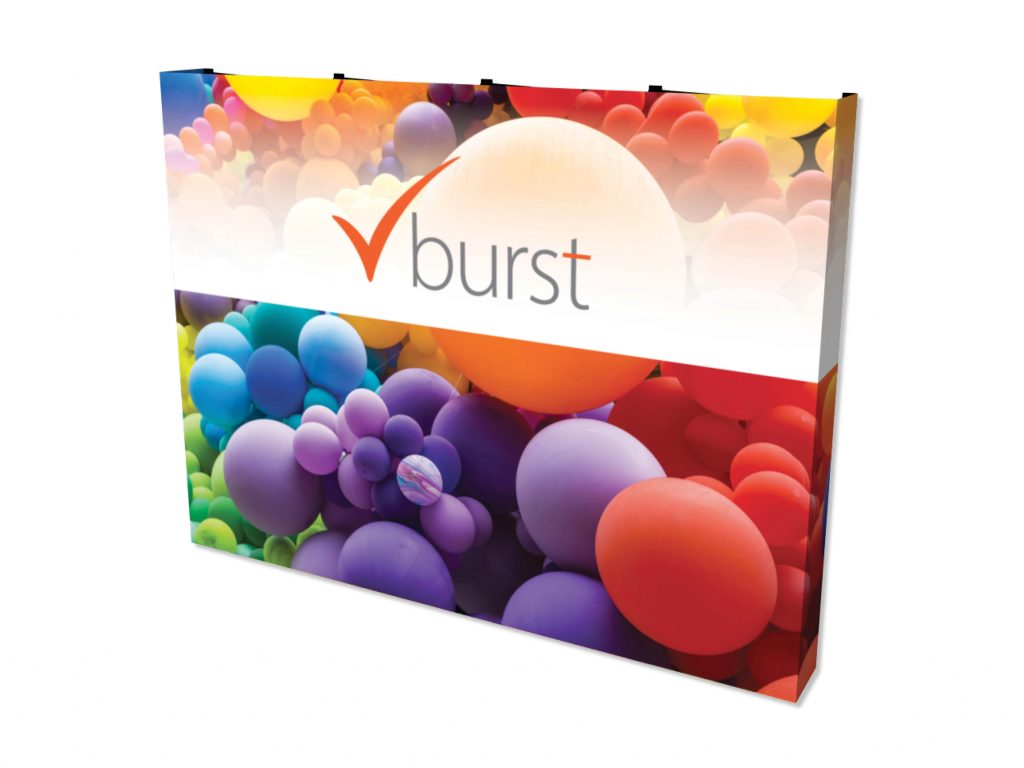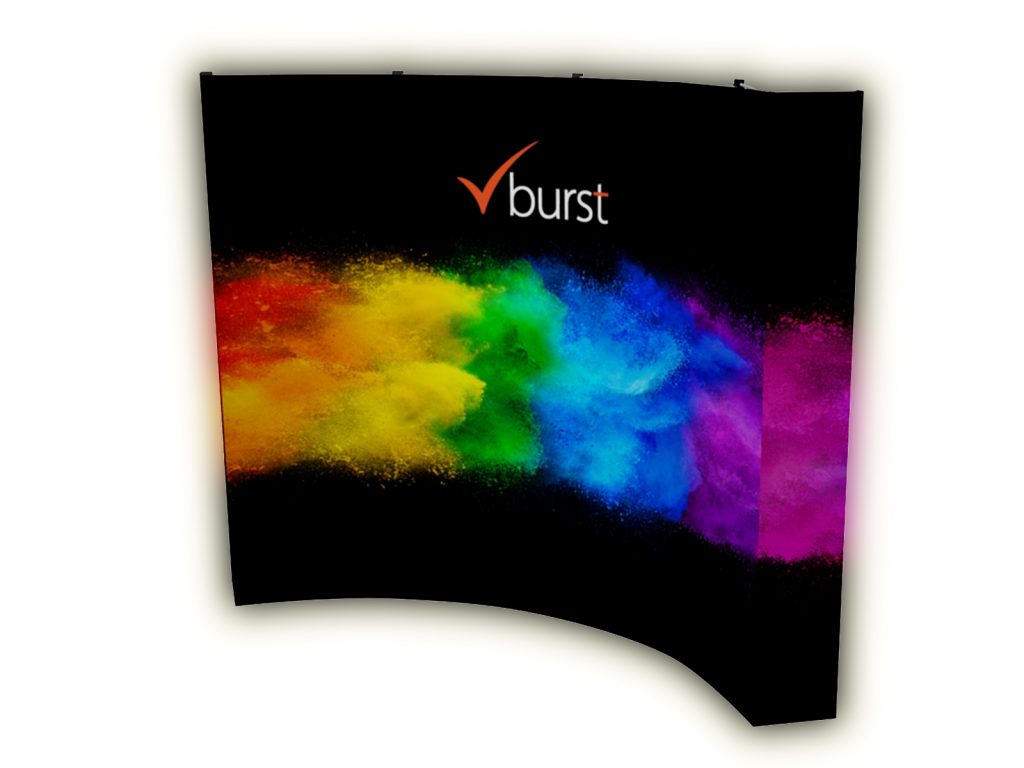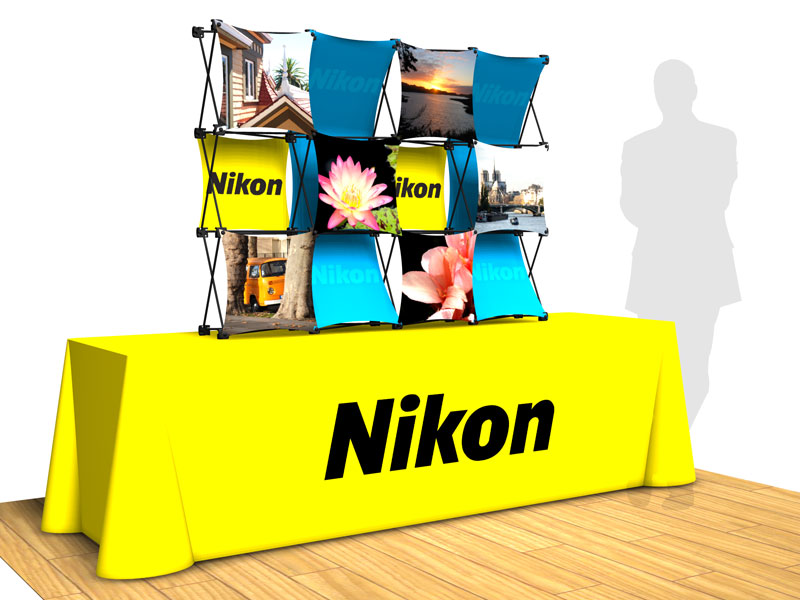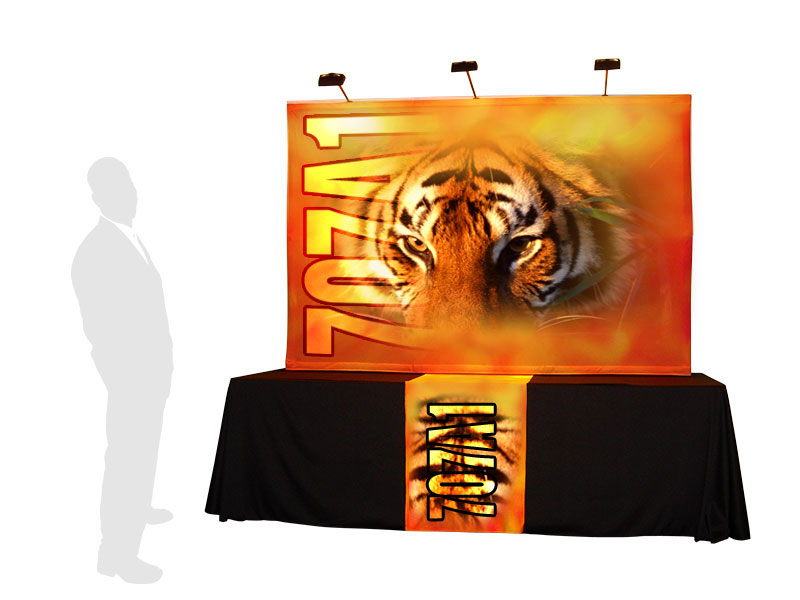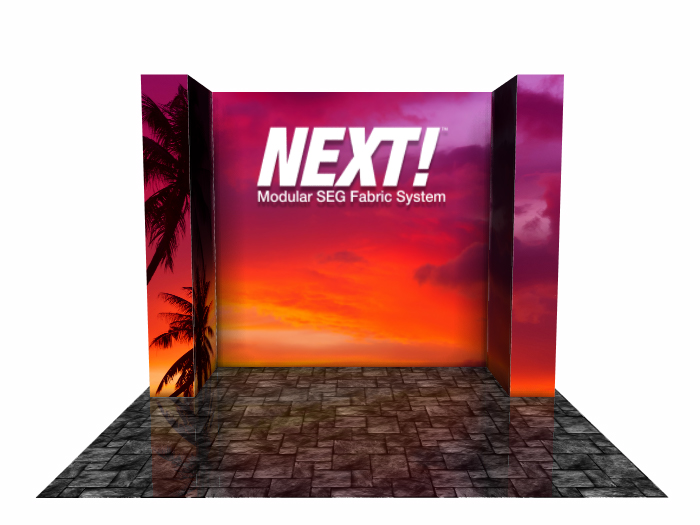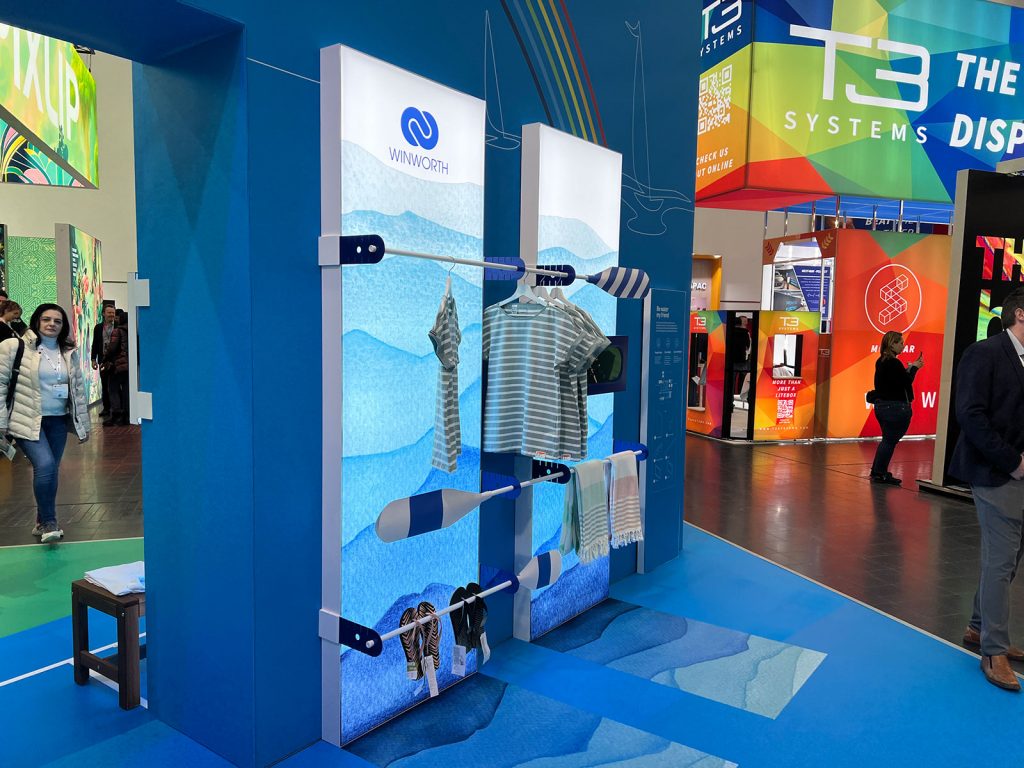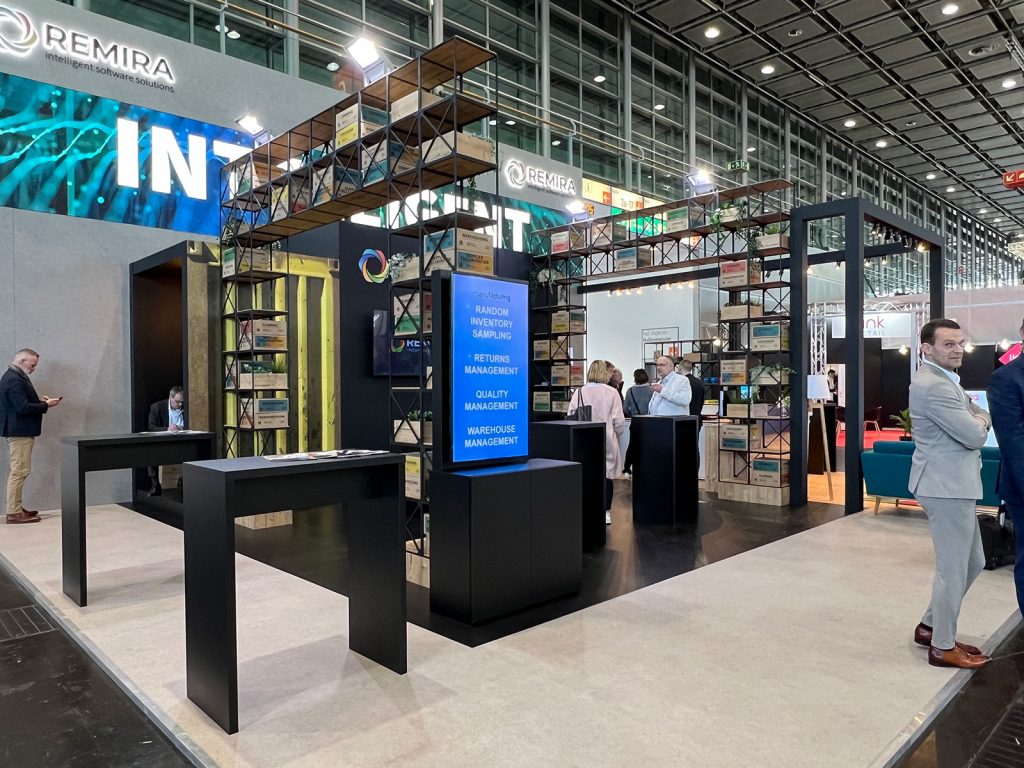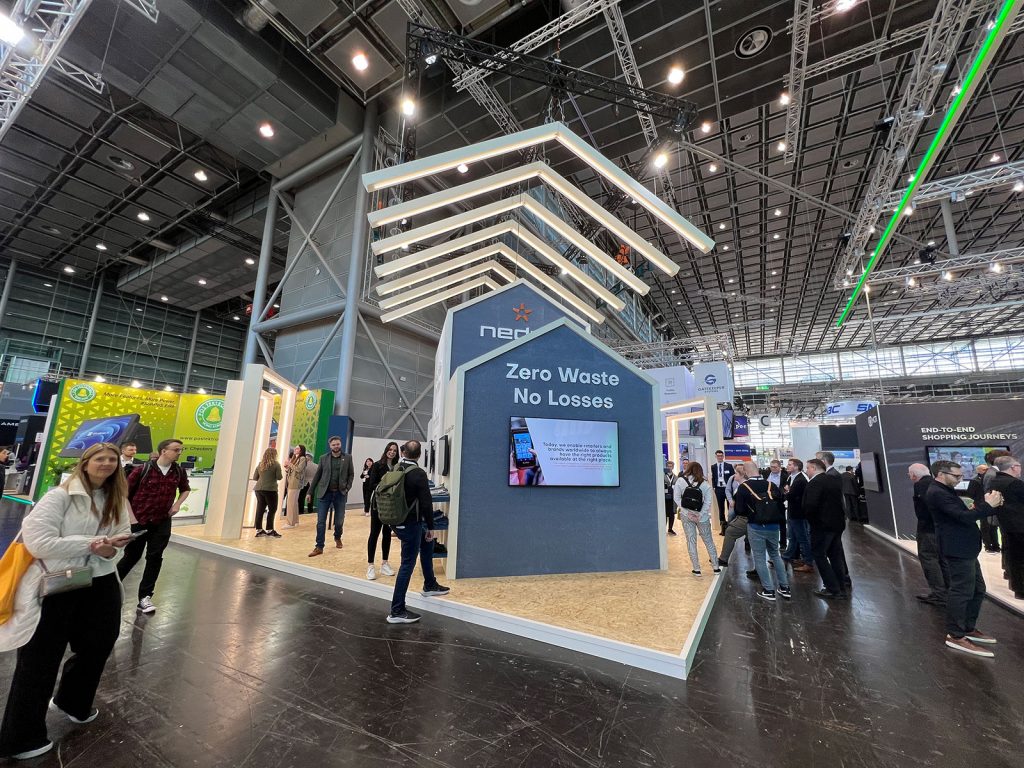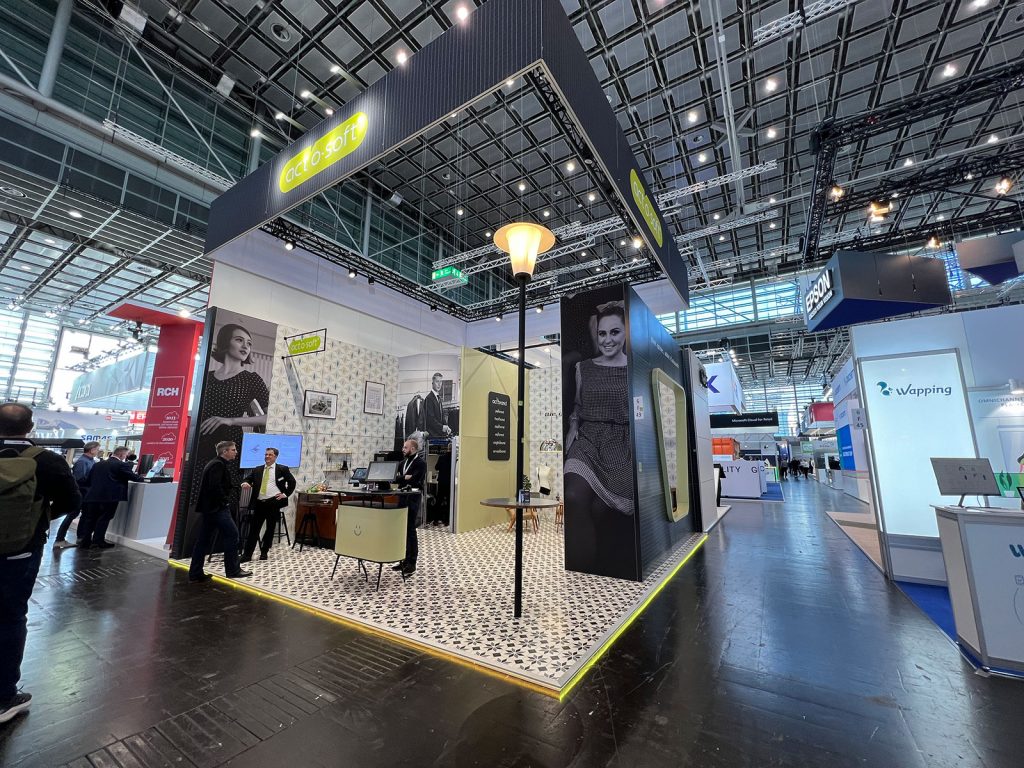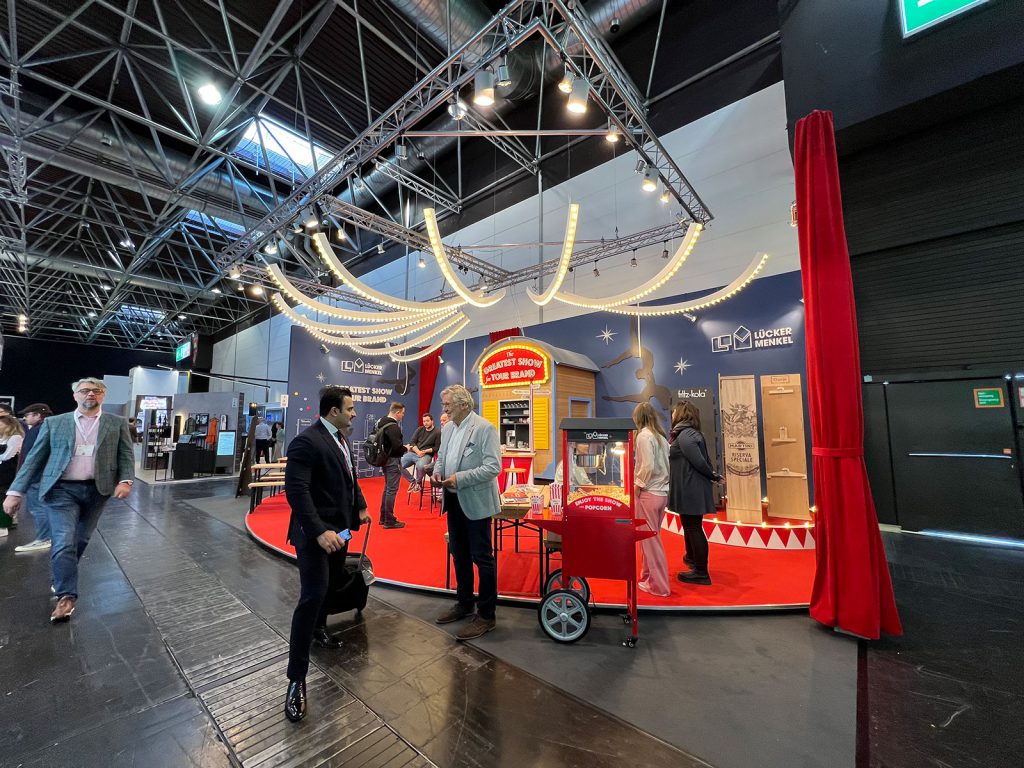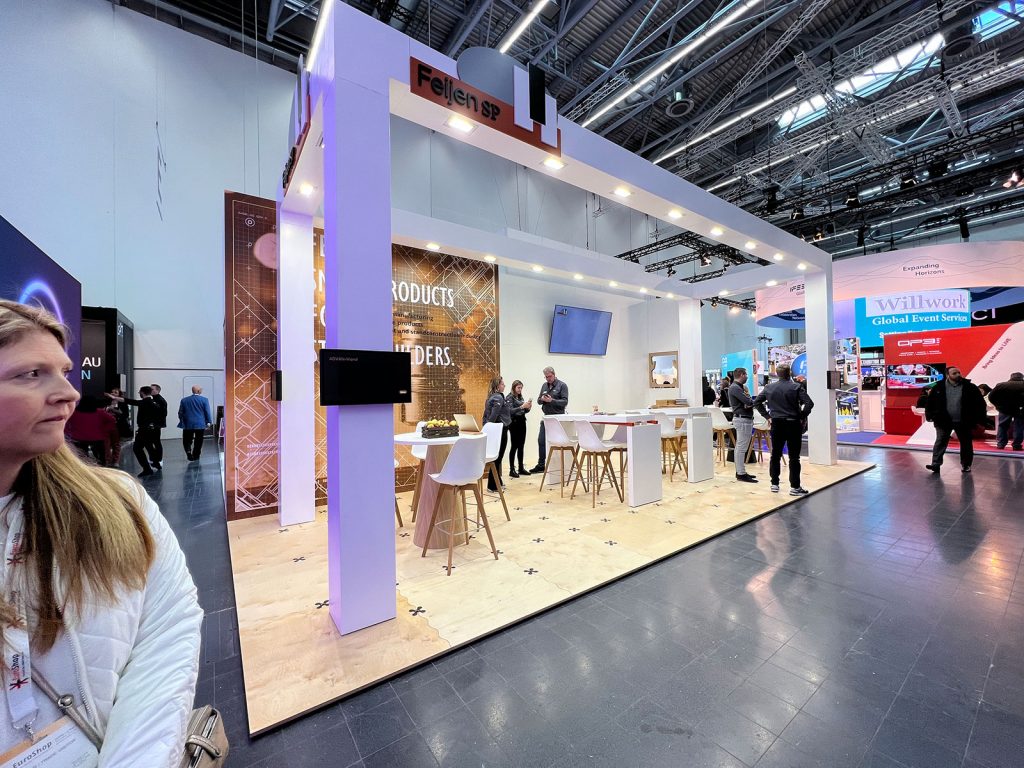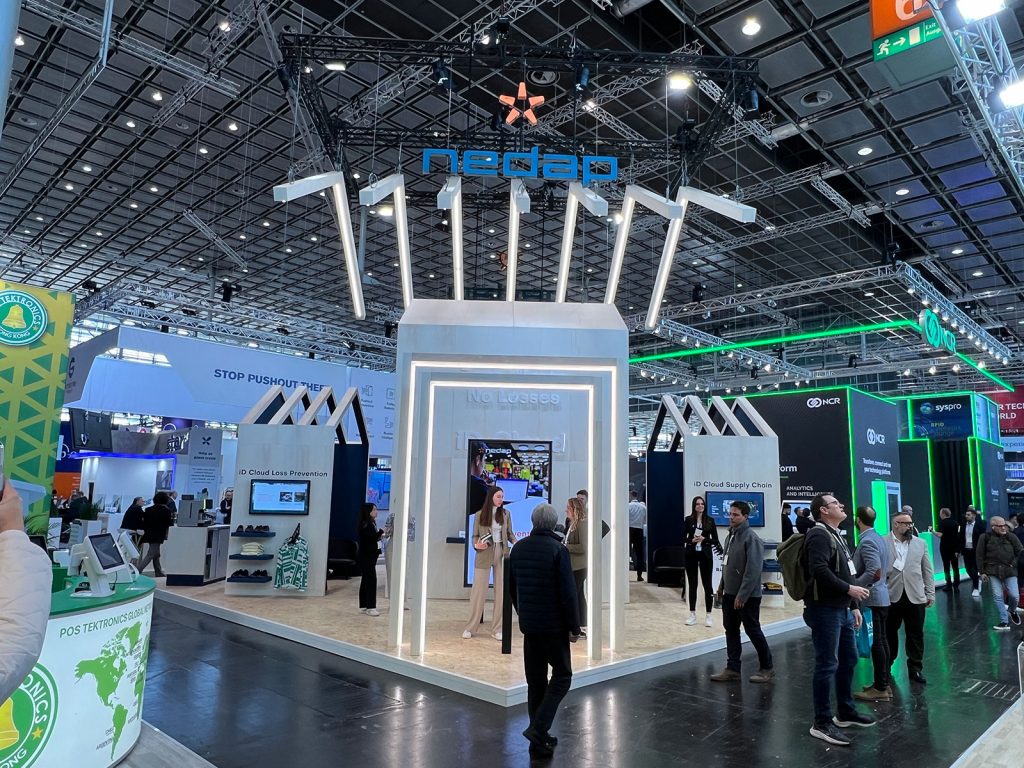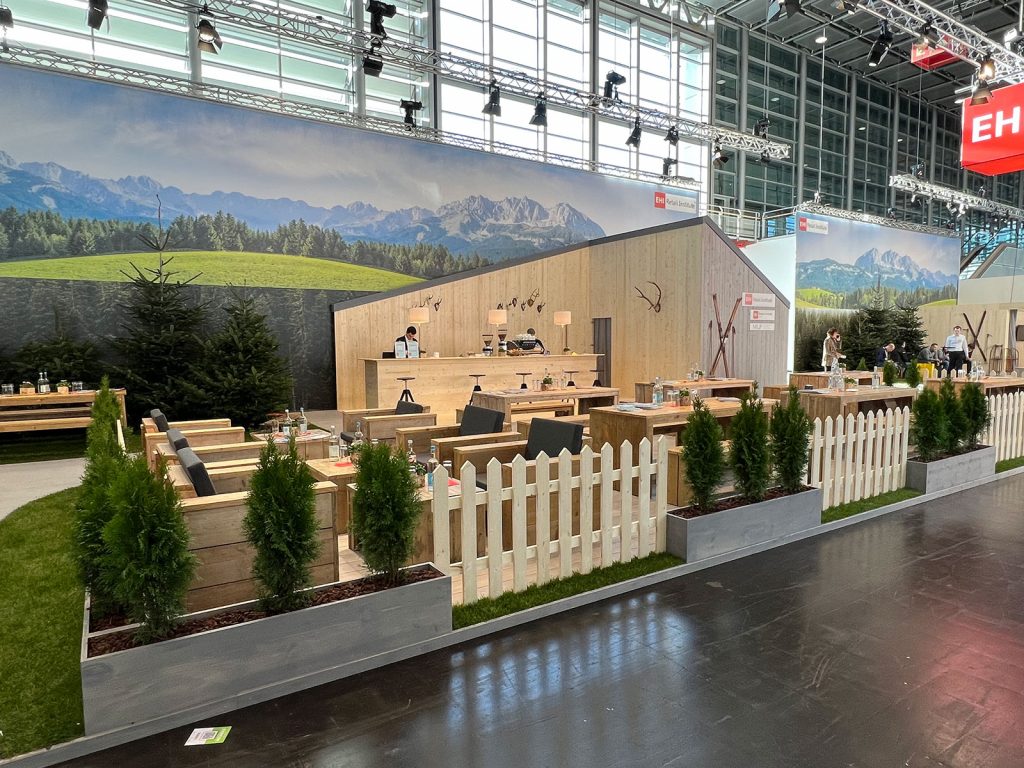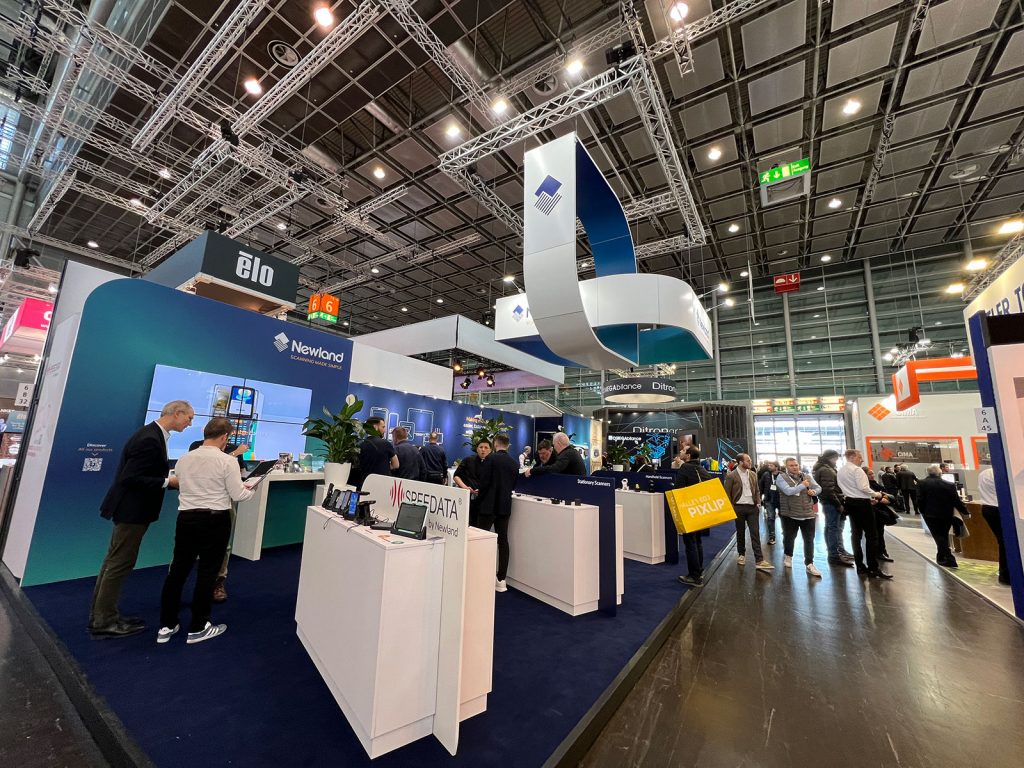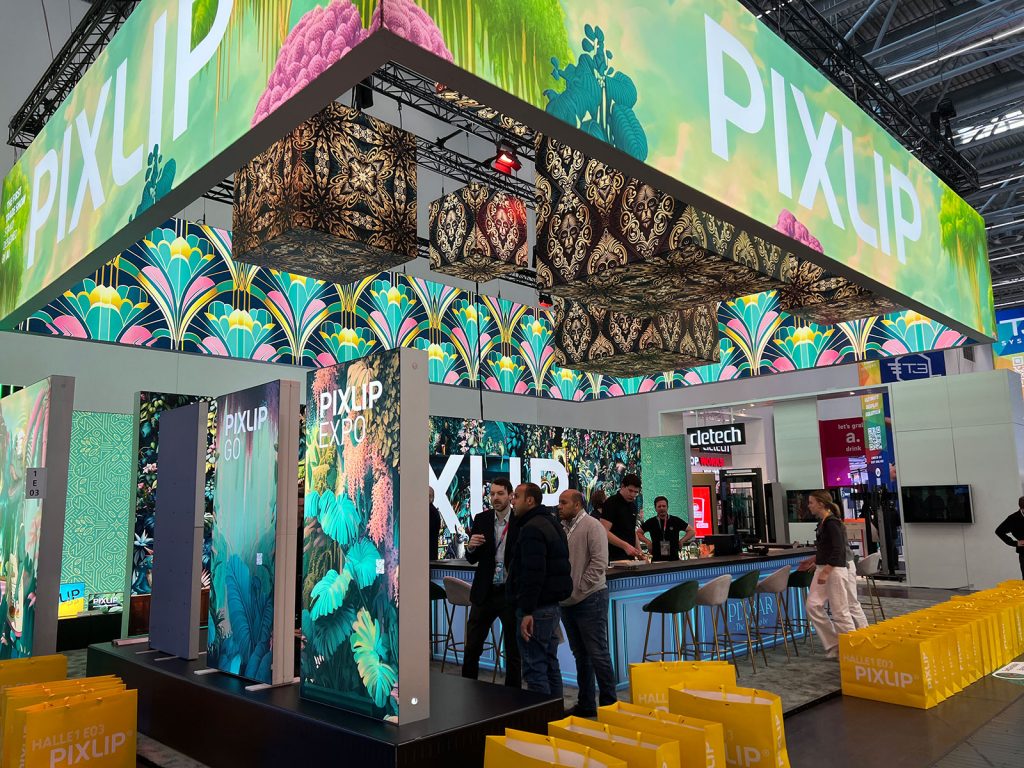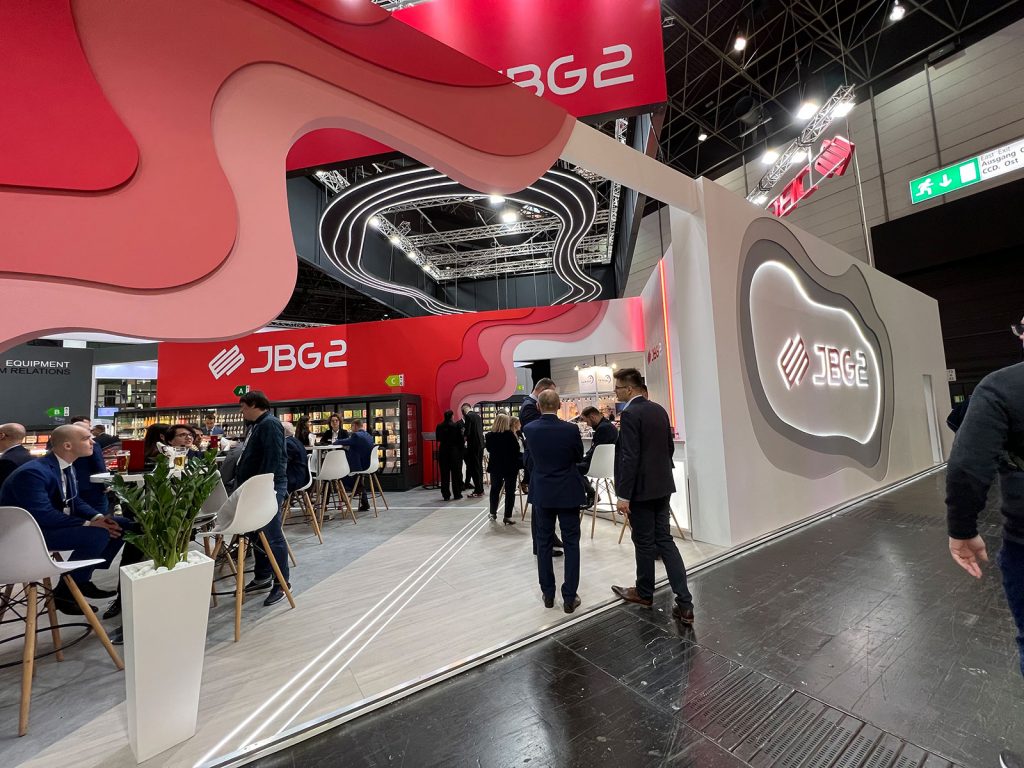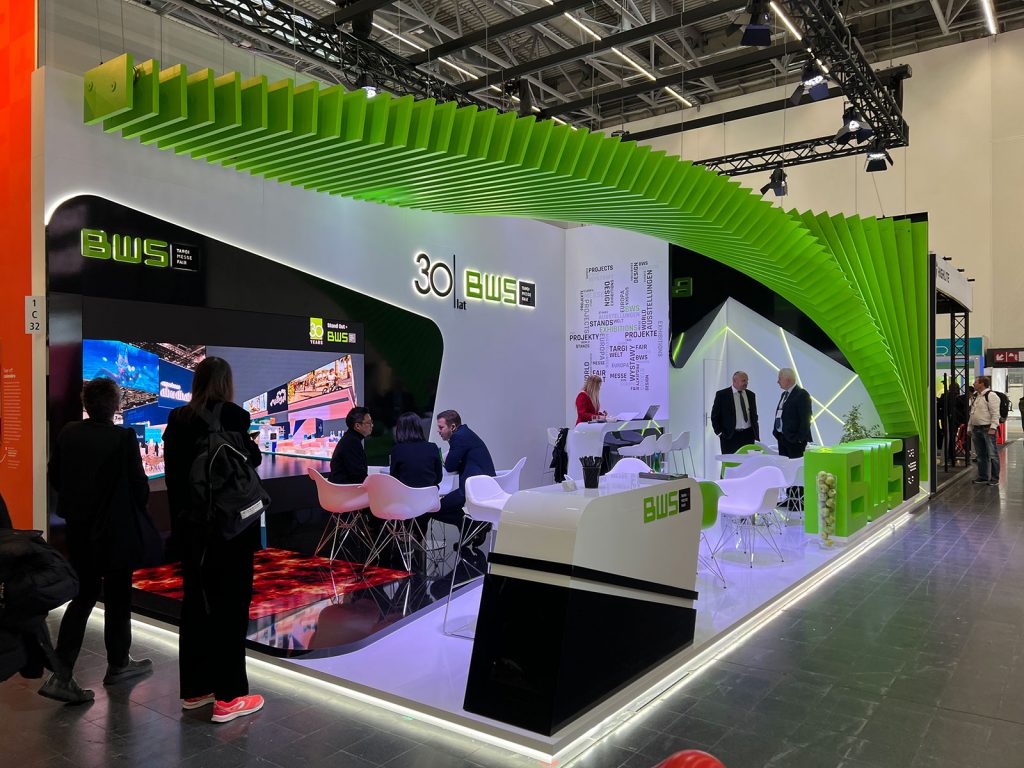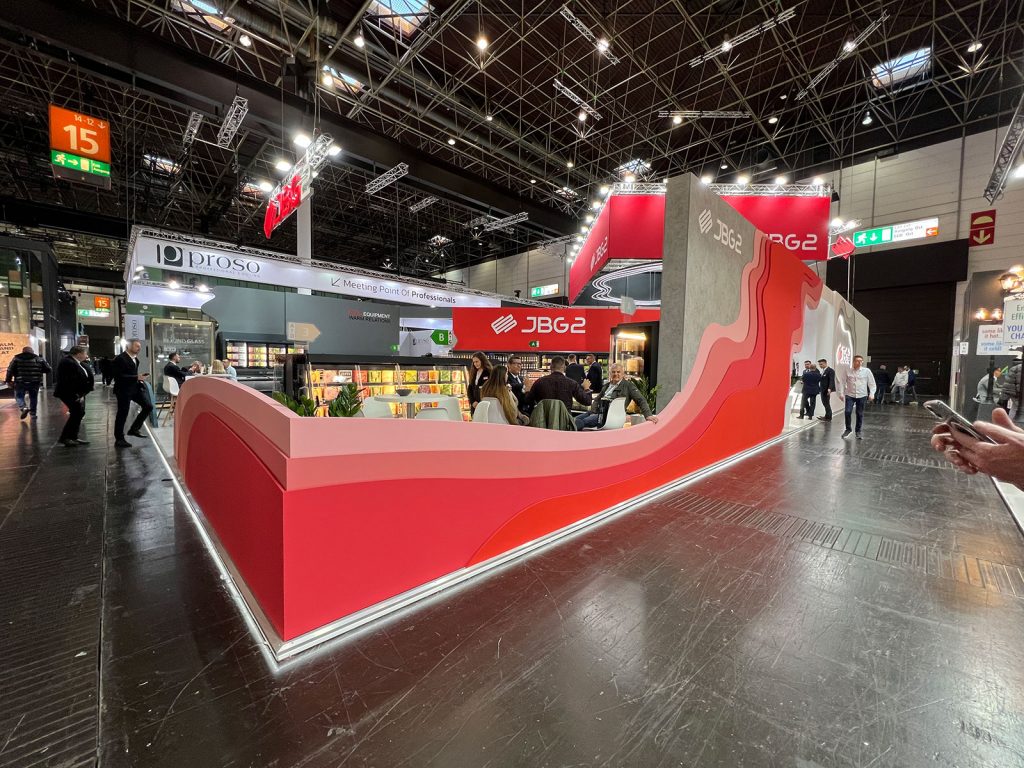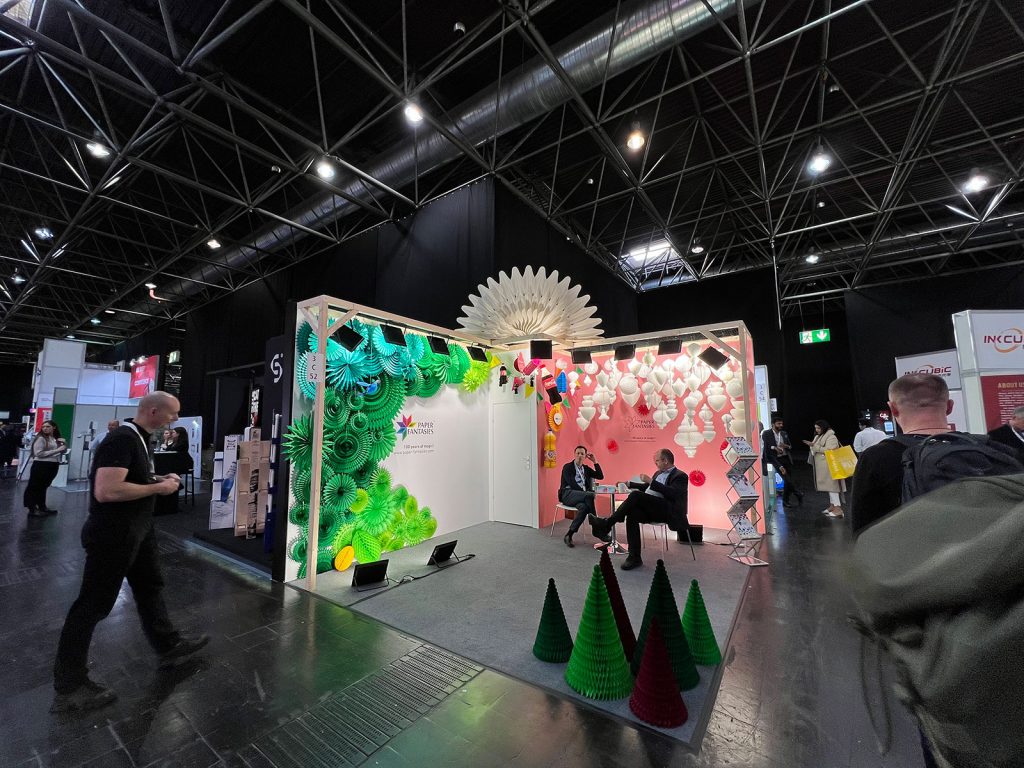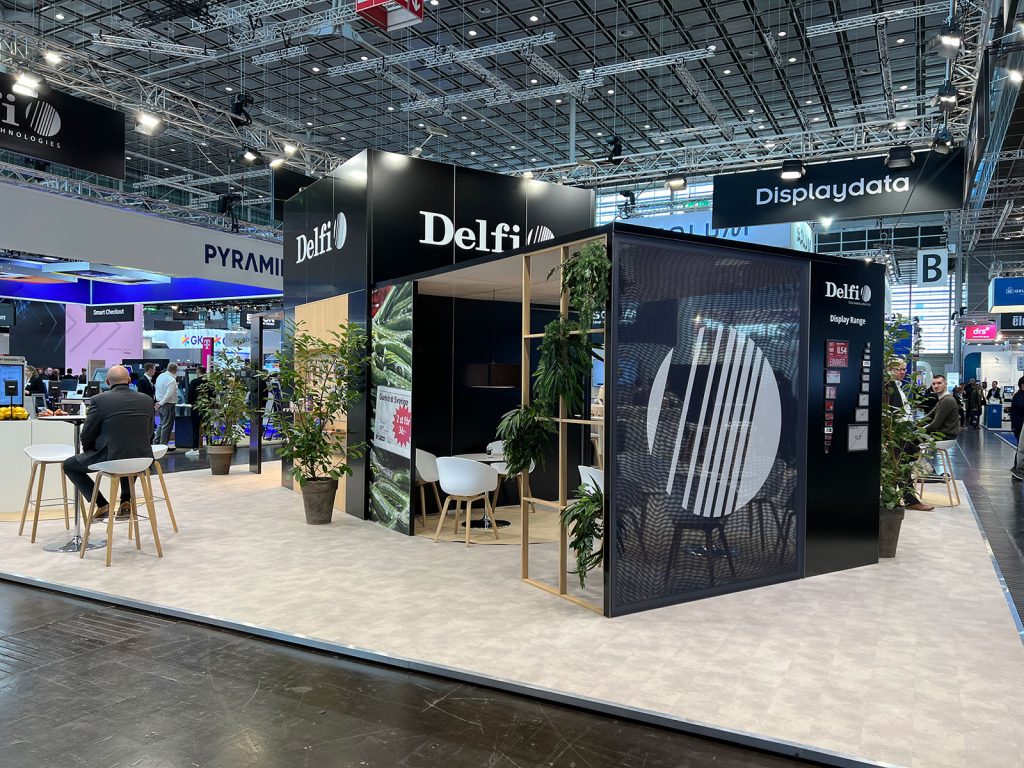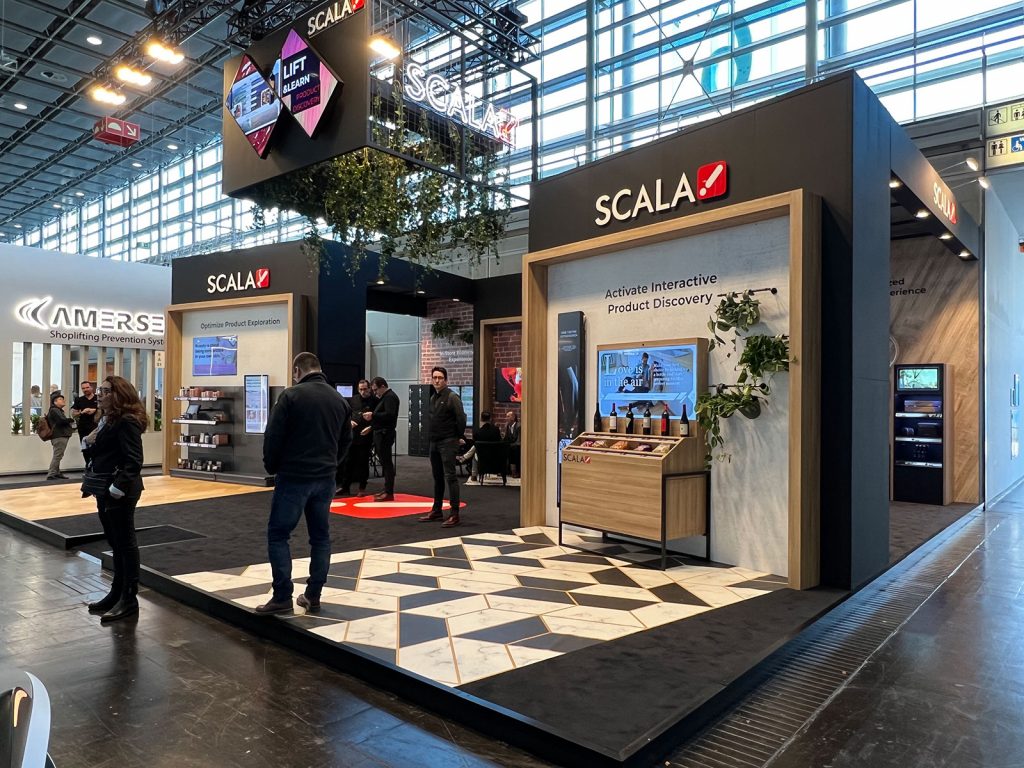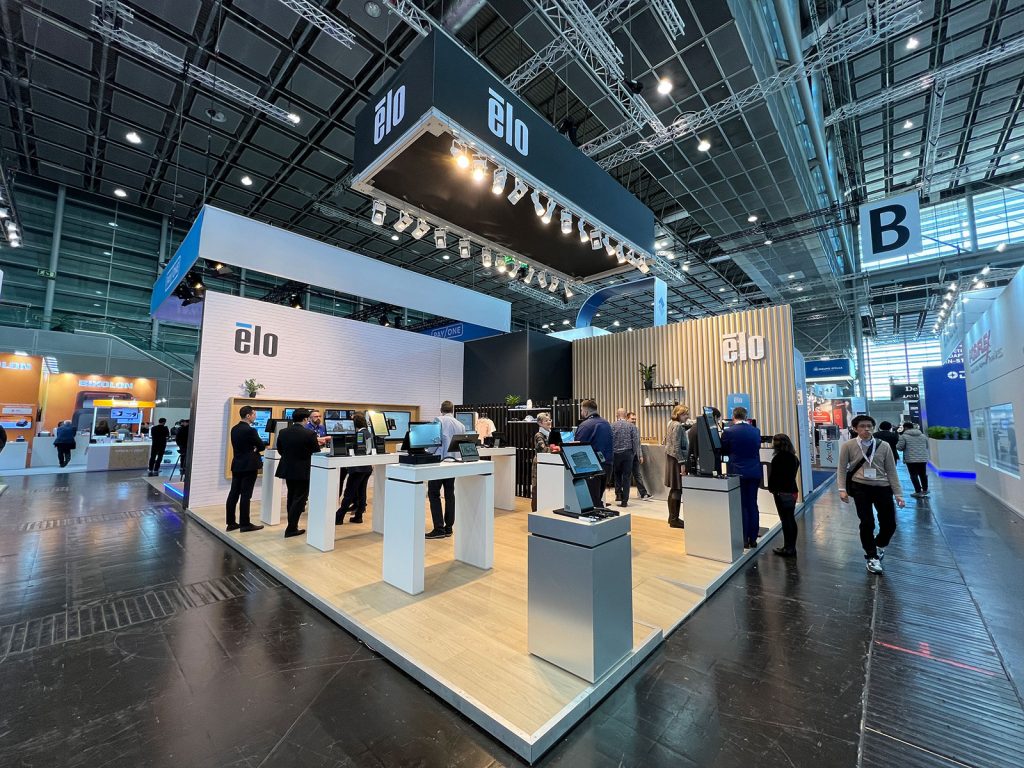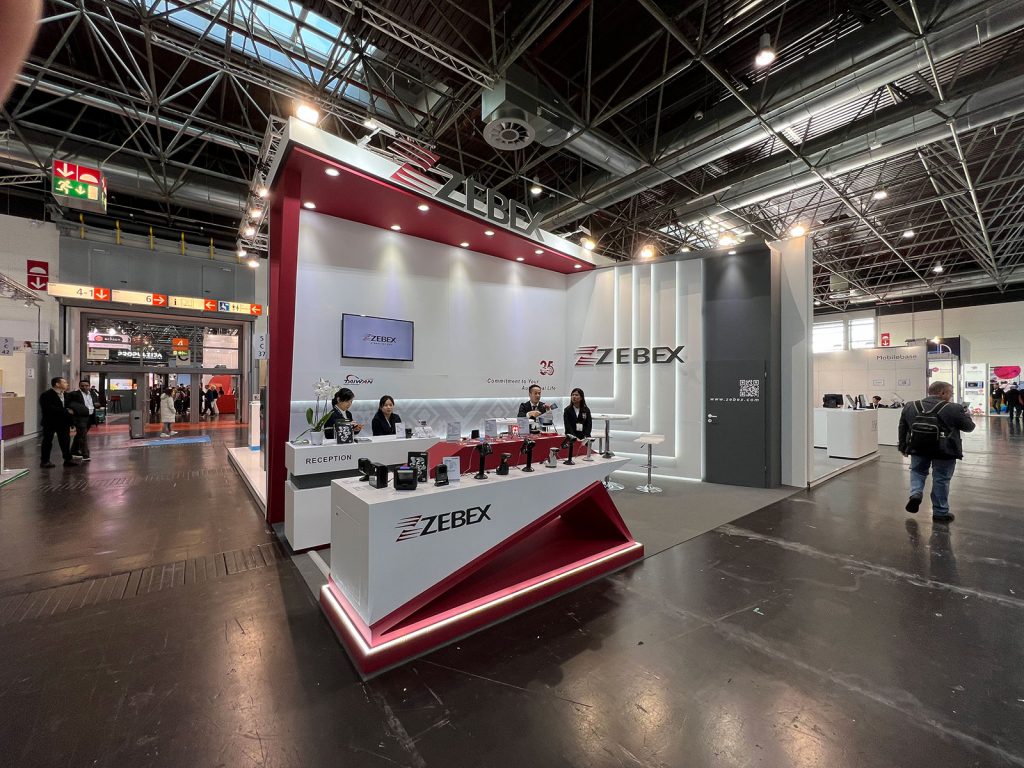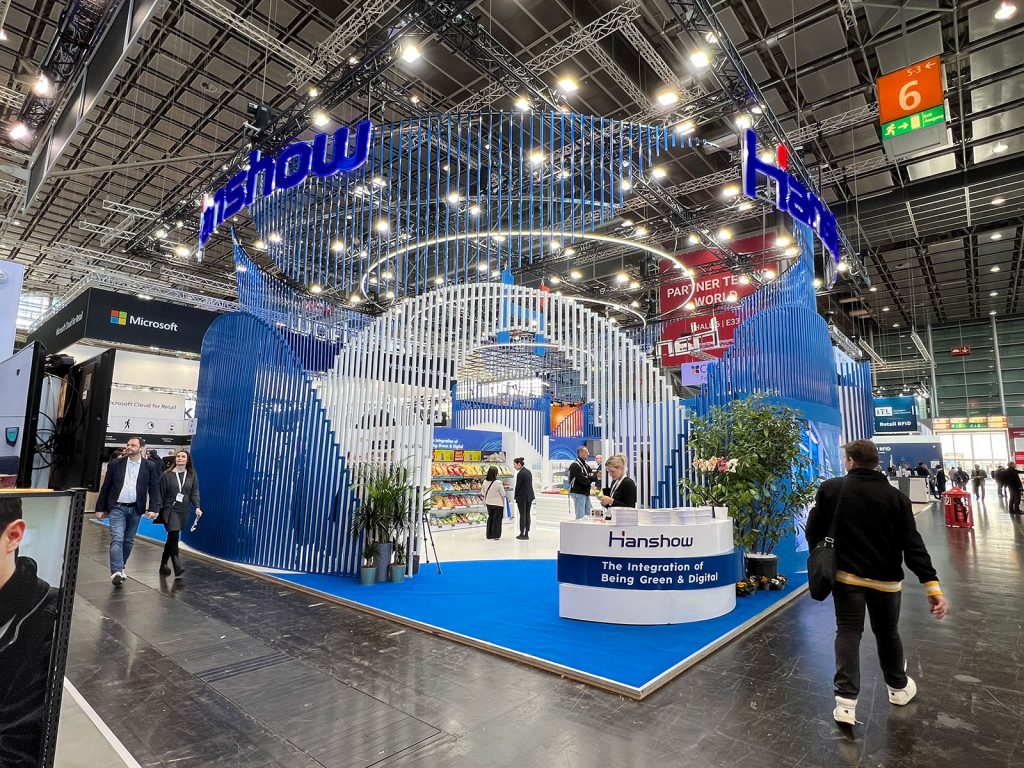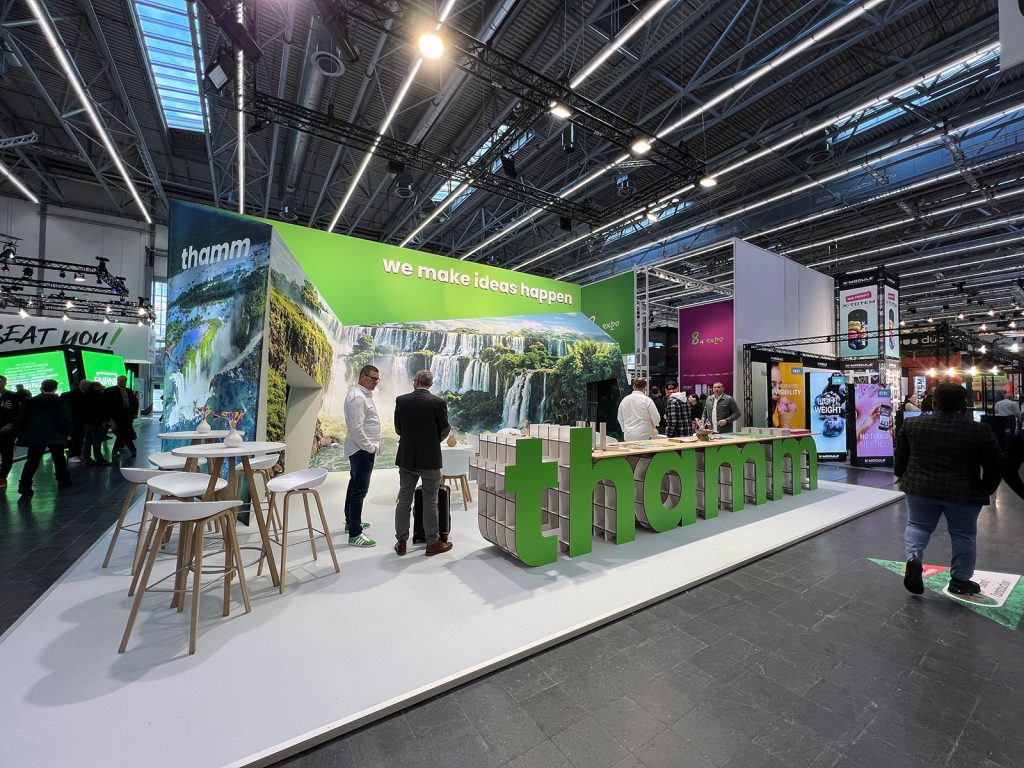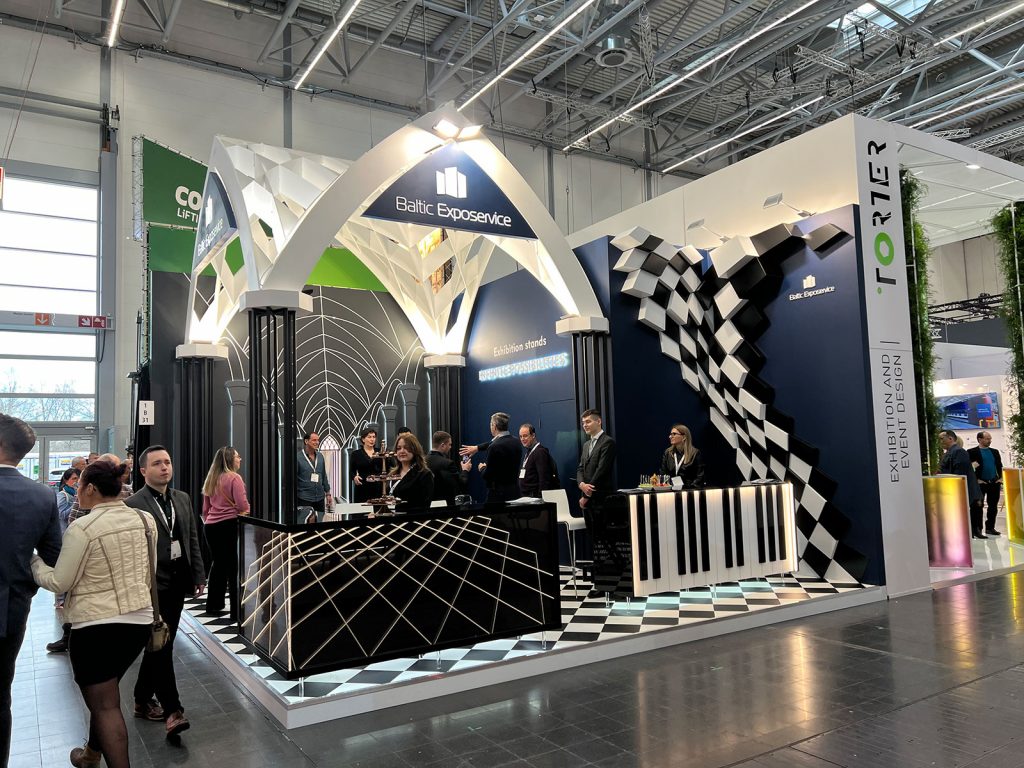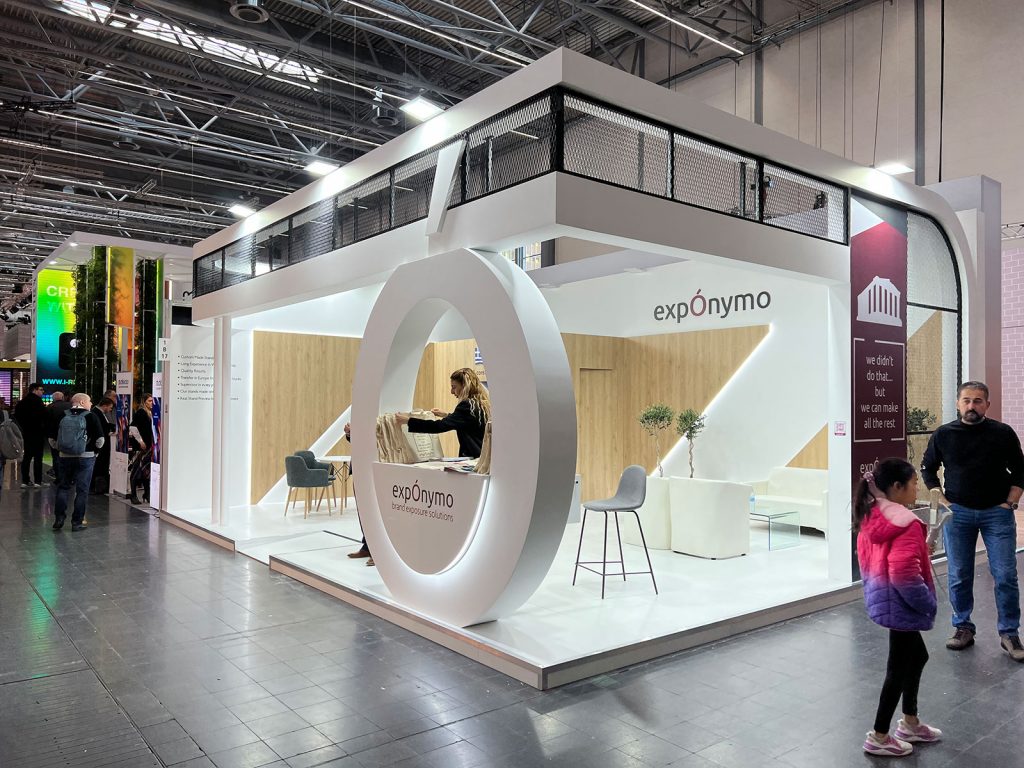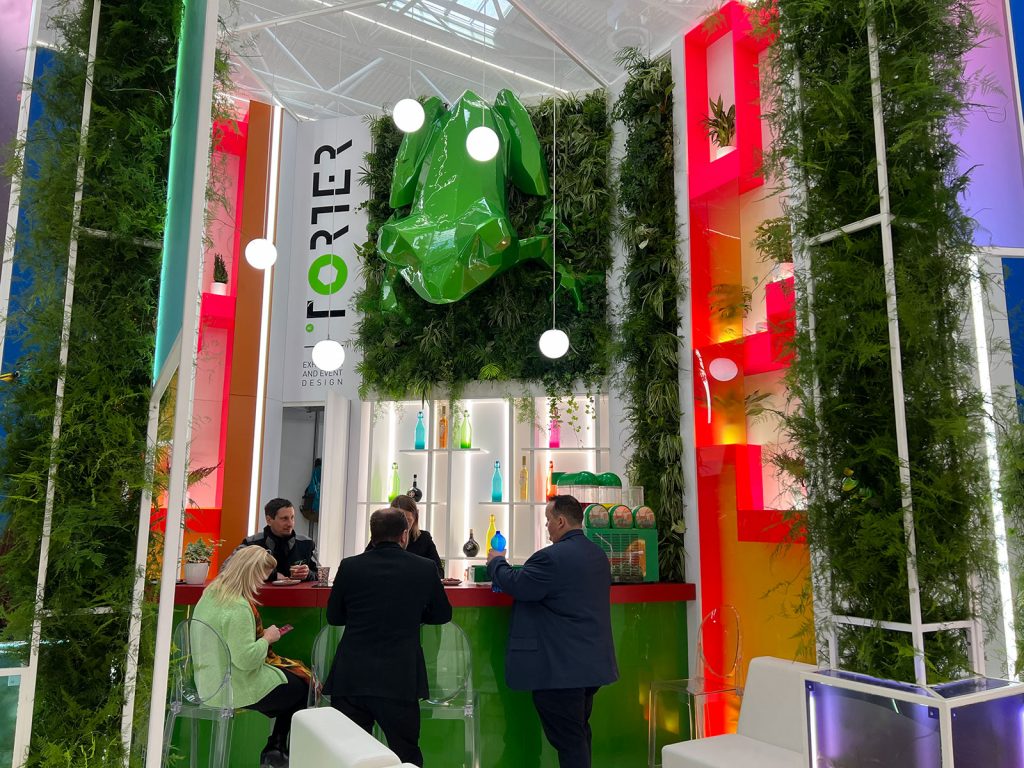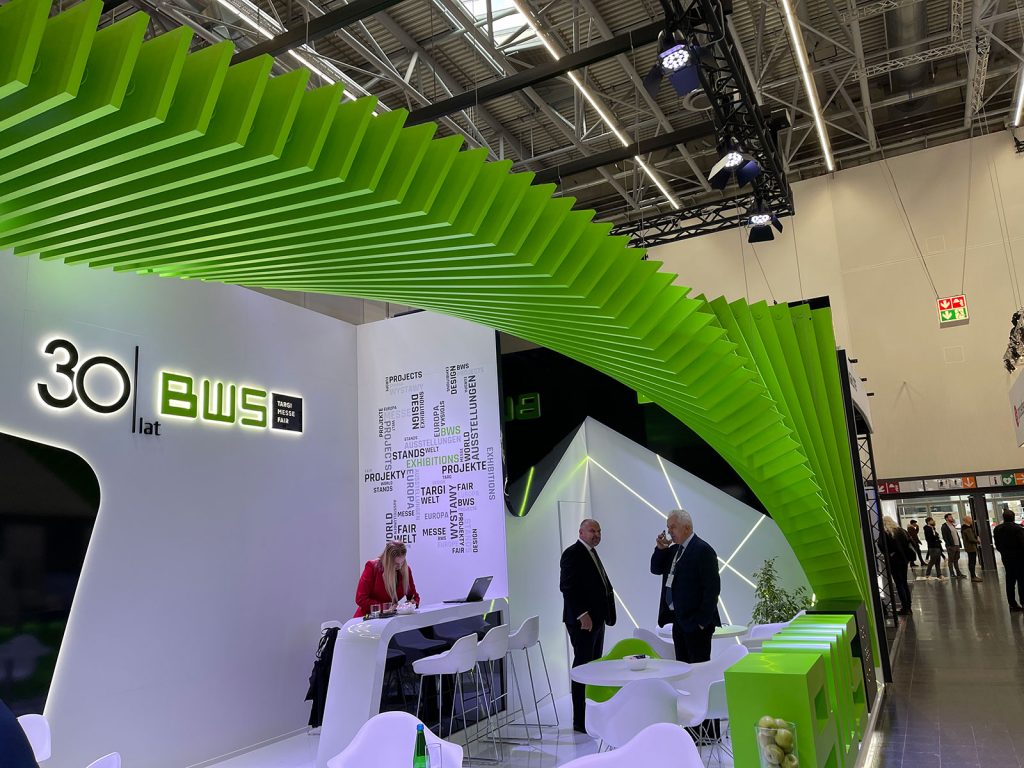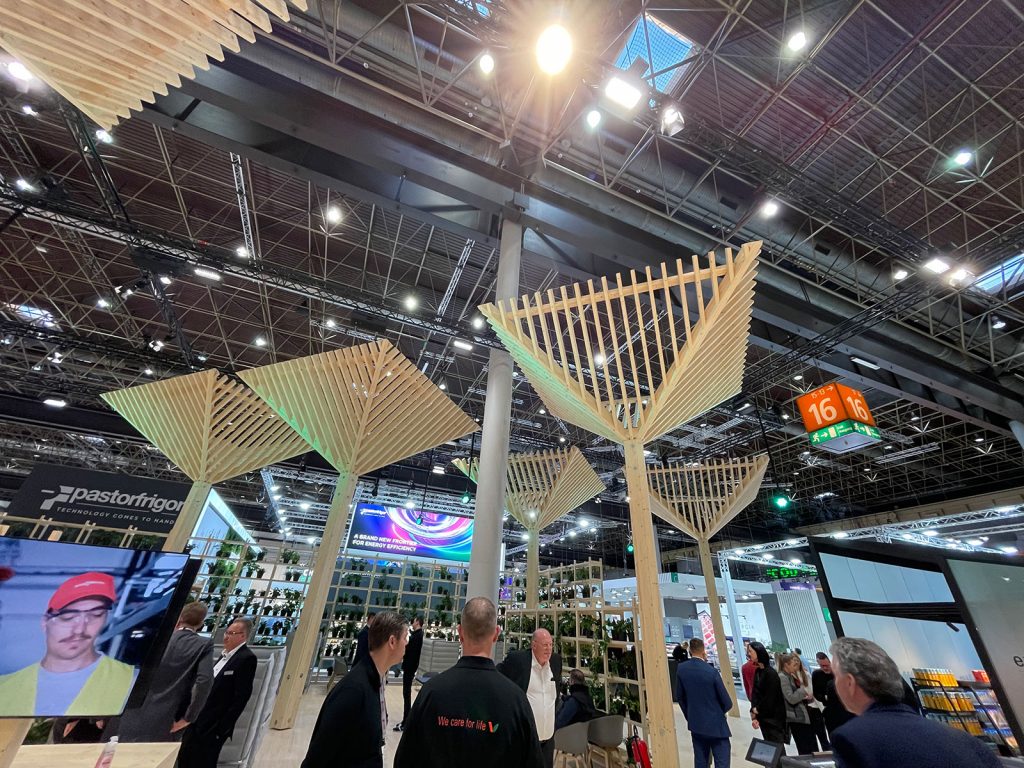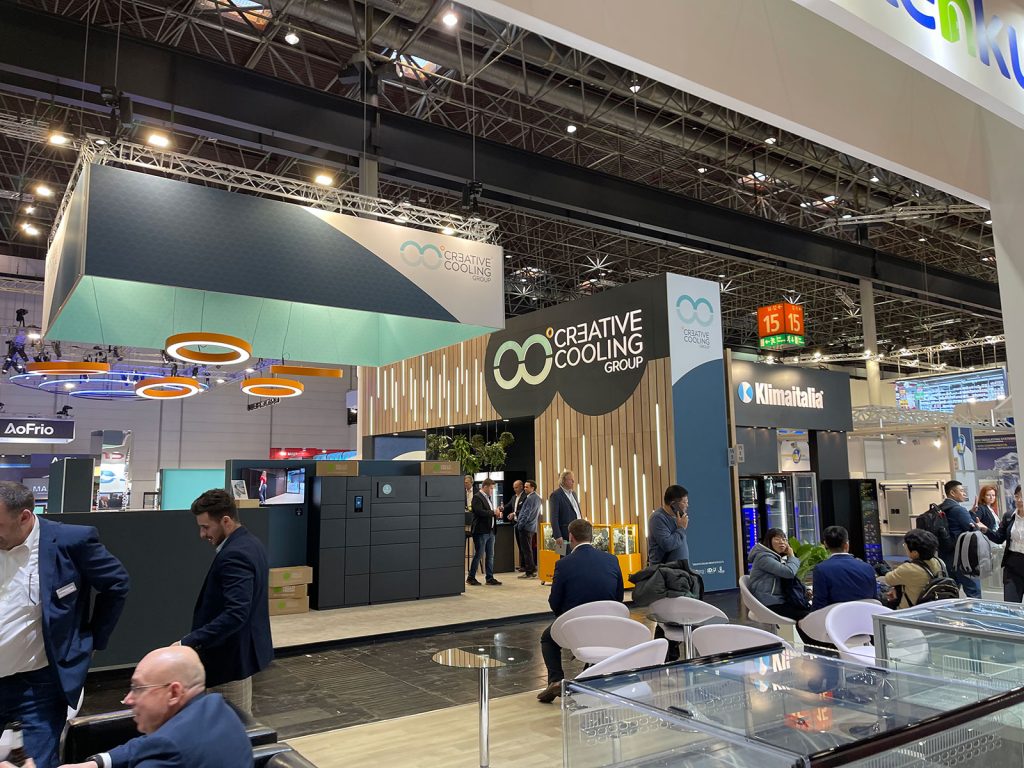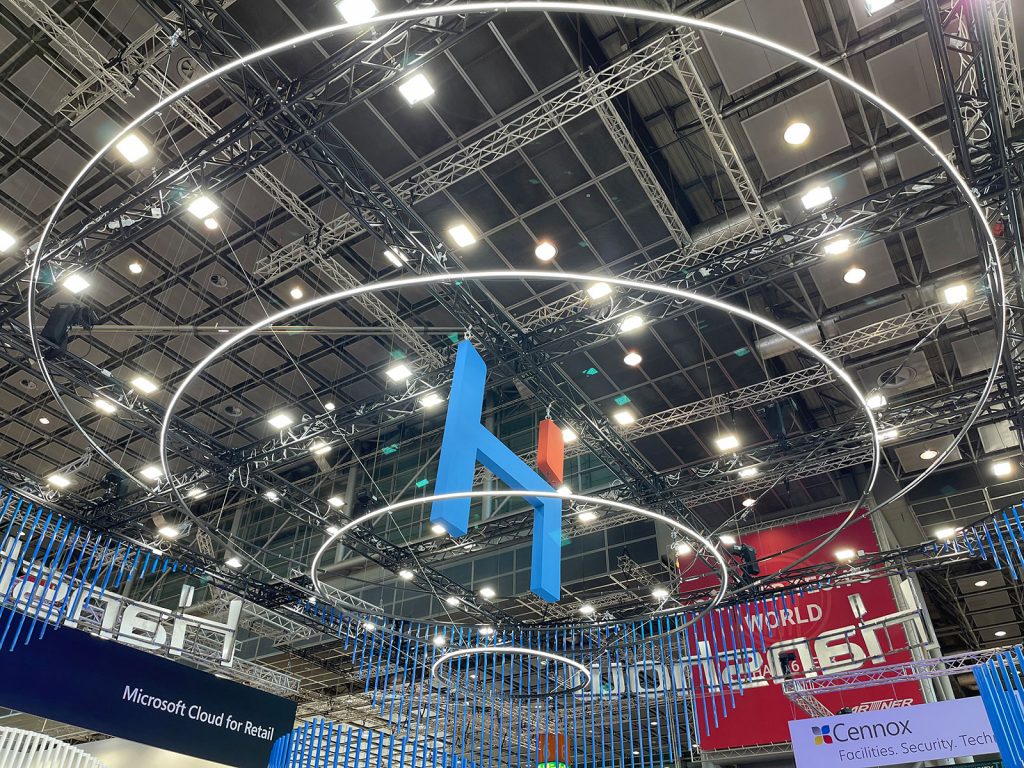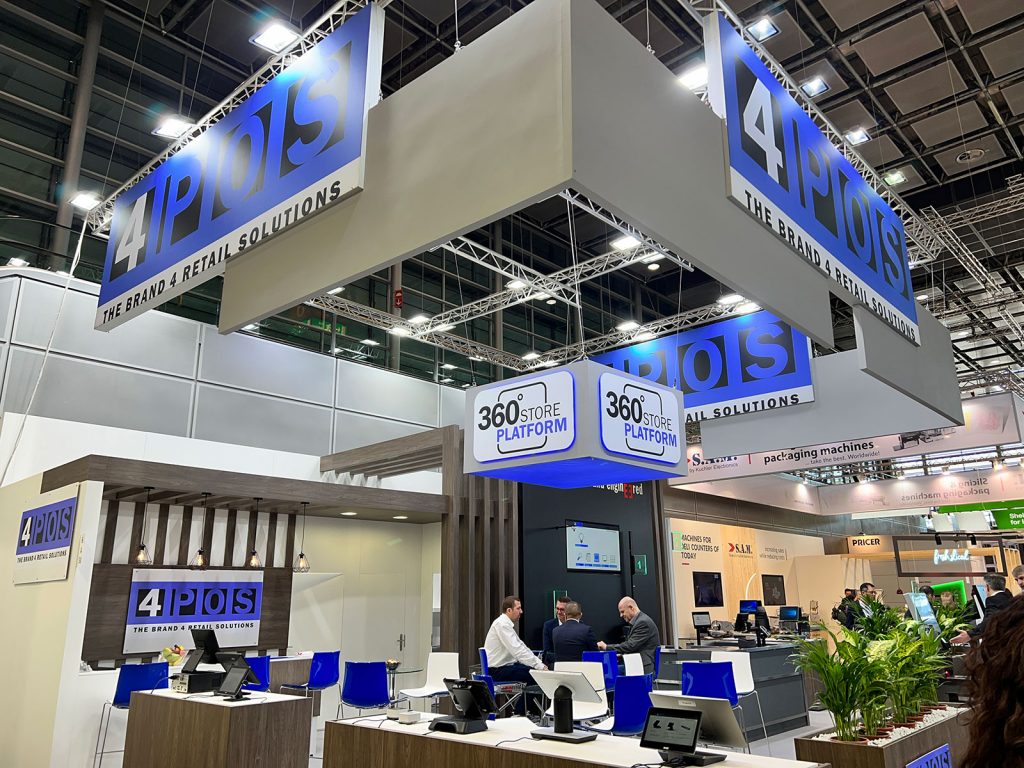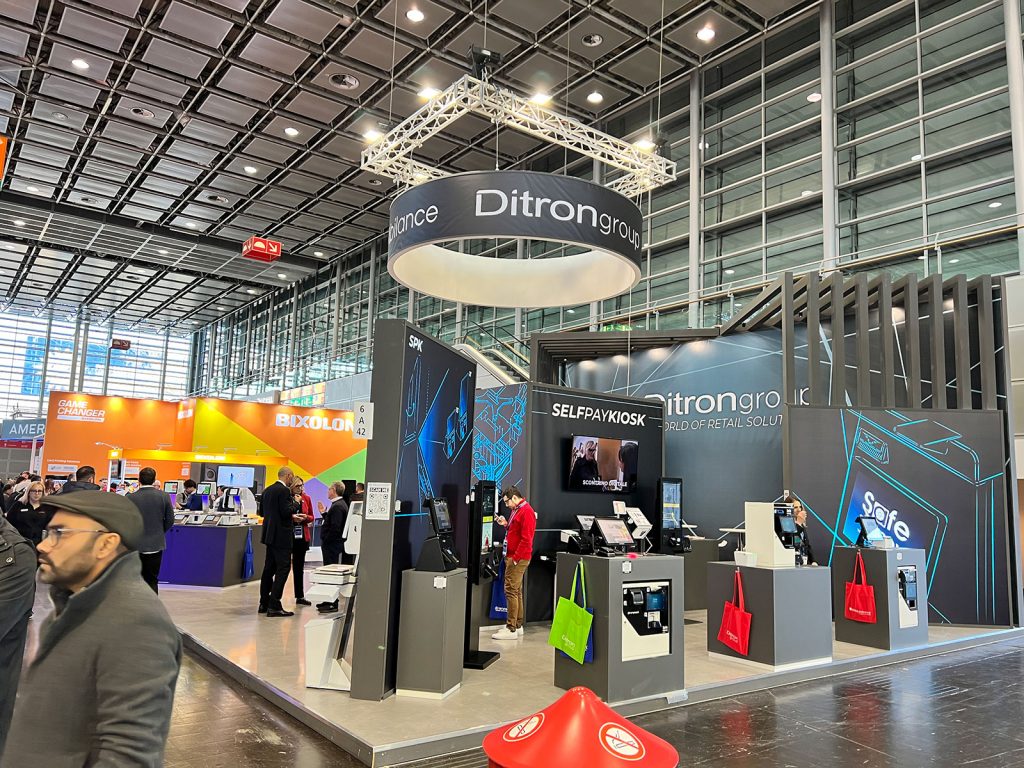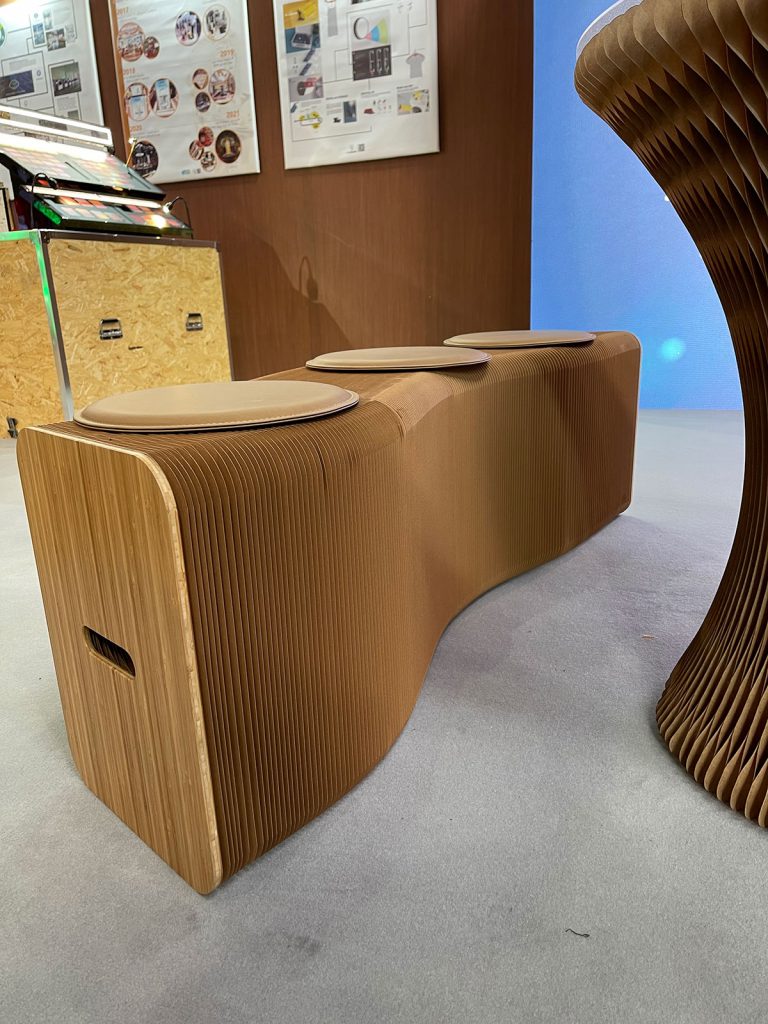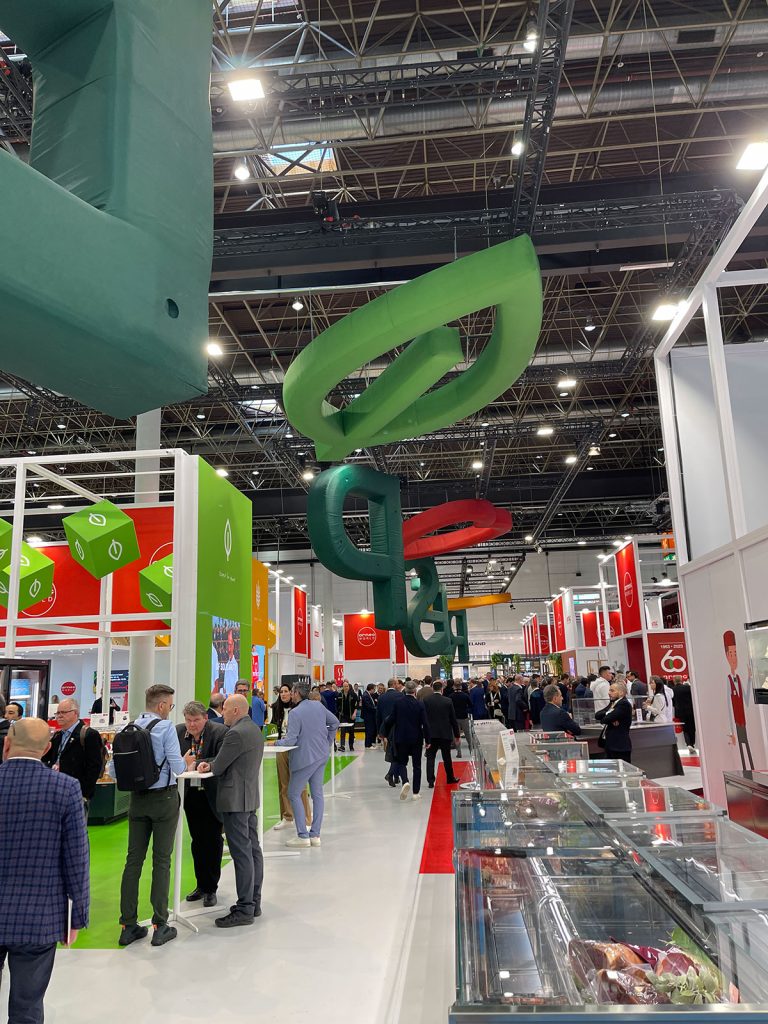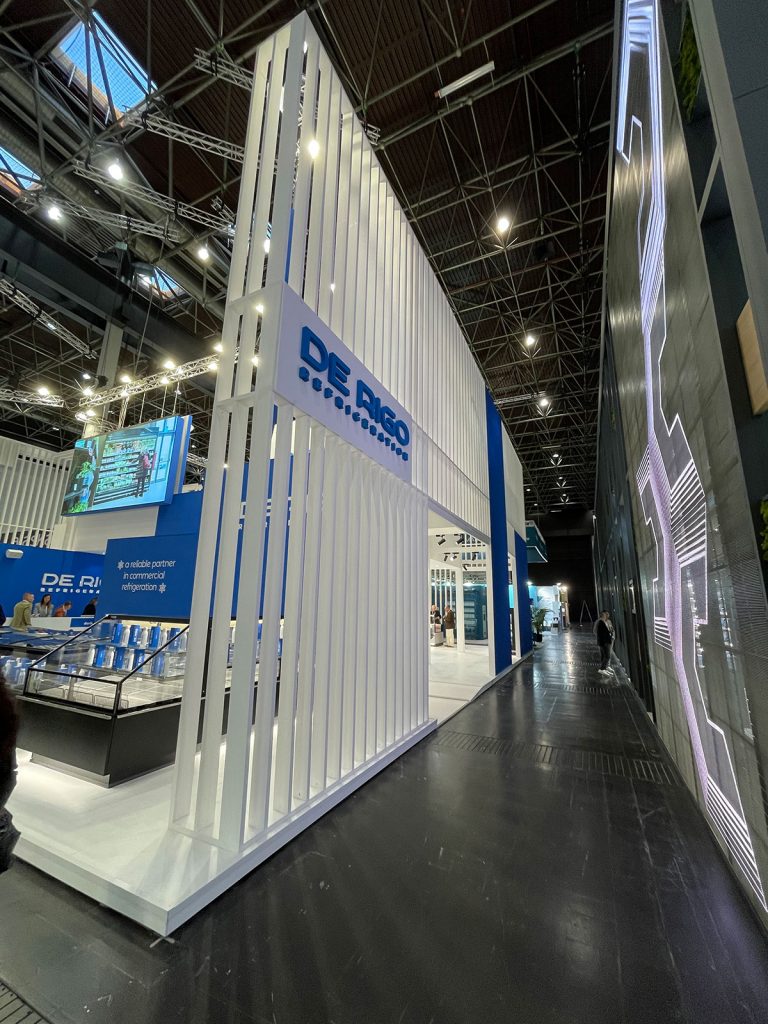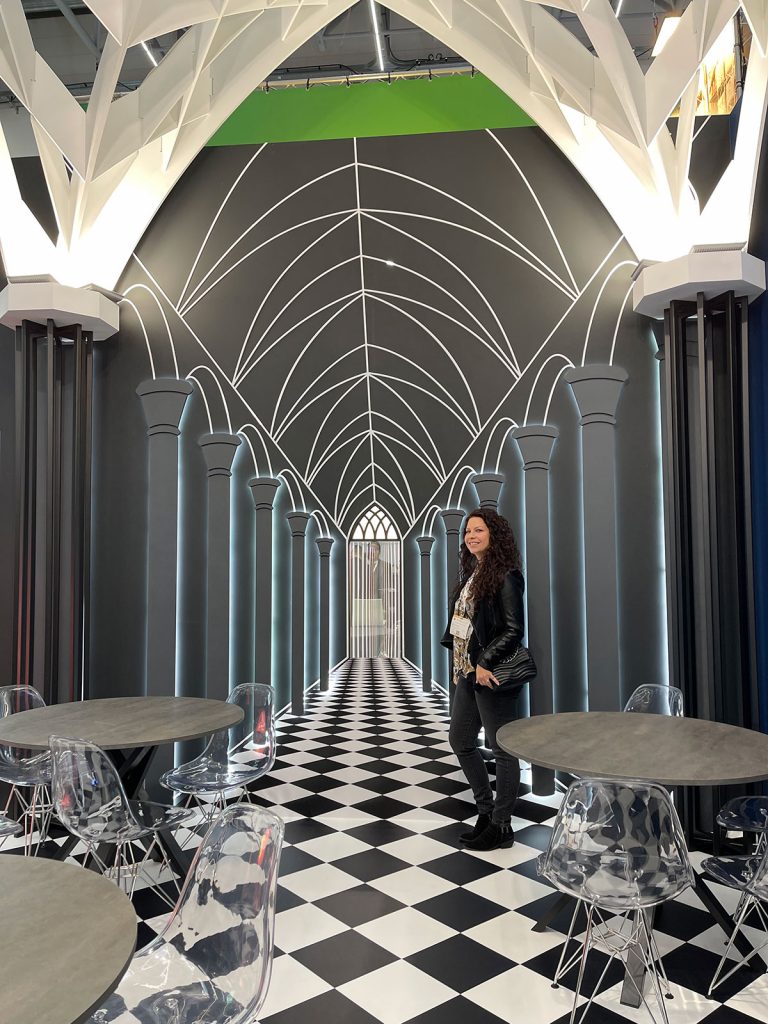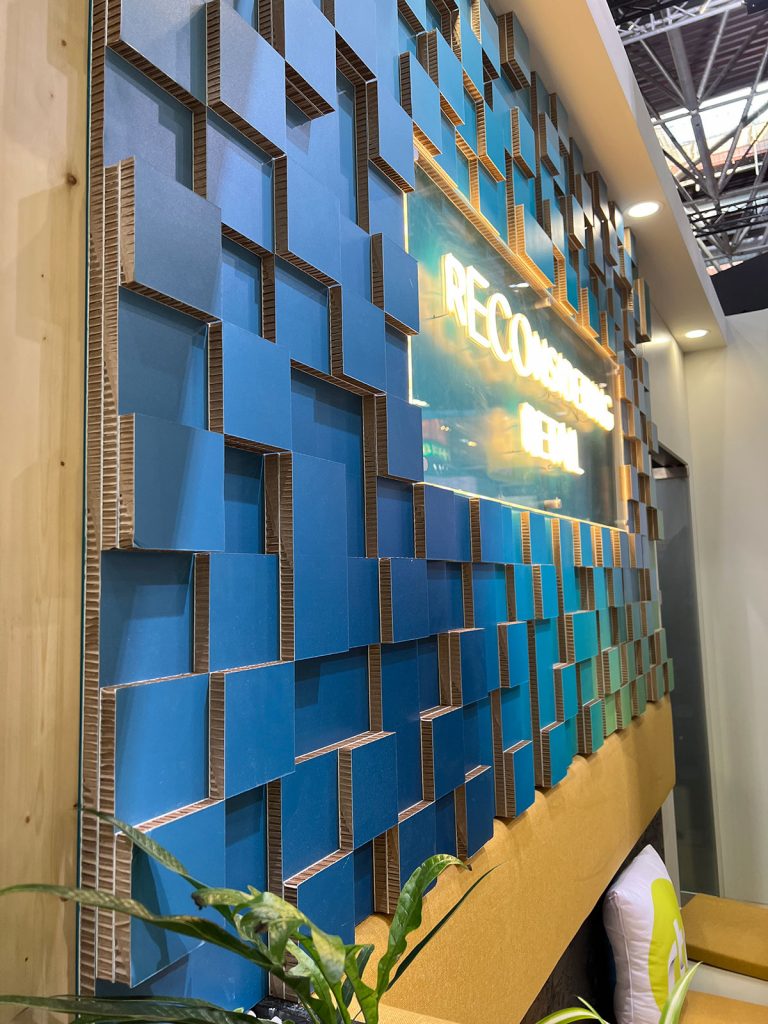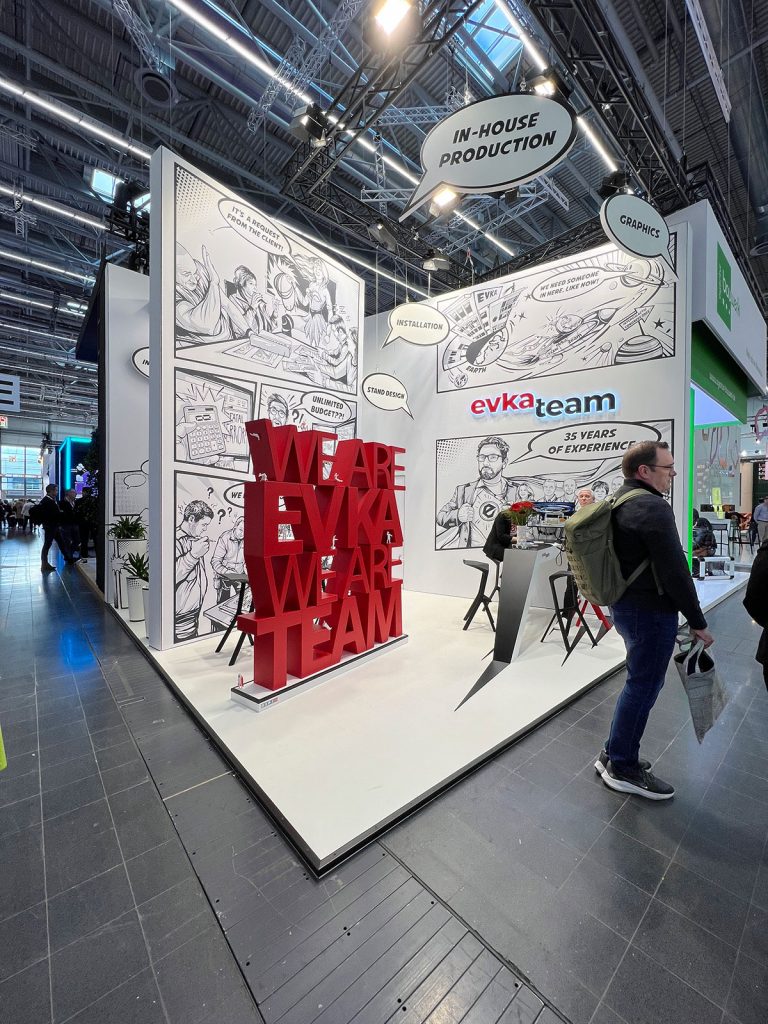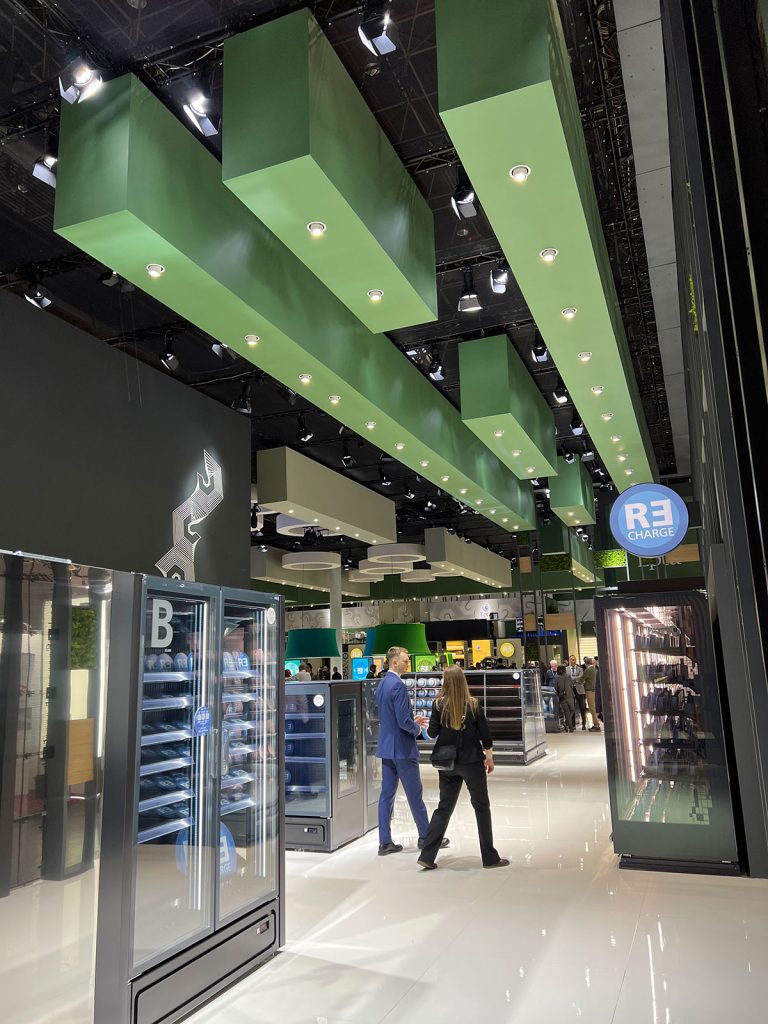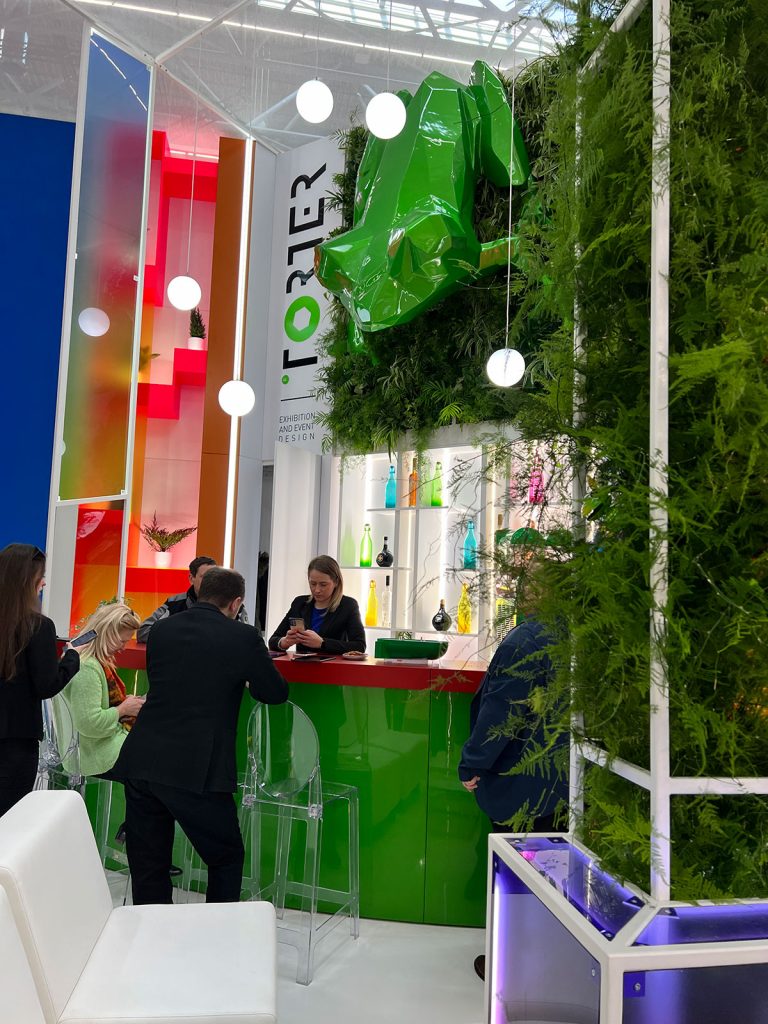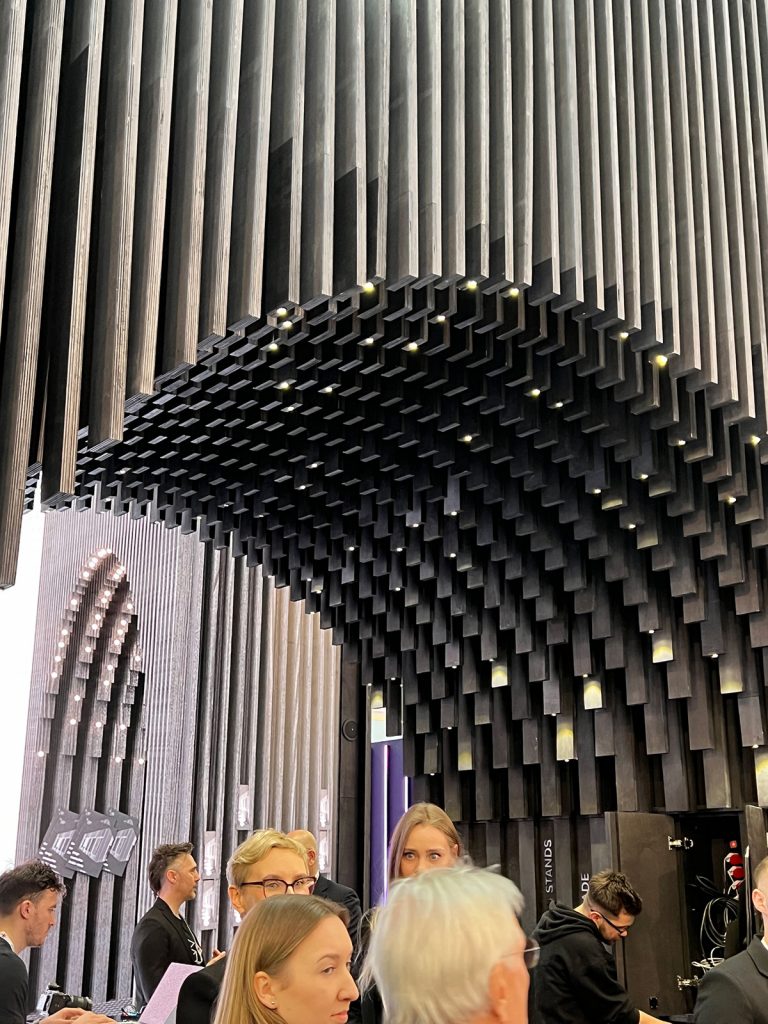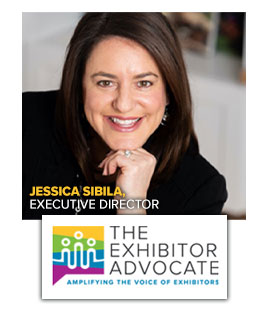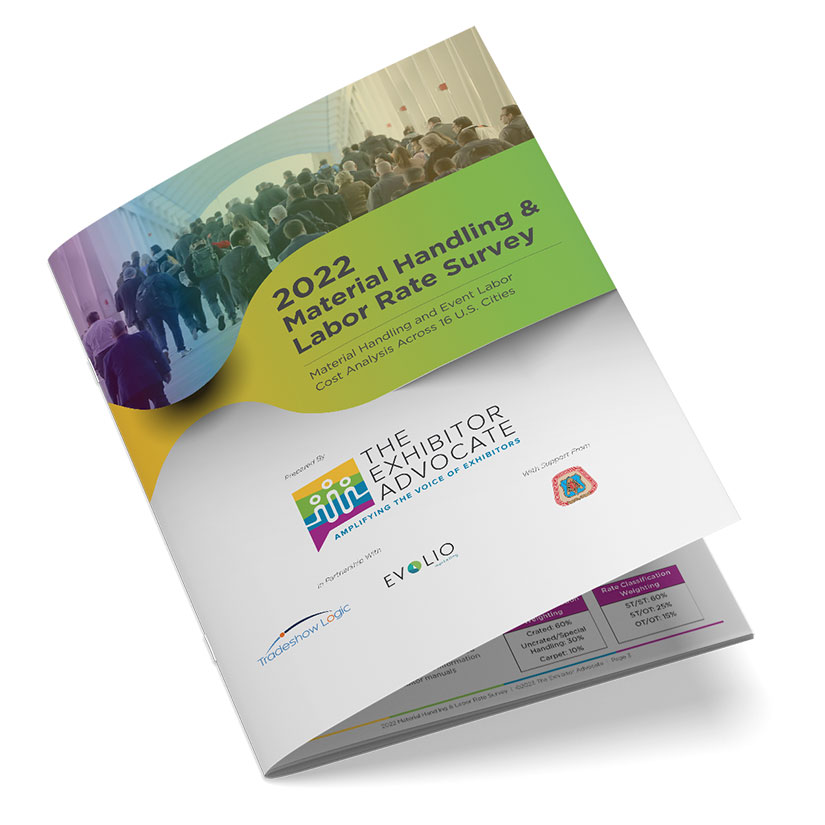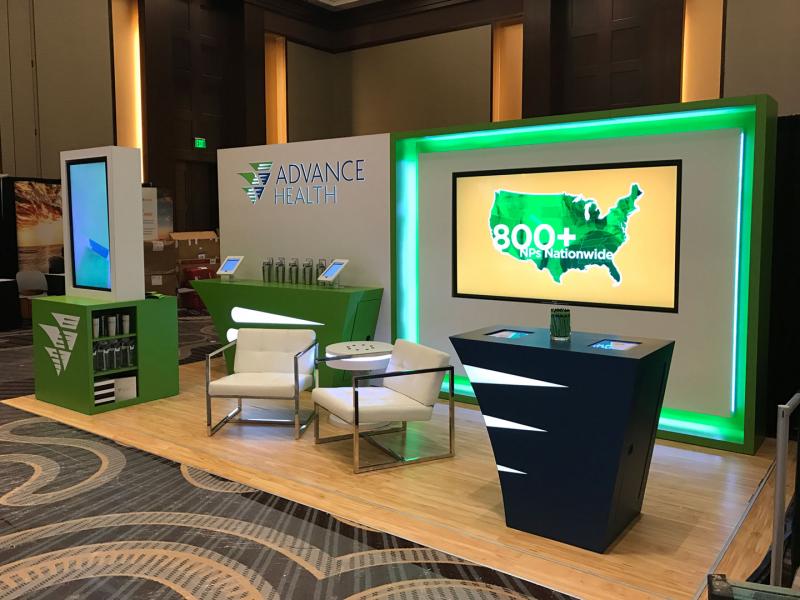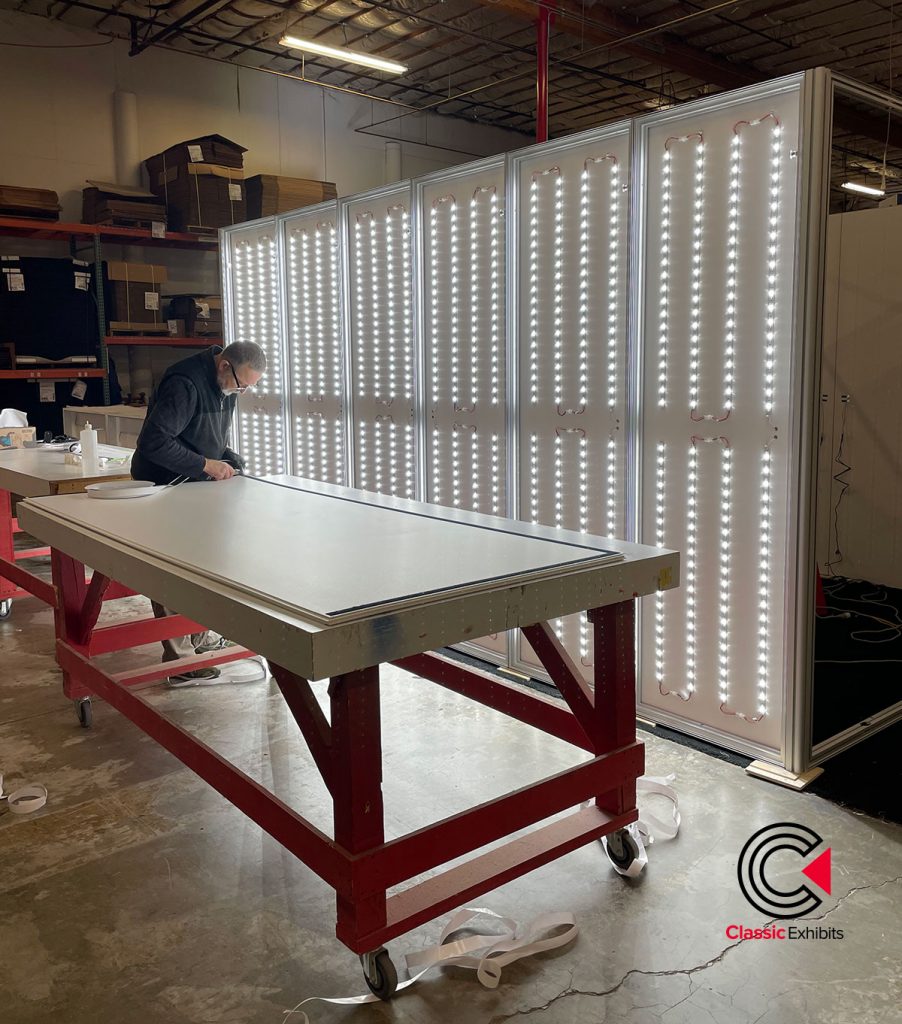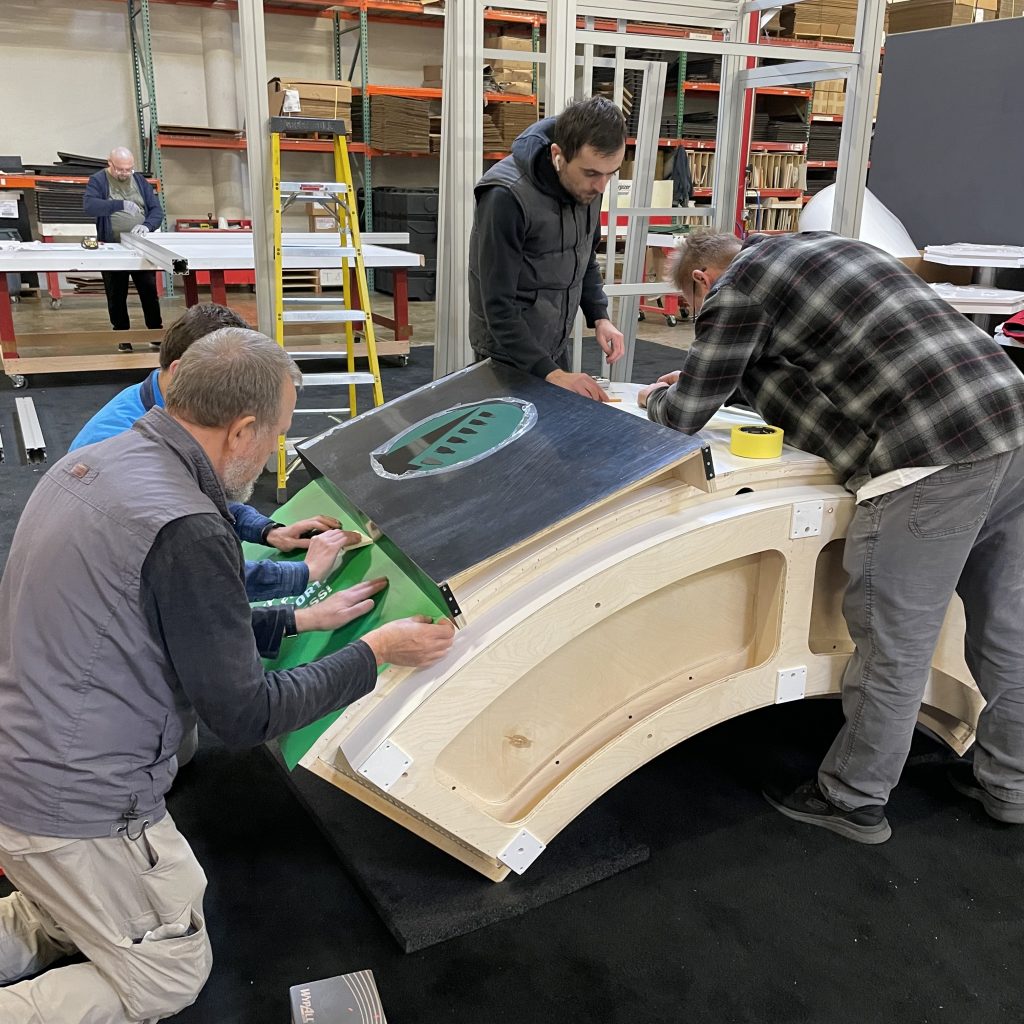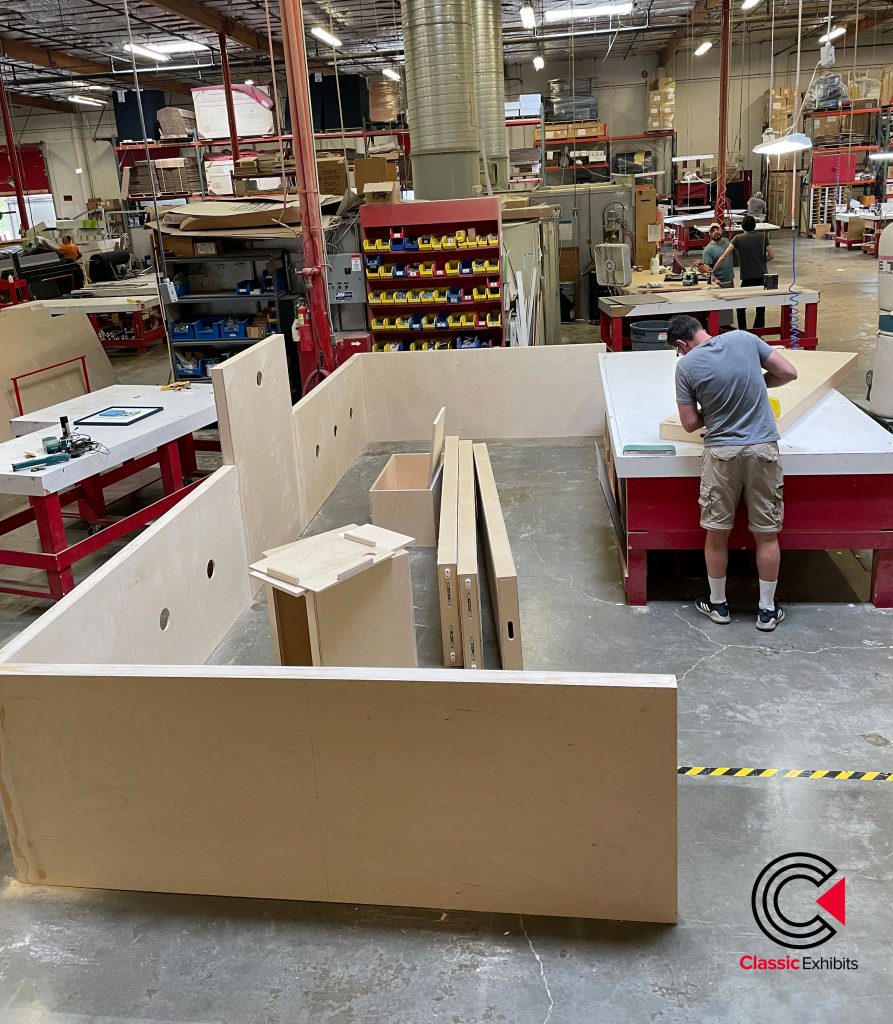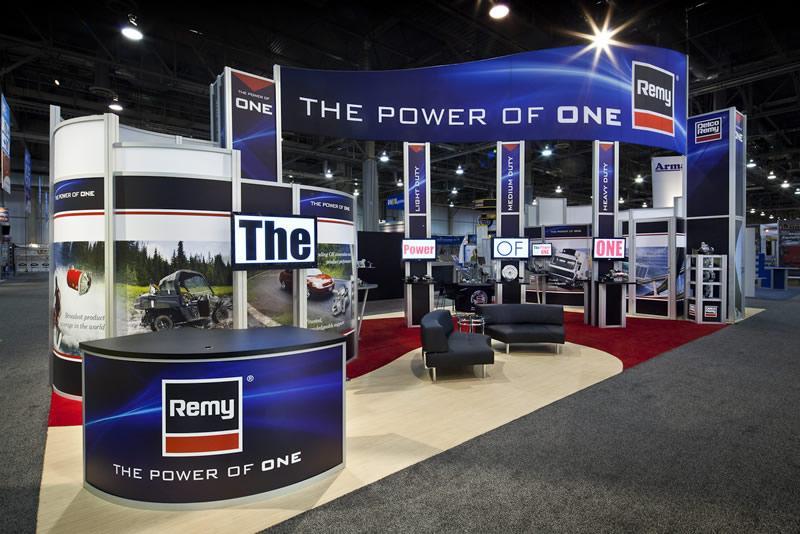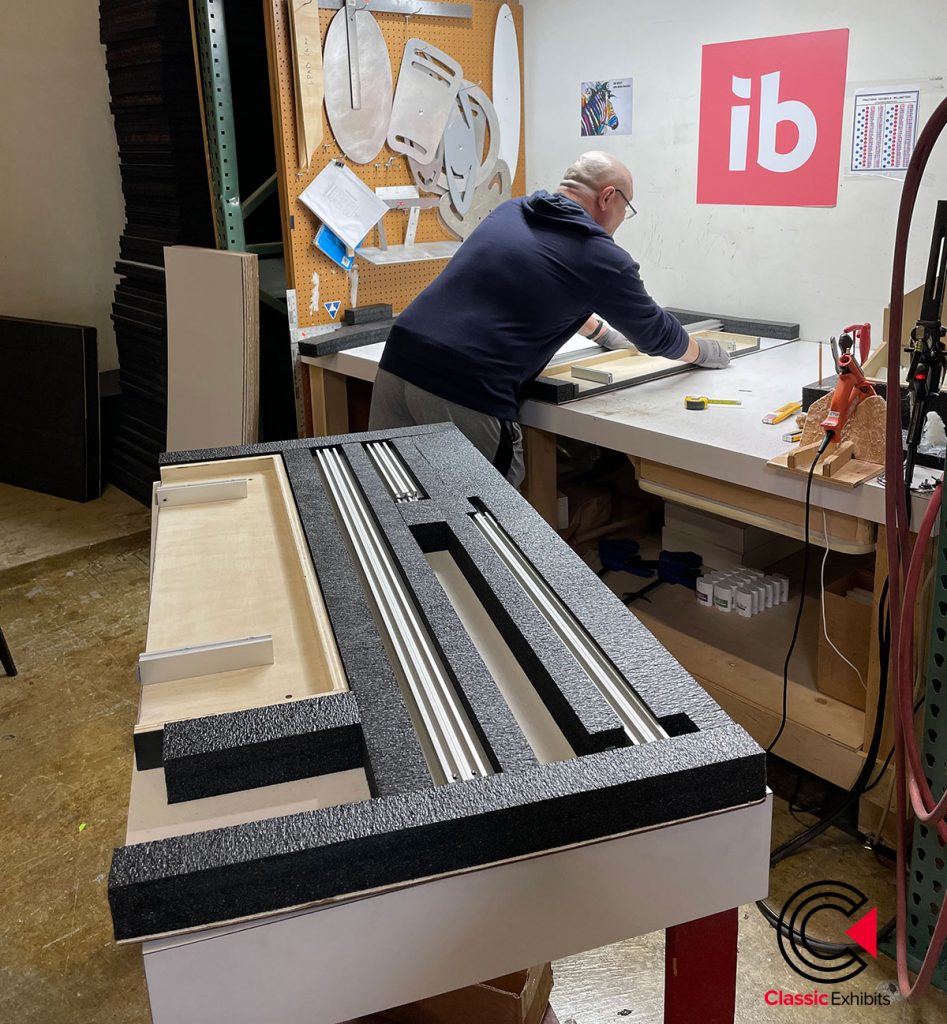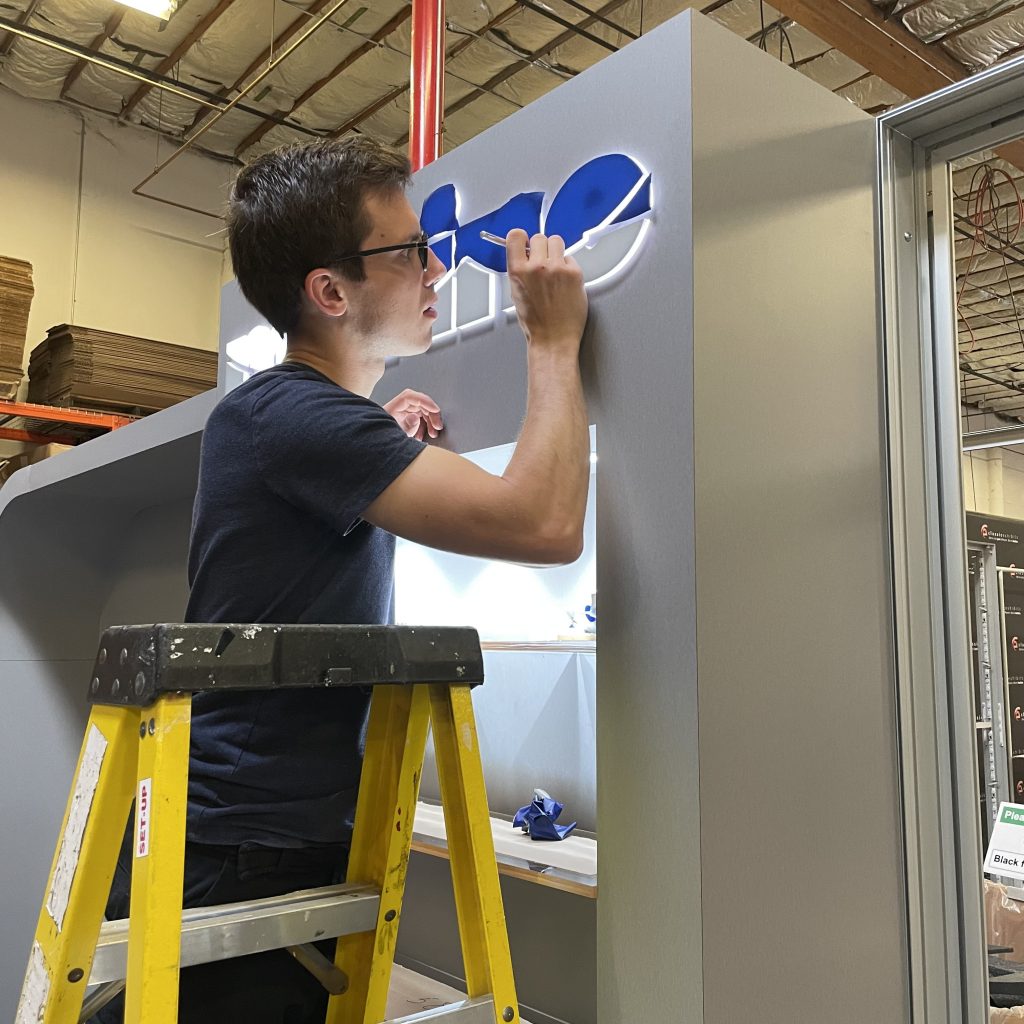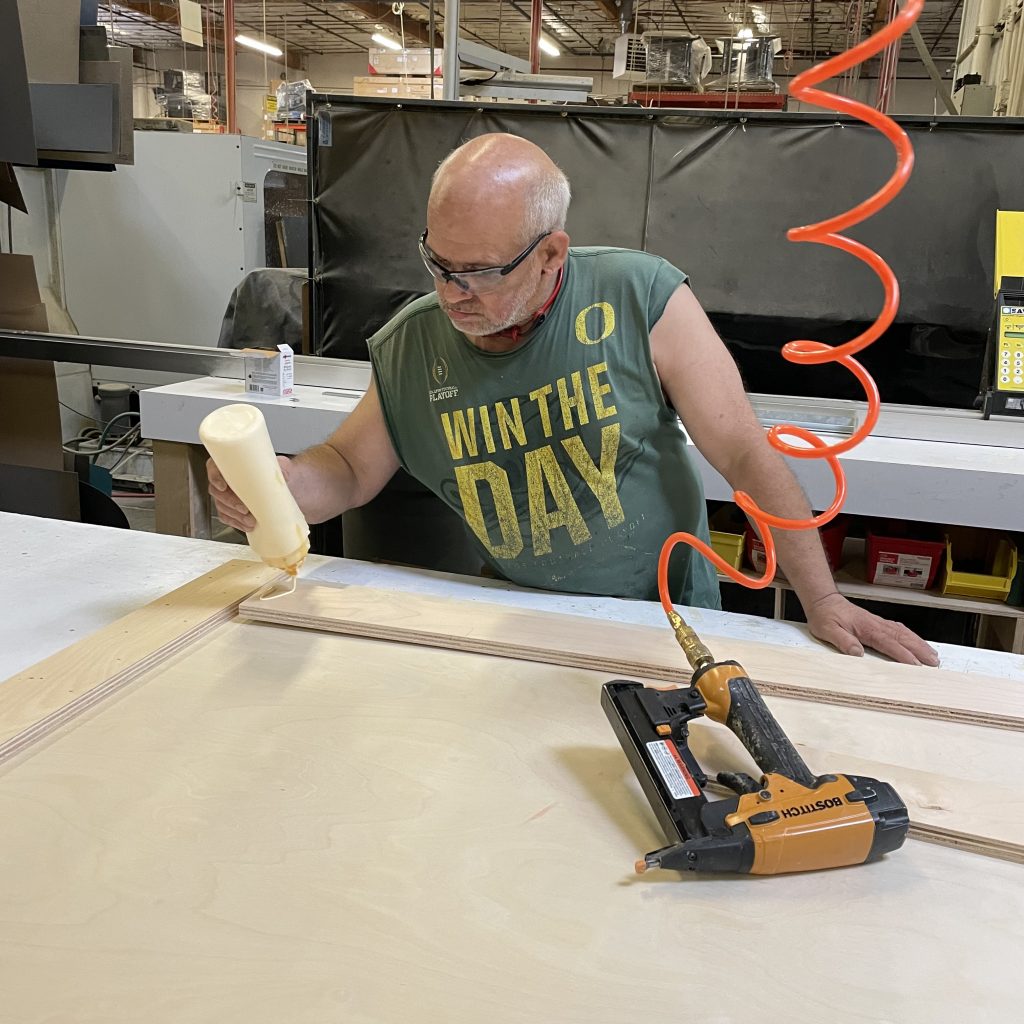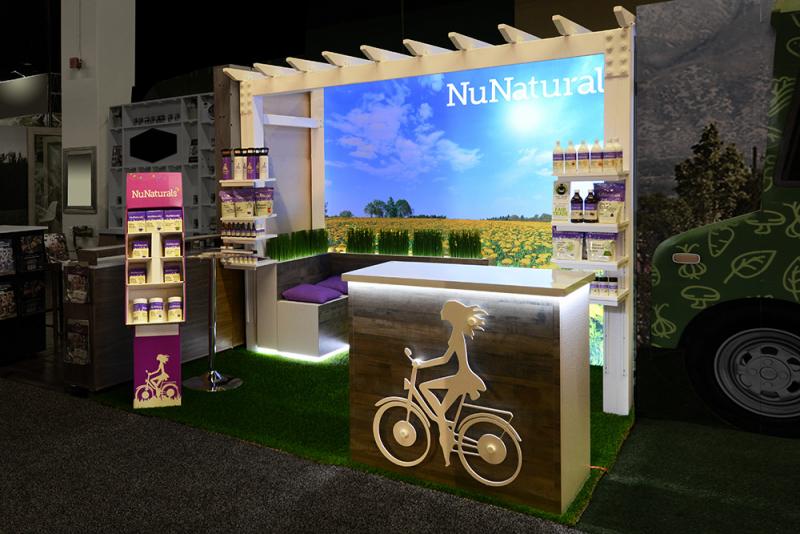Pop up displays are a fantastic approach to trade show marketing. With new technology, pop up displays have reinvented themselves time and time again and absolutely worth considering for your next trade show.
Today’s Pop Up Display Market
Many customers ignore the features and benefits of pop up displays. They are shopping exclusively on price; they want it to last a few shows and are less concerned about the unique advantages or warranty of a pop up. But they should. Good pop up display systems are amazing. They are versatile, portable, durable, and offer remarkable graphic impart. However . . .
The pop up, once the pride and joy of any portable trade show program, has lost its luster. Where we once treated it like a dress from Saks Fifth Avenue, carefully hanging it in plastic and sending it to the dry cleaners, many now treat it like a skirt and blouse from Ross and wash it with our dirty underwear and towels. They wear it after it has faded. They wear it wrinkled. They wear it after it’s missing buttons. They continue wearing it because it’s comfortable and convenient, not because it’s flattering.
You still see pop ups everywhere, but they are often assembled haphazardly, showing their age, or leaning precariously like a hillbilly shack.
Frankly, pop ups can be attractive and effective displays, particularly when combined with the right accessories, such as shelves, shadowboxes, monitor mounts, and headers. But it’s rare to see them with these accessories since the budget pop ups have all but abandoned them. That’s a mistake. No other display does more than a pop up for the price. No other affordable display has more accessories or more visual impact — dollar for dollar.
8 Pop Up Booth Display Examples
1. X1 8 ft. — 3×3 H Fabric Pop-Up Display
The stretch fabric graphics are pre-attached to the frame, making setup fast and easy. The pop up frame has magnetic connectors, which snap into place. There are 8 frame styles plus accessories like monitor mounts, workstations, and counters. Even shelves.
2. X1 14 ft. — 10 Quad B Pyramid Fabric Pop-Up Display
At almost twice the size of the X1 8 ft. version, the X1 14 ft. quad shape makes for a distinctive display. It packs in a lightweight drawstring carrying bag and optional LED lights are available.
3. NEXT! 10 ft. Backlit Display with Radiance
Unlike traditional pop up displays, the NEXT! Features SEG fabric graphics and LED backlighting. Backlit graphics are designed to make colors POP! on the show floor, drawing attendees to your booth. The NEXT! Assembles without tools and fits in a standard 10 ft. booth space.
4. NEXT! 10 ft. Small Wall Display
The NEXT! Small Wall mimics the upscale look of a traditional modular laminate or hard wall exhibit but without all the weight or complicated assembly. The beautiful dye-sublimated SEG fabric graphics are vibrant and colorful. Attaching them to the frame takes only minutes. Add an LED arm light for a heightened appearance.
5. V-Burst 10 ft. Flat Fabric Pop-up
The V-Burst features a 4×3 pop up frame which fits perfectly in a 10 x 10 space. The wraparound fabric graphics offer a more finished look. The graphic mounts quickly with Velcro. Options include a monitor mount, LED stem lights, and a rolling hard case. Total weight with case = 37 lbs.
6. BACKLIT V-Burst 10 ft. Curved Fabric Pop-up
Attach the graphic once… then forget it. Once attached to the frame, the graphic can be set up and packed without removing it. Nothing is faster. The display comes with durable LED lights for bright and colorful backlit graphics. See the V-Burst 10 ft. Flat BACKLIT for the flat frame version.
7. SalesMate 4×3 Kit B
Individual fabric graphics attach to the tabletop frame, creating a captivating layered display. Graphics are easy to remove and perfect for showcasing multiple products, services, or divisions without investing in another tabletop display. Ask about optional shelving. Choose from 14 distinctive sizes and shapes.
8. V-Burst 8 ft. Fabric Pop-up
When paired with a table throw, the V-Burst 8 ft. Table Top offers the same visual impact as a full-size 10 ft. display. The Velcro-attached graphics remain on the display, even when packed, making for fast setup and departure. Hard and soft cases are available.
5 Trade Show Pop Up Display Secrets
Secret #1: They’re Not All the Same
They may look similar, but some pop ups are fragile while others are strong. Some are built to withstand years of trade show abuse. Those pop ups get shipped from show to show and assembled by rough inexperienced hands and continue to do our job year after year. Others are not as robust. they are made to be handled with TLC and have a shorter lifespan. How do you know the difference? Sometimes it’s difficult to tell, but just like any product, whether it’s a car, shoes, or tools, price is a good indicator of quality and features. Not always, but there’s usually a reason why one pop up costs $999 and another $1,999.
Secret #2: Pop Ups Love Graphics
Why? Pop Up Displays are exhibitionists by nature and graphics draw attention. The more eyeballs the better. Large graphics are ideal, designed by a professional graphic designer and printed at a very high resolution. . .
Secret #3: Warranty
The warranty is the dirty little secret within the pop up community. Most pop up displays have a limited or lifetime warranty. Here’s the reality: Quality pop ups from reputable families honor their warranty. And, if they are truly reputable, you’ll never need to use the warranty since good pop up displays withstand the abuses you humans inflict on us.
Lesser quality pop ups, frequently break, and getting them back to 100 percent can be a challenge. Parts are difficult to obtain and even worse, there is rarely a national support system. Lesser pop ups often attempt to camouflage or obscure their identity. They don’t want you to know where they were made and by whom.
Secret #4: False Differences
Magnet-to-Magnet or Magnet-to-Metal. Individual Channel Bars or Attached Channels Bars. It doesn’t really matter. They are just differences — and not a question of better or worse. What matters is quality. Are the channel bars made of plastic or metal? Are they difficult to install or straightforward and uncomplicated? Are they made for light-duty use or for holding shelves, monitors, signs, and waterfall brackets? These are the questions you need to ask.
Secret #5: Online or In Person
How do you find your perfect match? Are you a member of Match.com or eHarmony or do you meet potential mates at work, at church, or through friends? At some point, you’ll go on a date and decide whether it’s a perfect match. Or you’ll discover that your date picks his/her teeth with the steak knife and talks non-stop about Master Rambo, the adorable Chihuahua they have at home.
Finding a pop up is no different. You do your research. And then you meet. If a pop up likes what it sees, it will cooperate. It will amaze and charm you, and you’ll fall in love with the frame, the packaging, and the case. If you choose to meet online, make sure you have an escape plan just in case the first date doesn’t go well. You don’t want to end up with an Eastern European mail-order companion based on a photo and a few emails. Sometimes those relationships last, but more often than not you end up with a hairy shot-put champion that you can’t return to Bulgaria.
We hope by revealing these secrets that you will have a better understanding of pop ups. The tips and secrets are there if you choose to follow them, to guide you in making the right decision.
7 Pop Up Display Horror Shows
1. The Flapper: A good 50 percent of the pop ups have at least one end panel waving at attendees. Apparently, attaching an end panel has become either too labor intensive for many exhibitors, or to be fair, something has broken making it impossible to attach them. And fixing it is too much trouble.
2. The Old Lady: We are a society obsessed with youth, except when it comes to pop up graphics. Wrinkles, creases, and delamination are perfectly acceptable. I’ve seen graphics so battered and abused that I involuntarily looked away in embarrassment.
3. The Hurler: The setup instructions for most pop up displays have apparently changed. You stand 6 feet away from the frame and toss the panels on the channel bars. Wherever they land, that’s where they stay.
4. The Barn Door: We all know the expression, “Your barn door is open.” You’re just one crossed leg away from giving everyone a freebie they don’t want. In the past month, I’ve seen two pop up displays with missing front panels. When I asked one exhibitor about it, she said, “Yea, we lost it about a year ago and the owner doesn’t want to pay to have it replaced.”
4. The Muscle Shirt: Do you have a male relative who wears a sleeveless muscle shirt to every gathering, including Thanksgiving Dinner? This same “dude” was last seen standing in front of a pop up display without end panels. Yes, it’s an acceptable look for tension fabric pop ups like Xpression, but not traditional pop ups. It’s tacky.
5. The Cripple: I know. I know. That term isn’t PC anymore, but we’re talking about a pop up not a person. These pop ups have broken connectors, missing channel bars, bent frames, and snapped hanger pins. Duct tape is visible. Plastic security ties are considered hi-tech repairs. If this was a loved one, you’d give it an overdose of morphine just to put it out of its misery.
6. The Creatively Confused: Now I can’t attest to seeing this, but a distributor told me about it last week. The exhibitor had managed to attach the pop up panels to the convex/reverse side of the curve frame. He then complained that the pop up wasn’t as attractive as the one he’d seen in the showroom. I believe his booth was next to a guy in a muscle shirt, who coached him through the setup.
7. The Just Passing Through Every pop up exhibitor should purchase the case-to-counter wrap. They’re brilliant and practical, particularly when combined with a graphic. But there’s always the booth with just the case . . . the battered, scarred, and naked case holding brochures, business cards, or a fishbowl. This person is so anxious to leave the show that even hiding the case behind the display or converting it to a case-to-counter unit is too much trouble. I’m guessing that Golden Corral once ran out of shrimp when he didn’t arrive by 5:15 pm after a show. Well . . . that will NEVER HAPPEN AGAIN!
While pop ups displays don’t need to be coddled, they do need to be assembled correctly and packed carefully. That way, they’ll continue to look amazing from show to show and last for years.
Pop Up Banner Display FAQs
Q1. Are self-locking pop ups a good option for tension fabric pop ups?
Self-locking pop-ups are perfect for Velcro-compatible fabrics and murals but are not ideal for tension fabric graphics. We use a frame with manual locks because it creates a more rigid structure that evenly pulls out any wrinkles or folds in the fabric graphic. The result is a taut flat graphic that mimics a hard panel graphic.
Q2. Can I ship the pop-up in its hard rolling case?
Yes and No. No, the Express kit is a rolling hard case that makes it convenient to transport and can be checked as airline luggage but it is not designed as a shipper.
However, you can ship the kit if you retain the original cardboard counter.
Q3. How do I reduce the wrinkles in tension fabric pop-ups and how to eliminate them?
Fabric will wrinkle and fold lines may appear if a fabric graphic has been stored or folded for a long time, but the wrinkles are not permanent. Whenever possible, always store your display set-up. Many people have their display set up in the company waiting or conference room!
Use a good quality fabric on a structure (like Vburst) that when set up pulls the wrinkles out of the fabric. Carry a small travel steamer in your display case. These are inexpensive and simple to use. The steamers can lift out any remaining wrinkles after your set-up.
Q4. What is the warranty on fabric pop ups?
All fabric pop ups have a lifetime warranty on all hardware products. The policy applies to the original purchaser. No product registration is required.
However, we reserve the right to inspect hardware and exclude warranty claims that have resulted from vandalism, theft, negligence, fire, natural disasters, modifications, or losses in shipment that may be covered by your insurance and/or freight carrier. The lifetime hardware warranty does not apply to graphics or to electrical components.
Portland Pop Up Display Professionals
Fortunately, exhibitors no longer have to settle for a basic 10 ft. curve. There are now pop up frames with tension fabric graphics, backlighting, and even SEG, along with LED lights and robust shelving options. And as you can imagine, price points vary widely depending on features and quality.
It pays to ask questions even on the less expensive models, especially if the price seems too good to be true. We live in a find-and-click world, but a display purchase should always include a conversation or email/text exchange with a knowledgeable professional to make sure the display will fulfill your trade show marketing goals. Things break. Will the display last multiple years? Are replacement parts available? Where do you go when you need new mural panels?
Let us know if we can assist you with your next display purchase, whether it’s portable, modular, or custom.
Your Pop Up Display Partner: Classic Exhibits Inc.
For 30 years, Classic Exhibits has been designing and building exceptional trade show exhibits. Those solutions include both purchase and rental exhibits, including inlines, islands, tabletops, overhead signs, and a wide range of accessories, like counters, charging solutions, and workstations.
Classic Exhibits has been designing and building solutions since 1993. We’ve been honored as an Exhibitor Magazine Find-It Top 40 Exhibit Producers and an Event Marketer Fab 50 Exhibit Builders multiple times. Along with numerous Portable Modular Awards.
With over 200 Distributor Partners throughout North America, there’s a Classic representative close by to assist with any project. Contact us today whether you need an inline rental display, a double-deck island exhibit, or a contemporary kiosk rental. At Classic, we’re not just different. We’re better.


